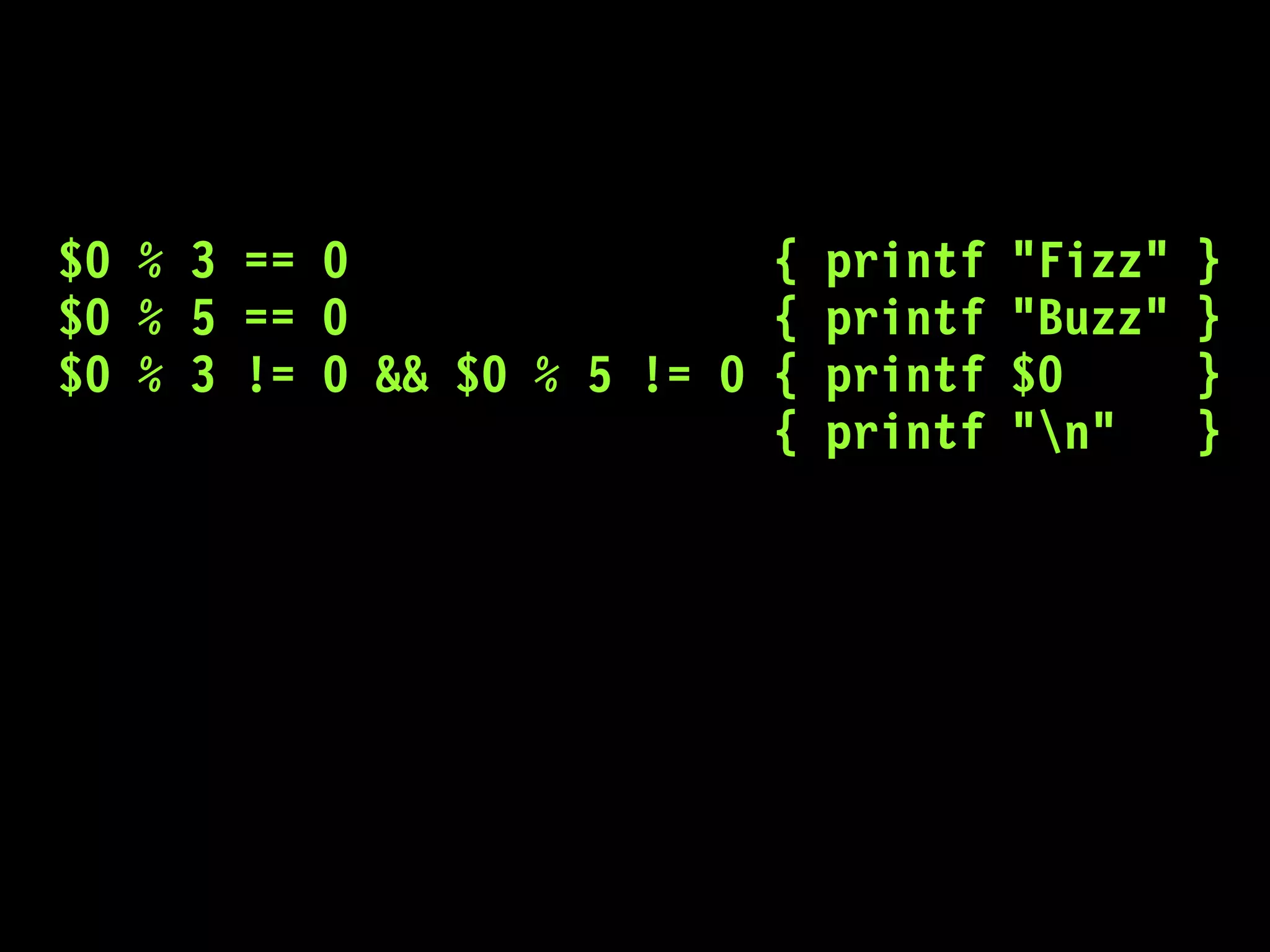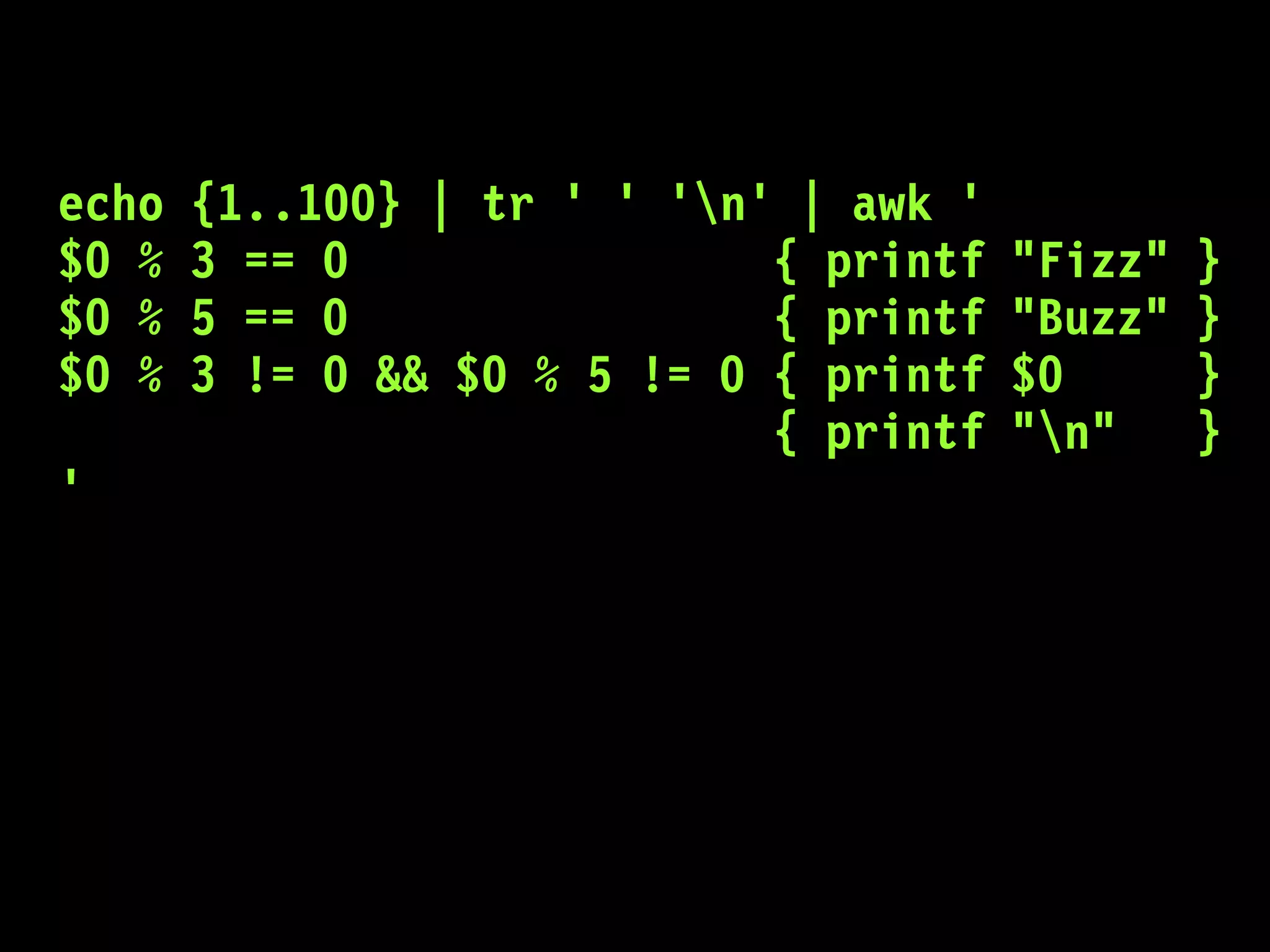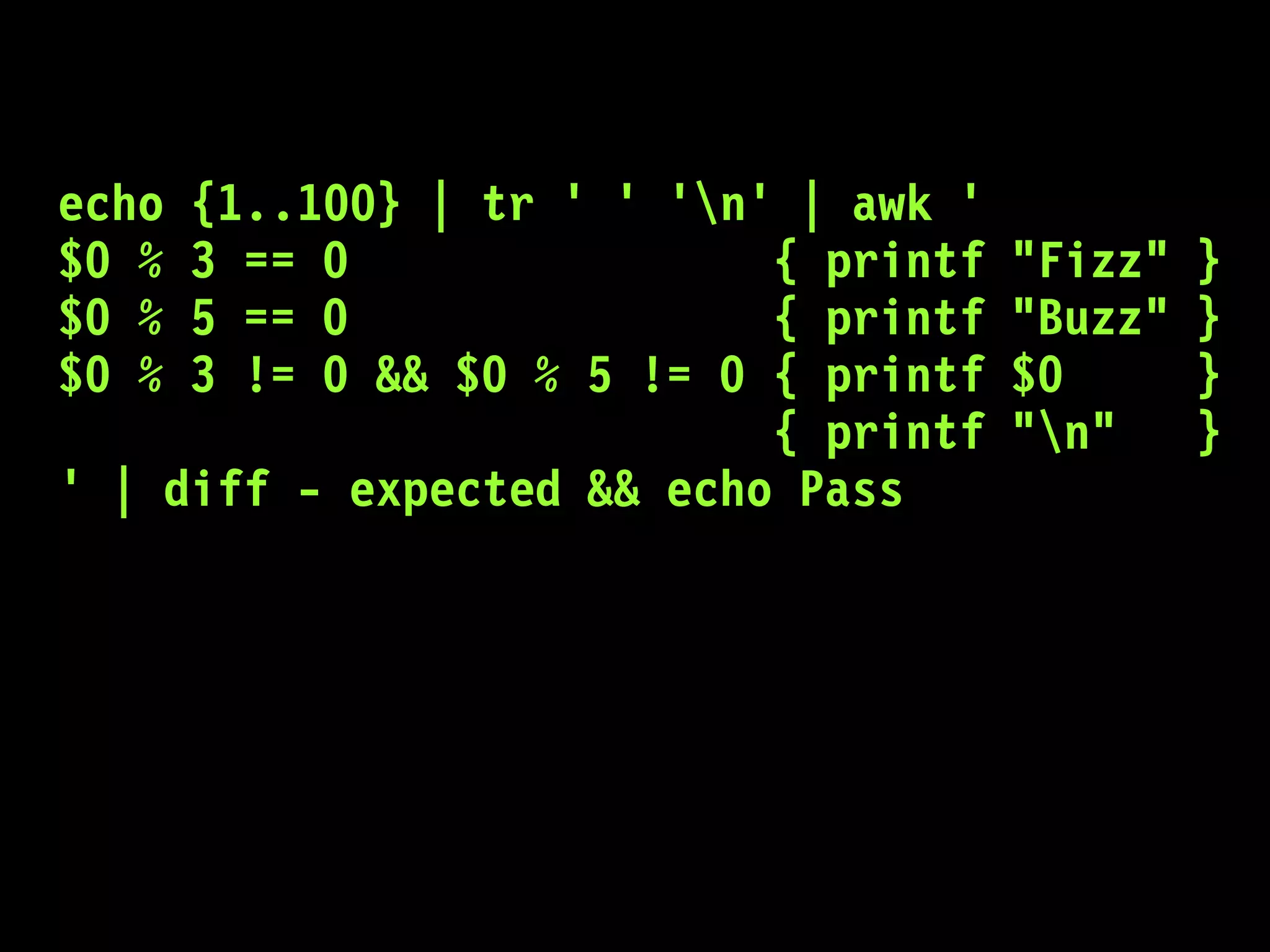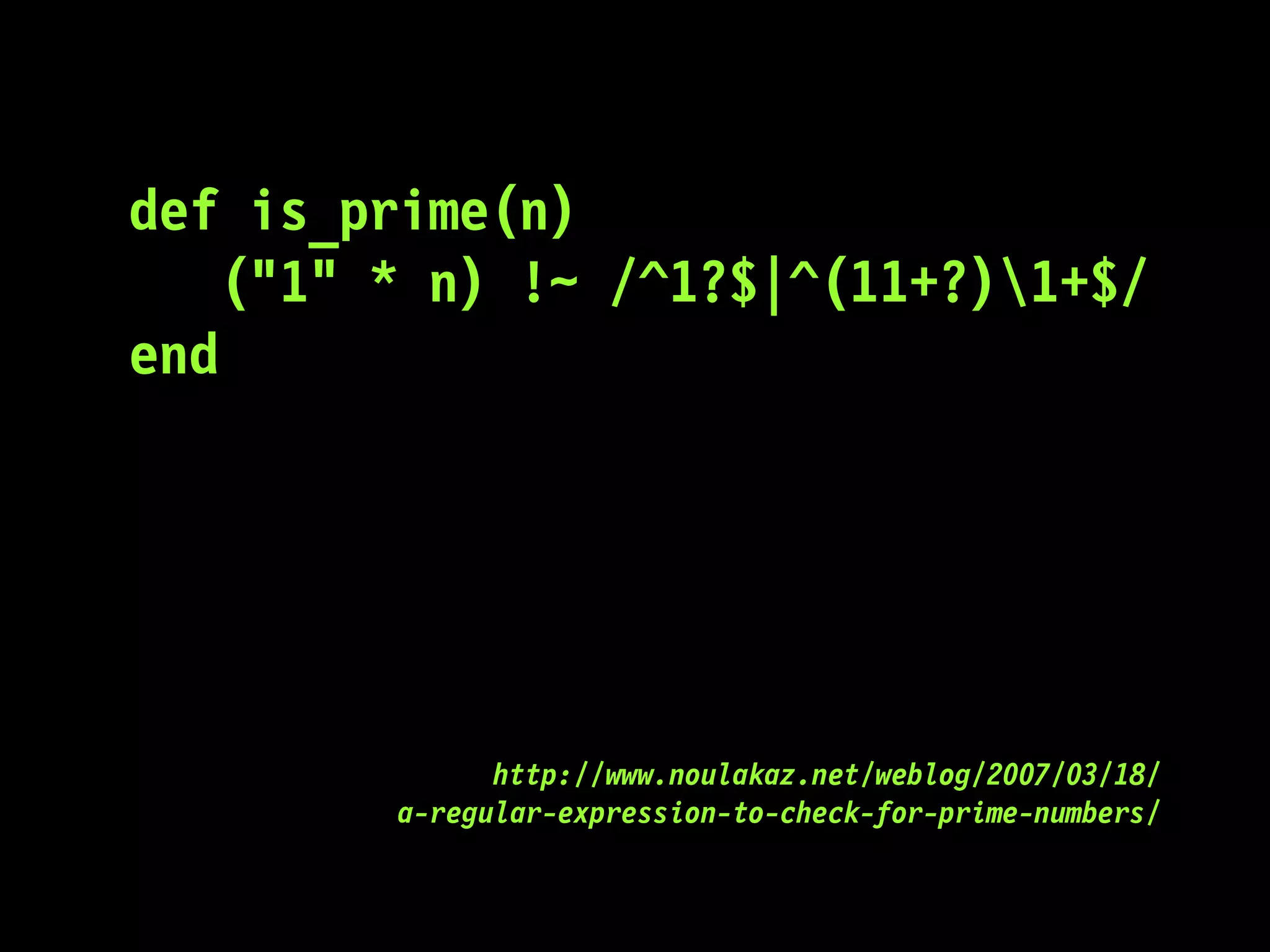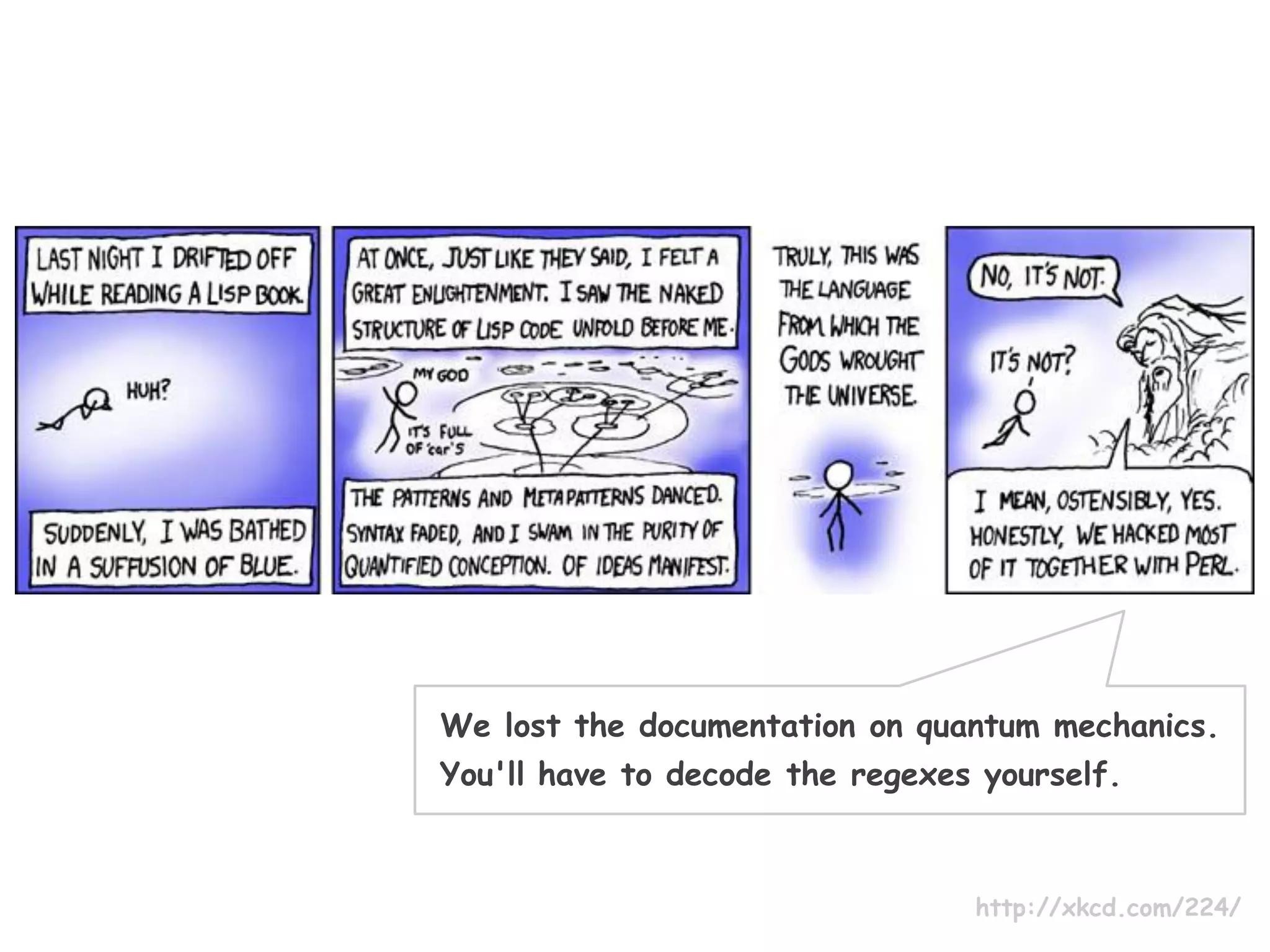The document discusses key concepts in functional programming, such as recursion, higher-order functions, and immutability, alongside examples in various programming languages. It also explores programming principles related to object-oriented programming, concurrency, and declarative programming. The text highlights practical examples, including regex patterns and programming constructs, emphasizing the importance of abstraction and proper structuring in software development.
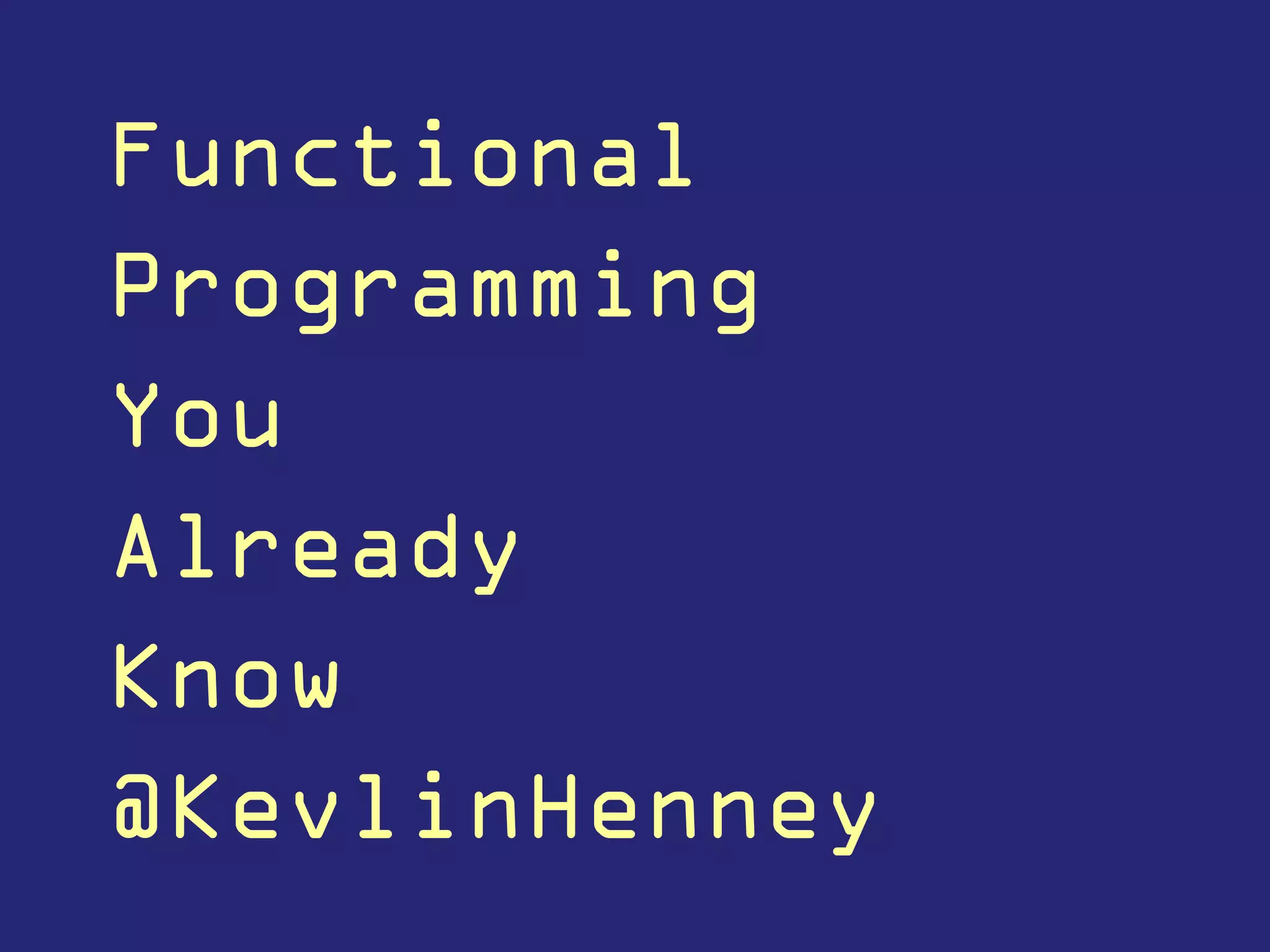

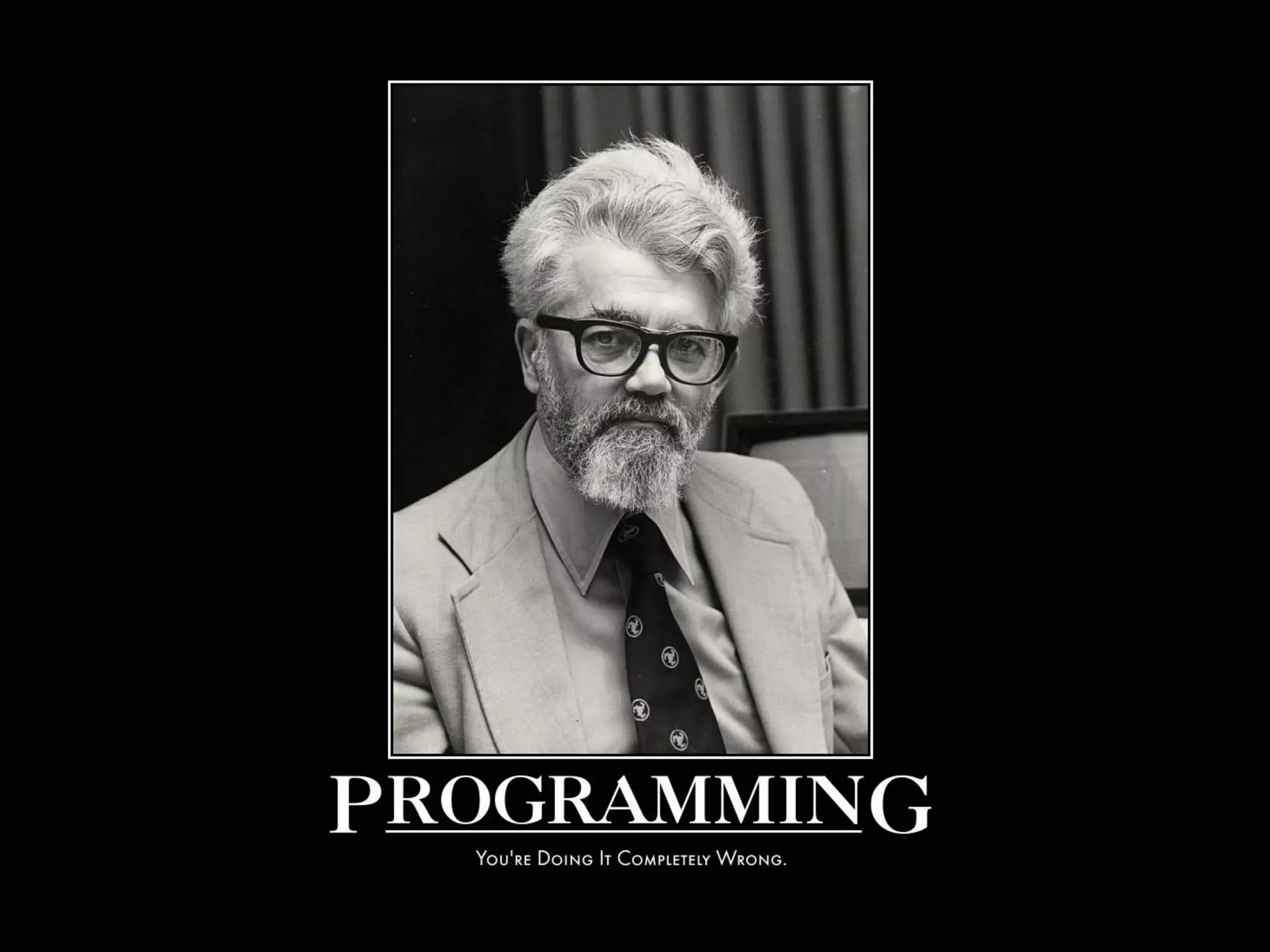
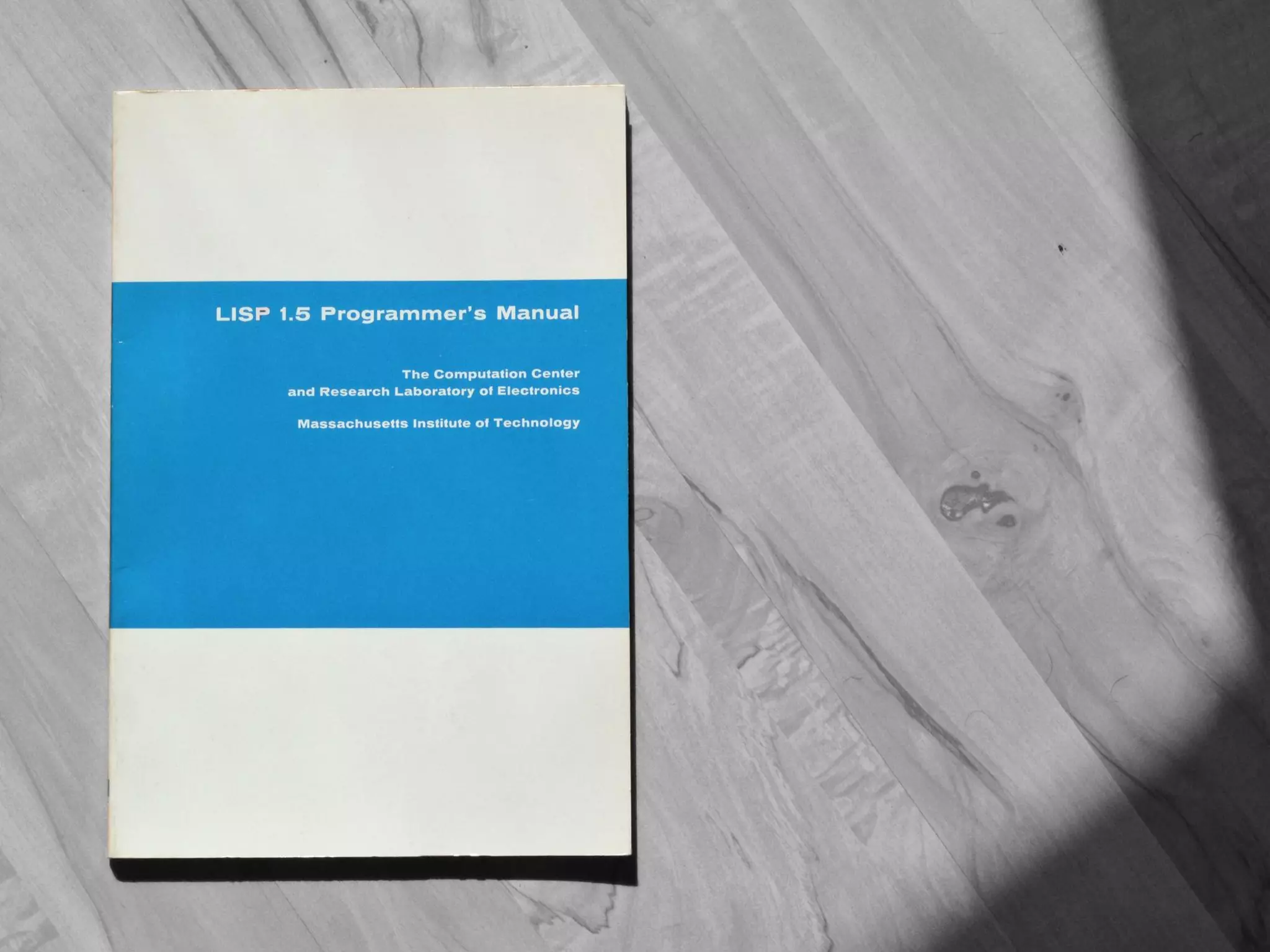
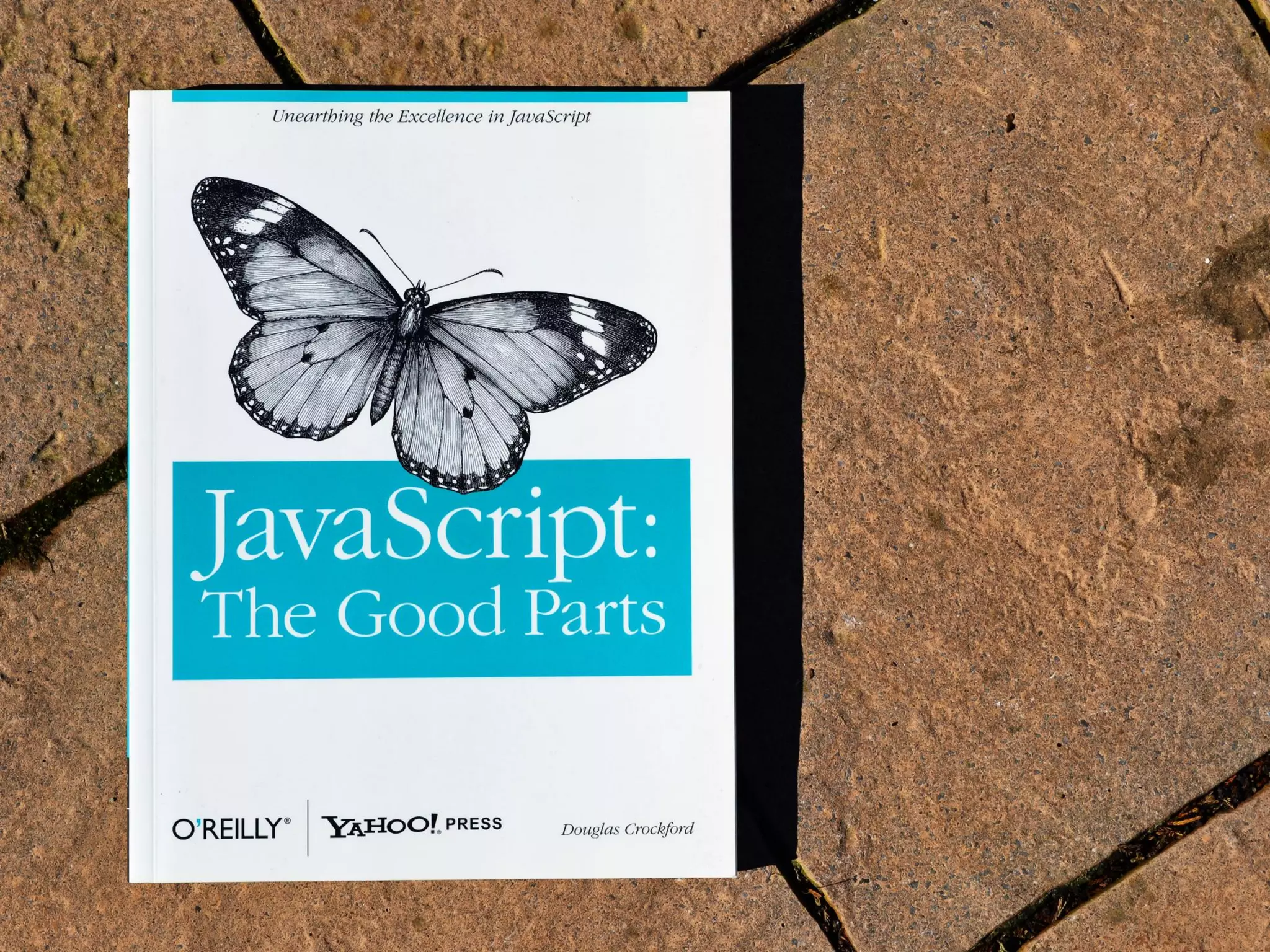
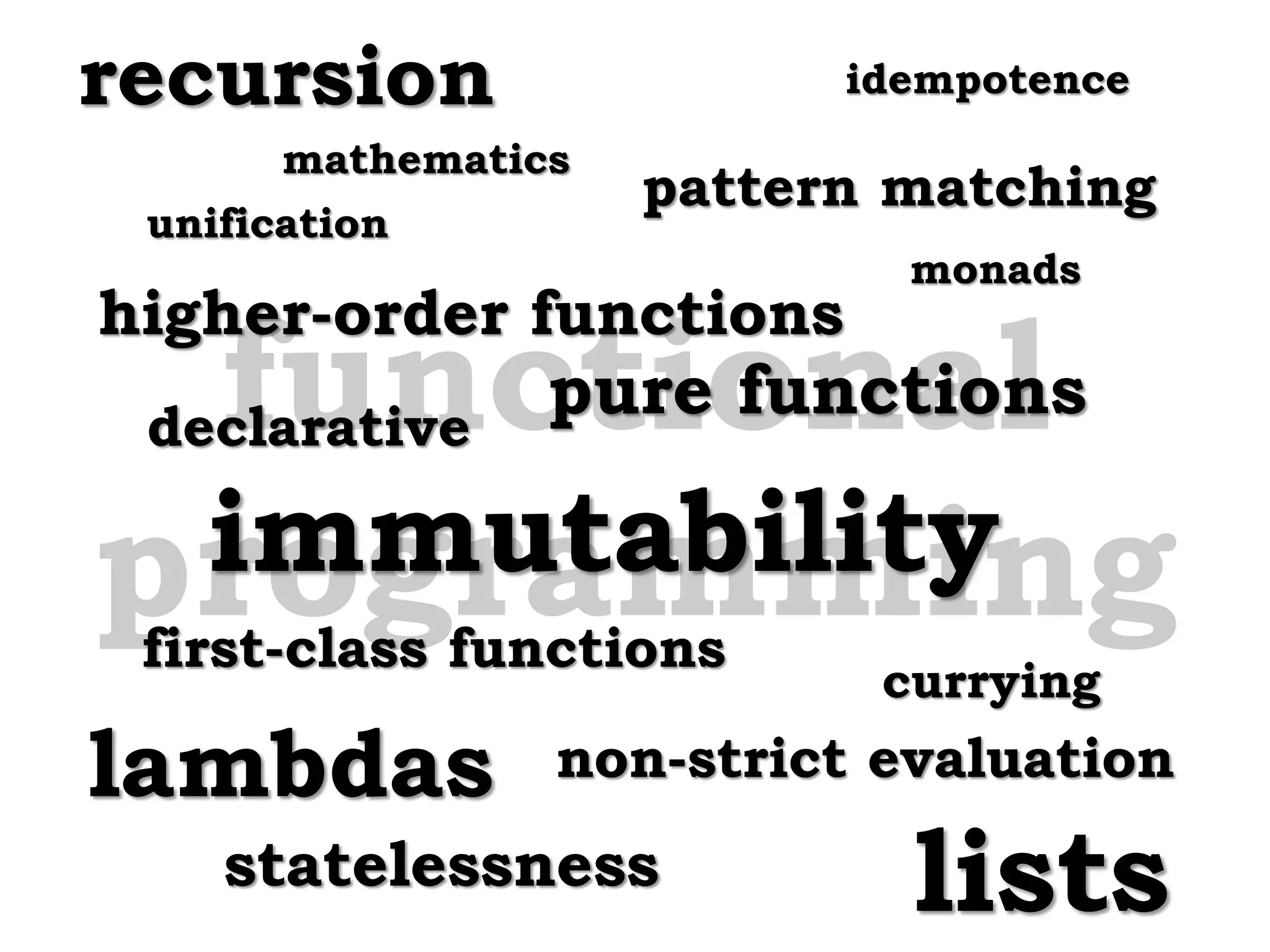


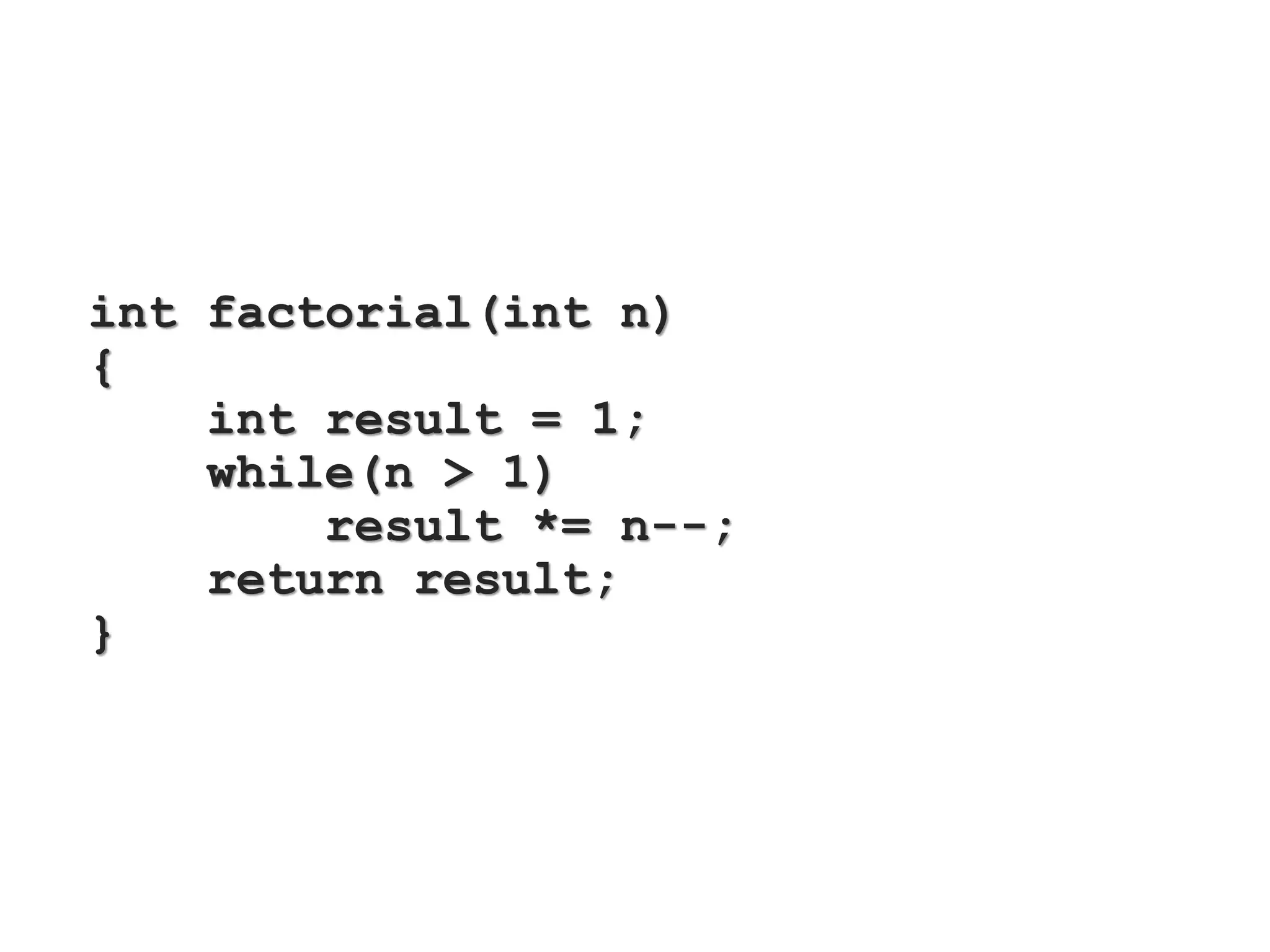
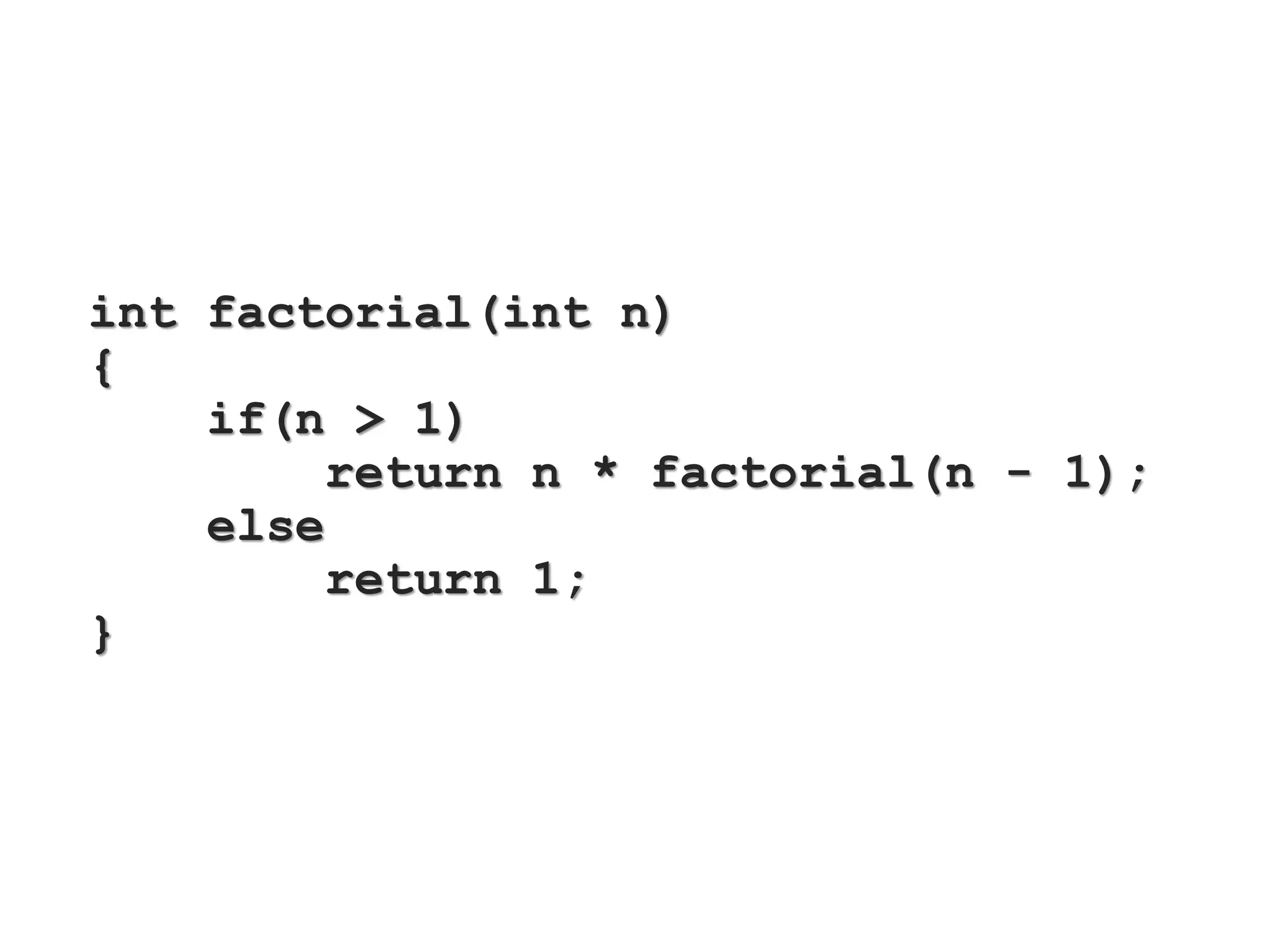
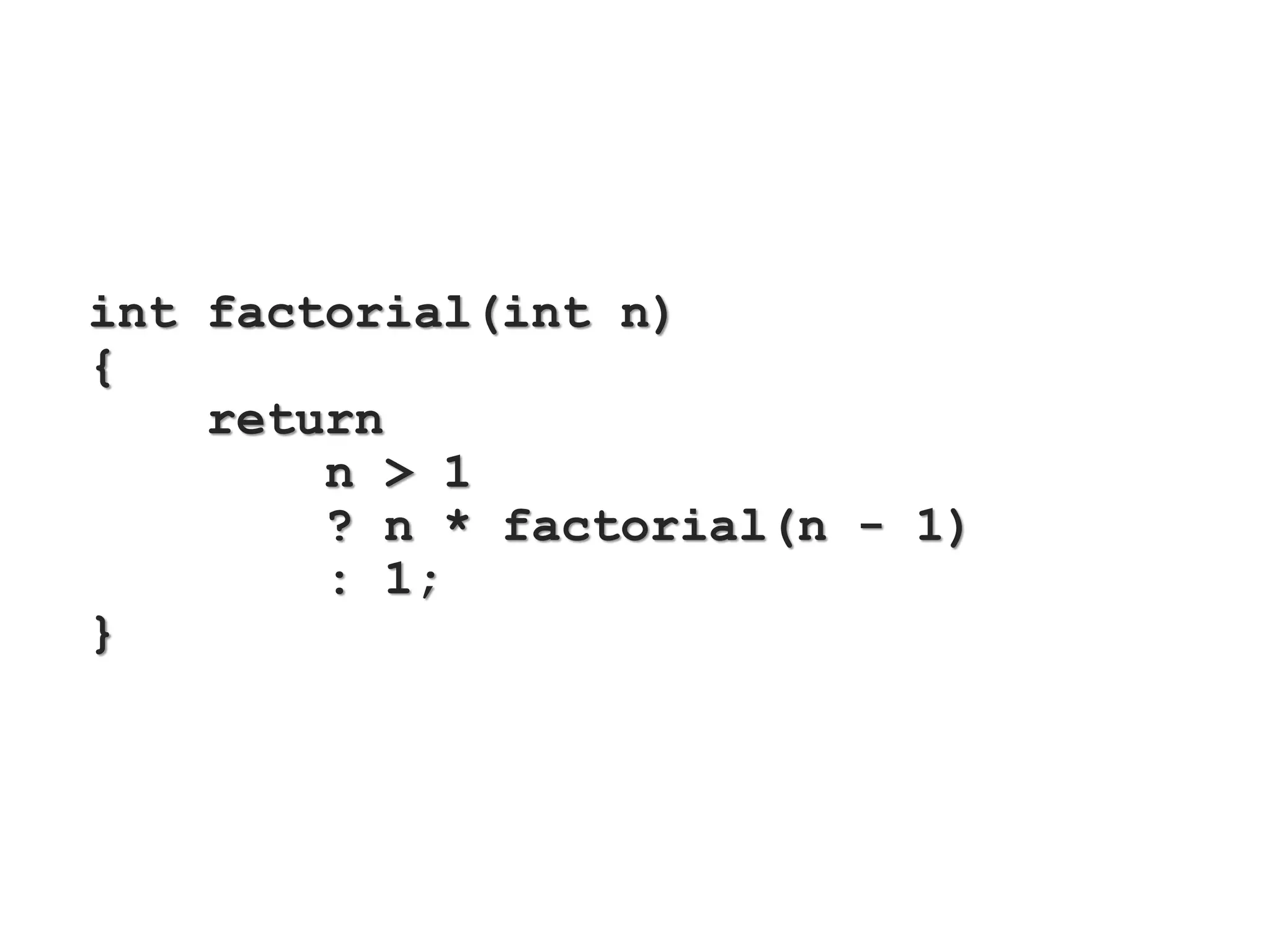
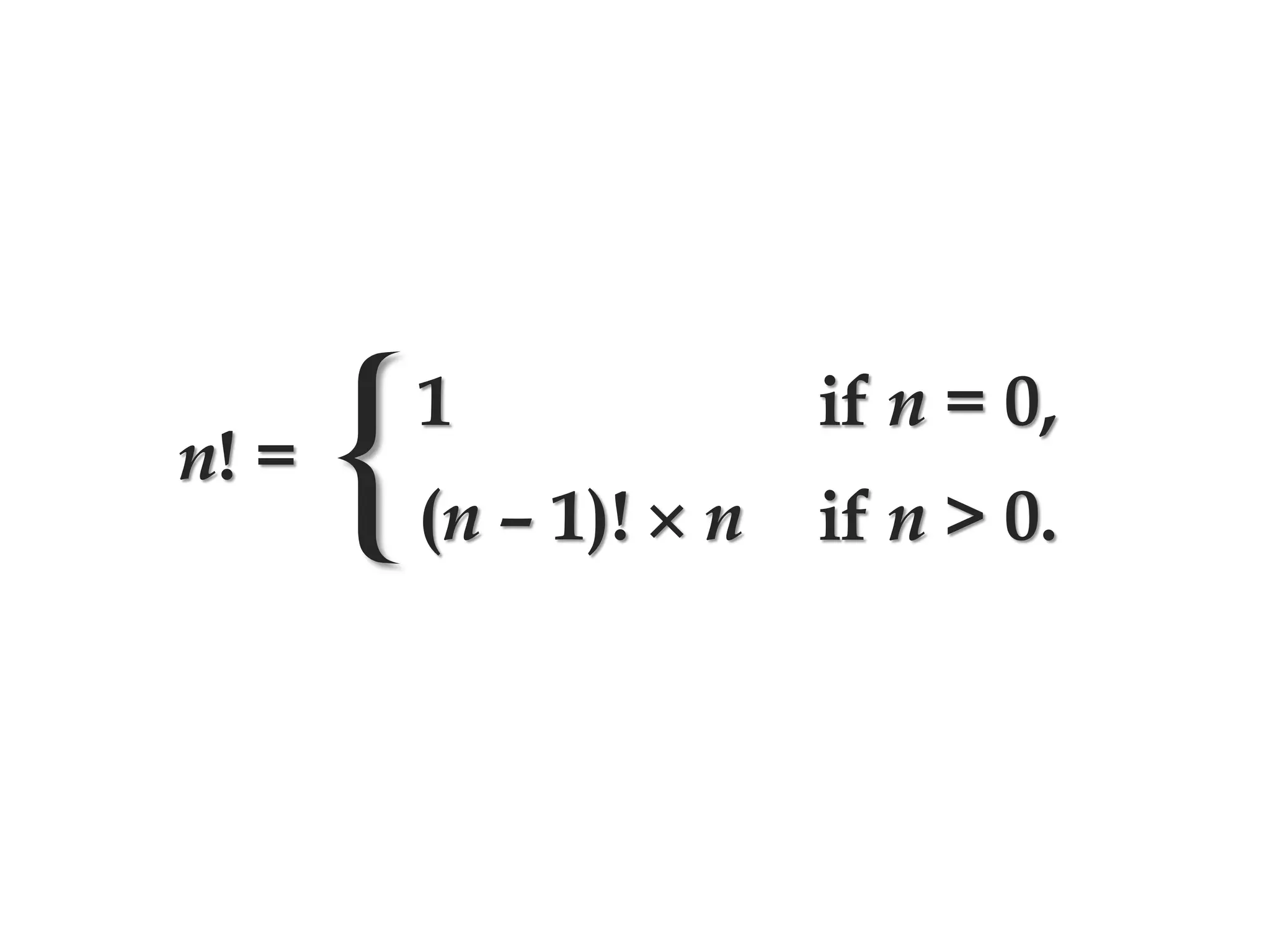
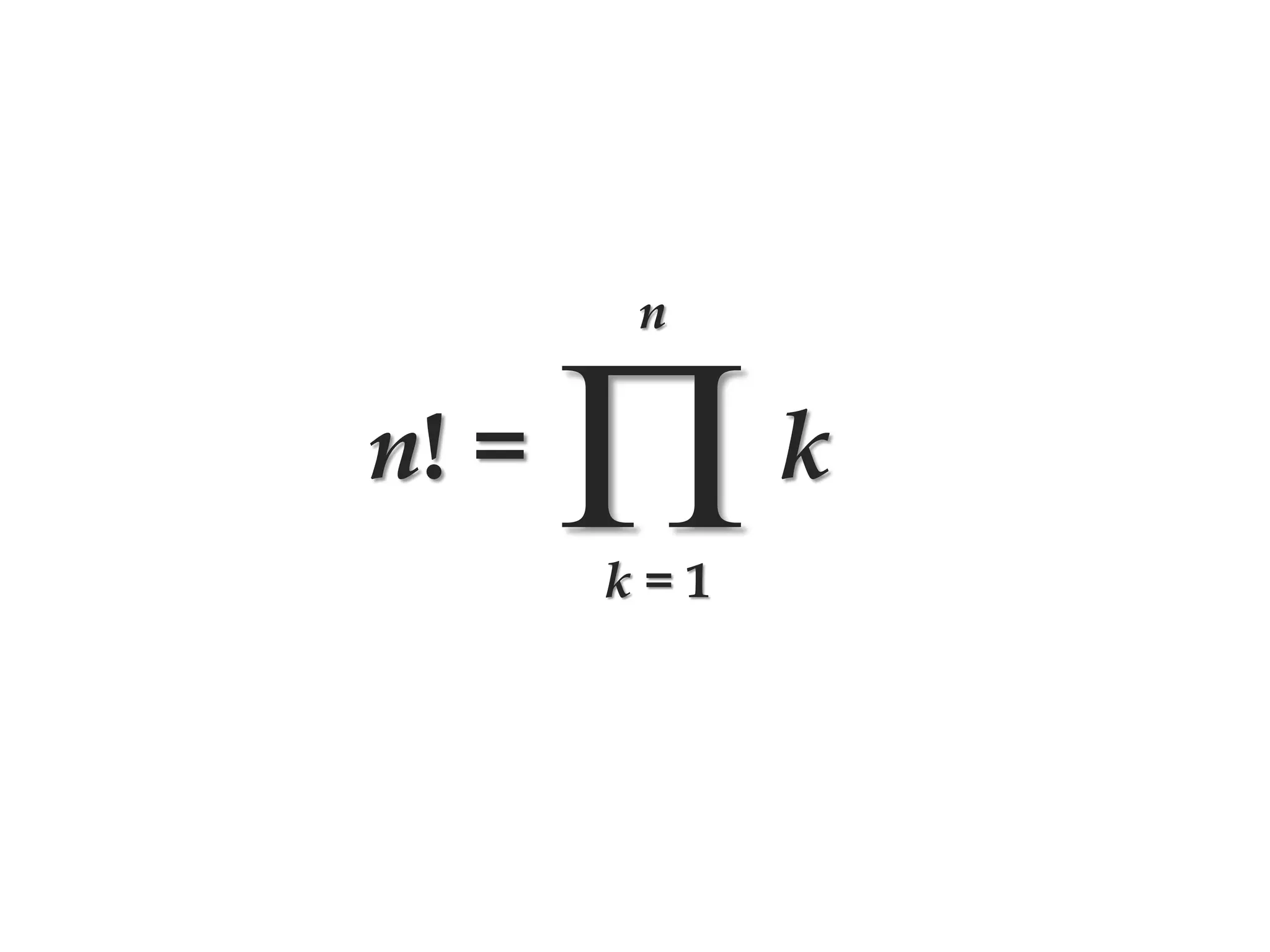
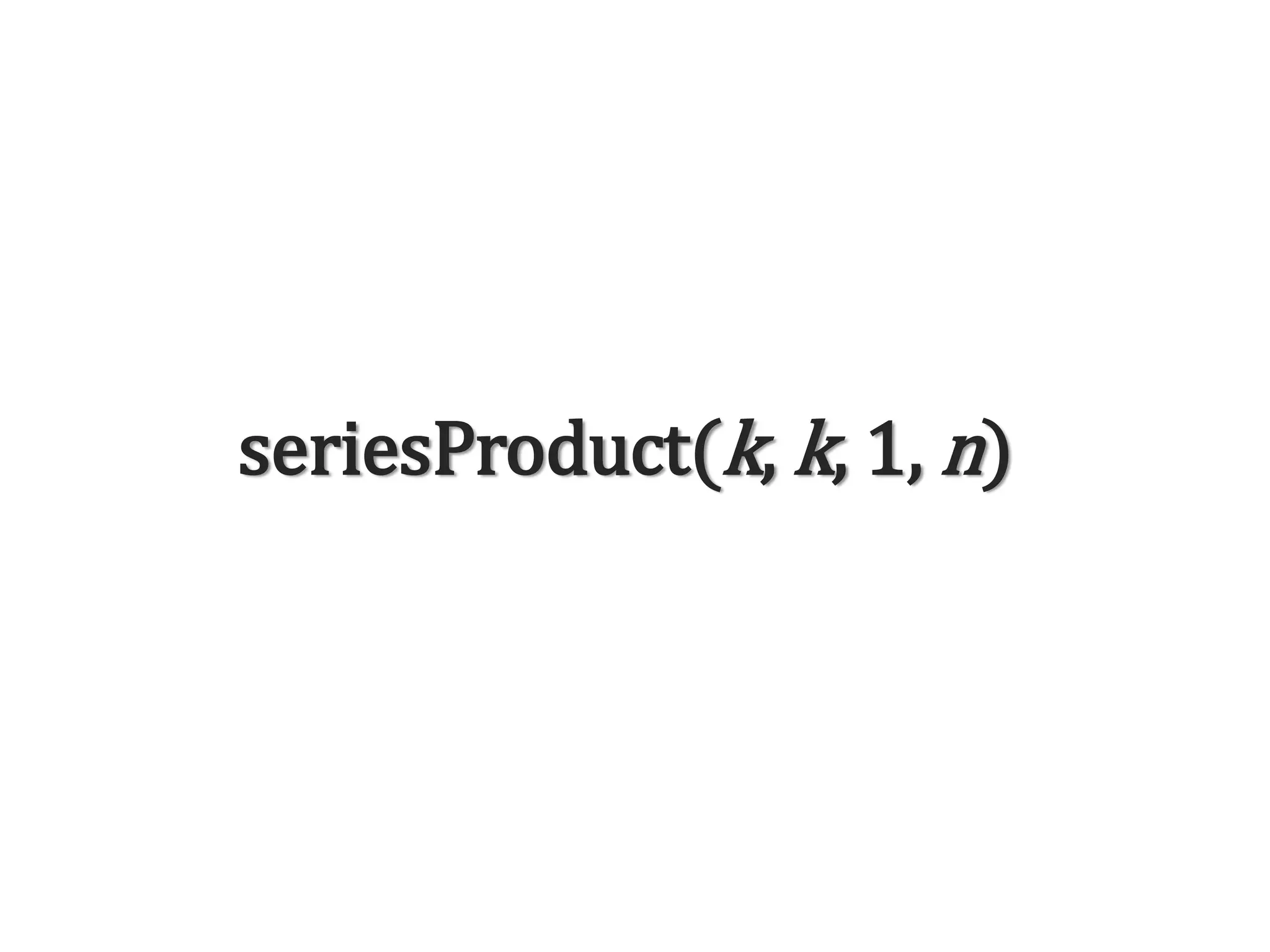
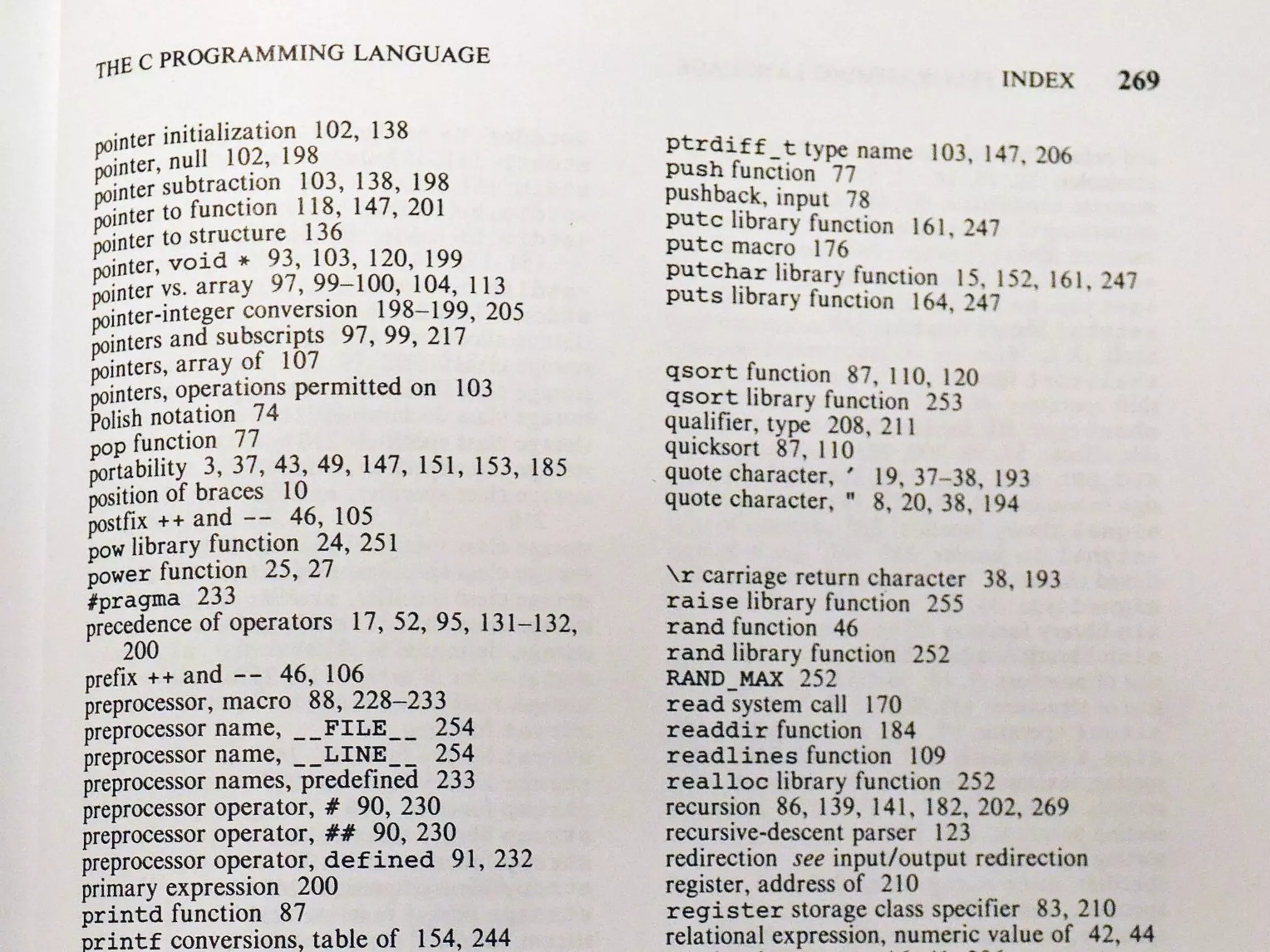
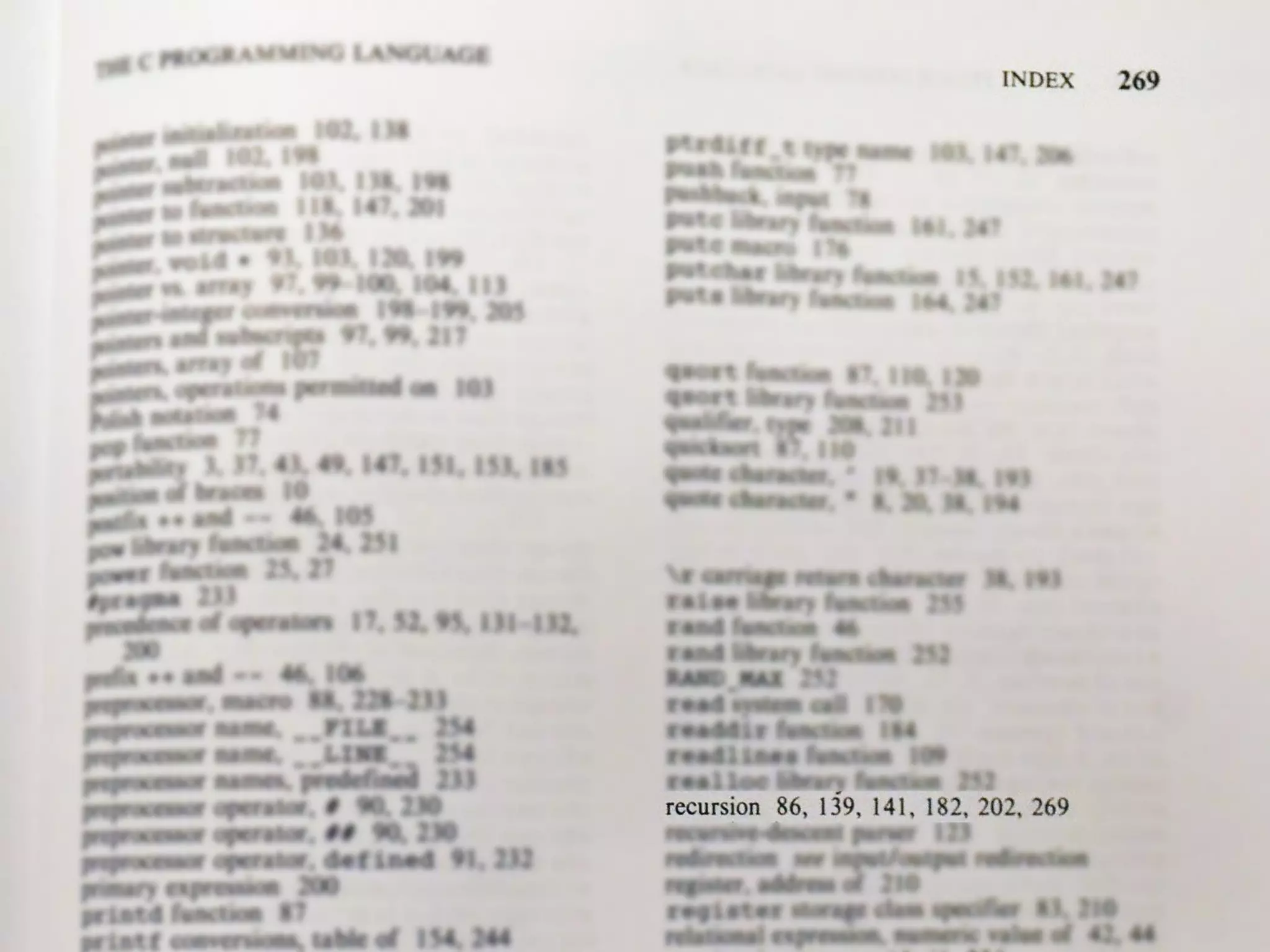
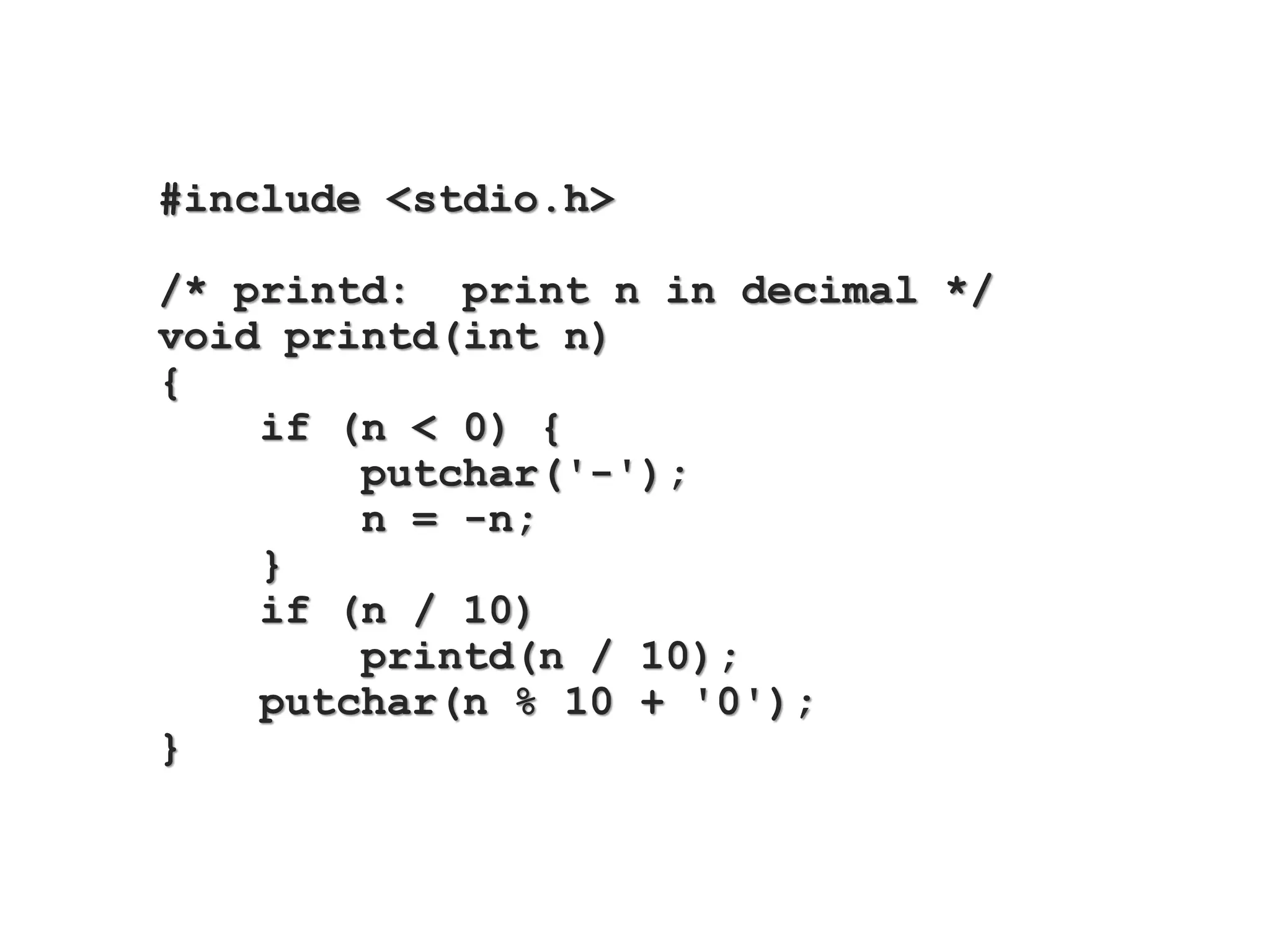
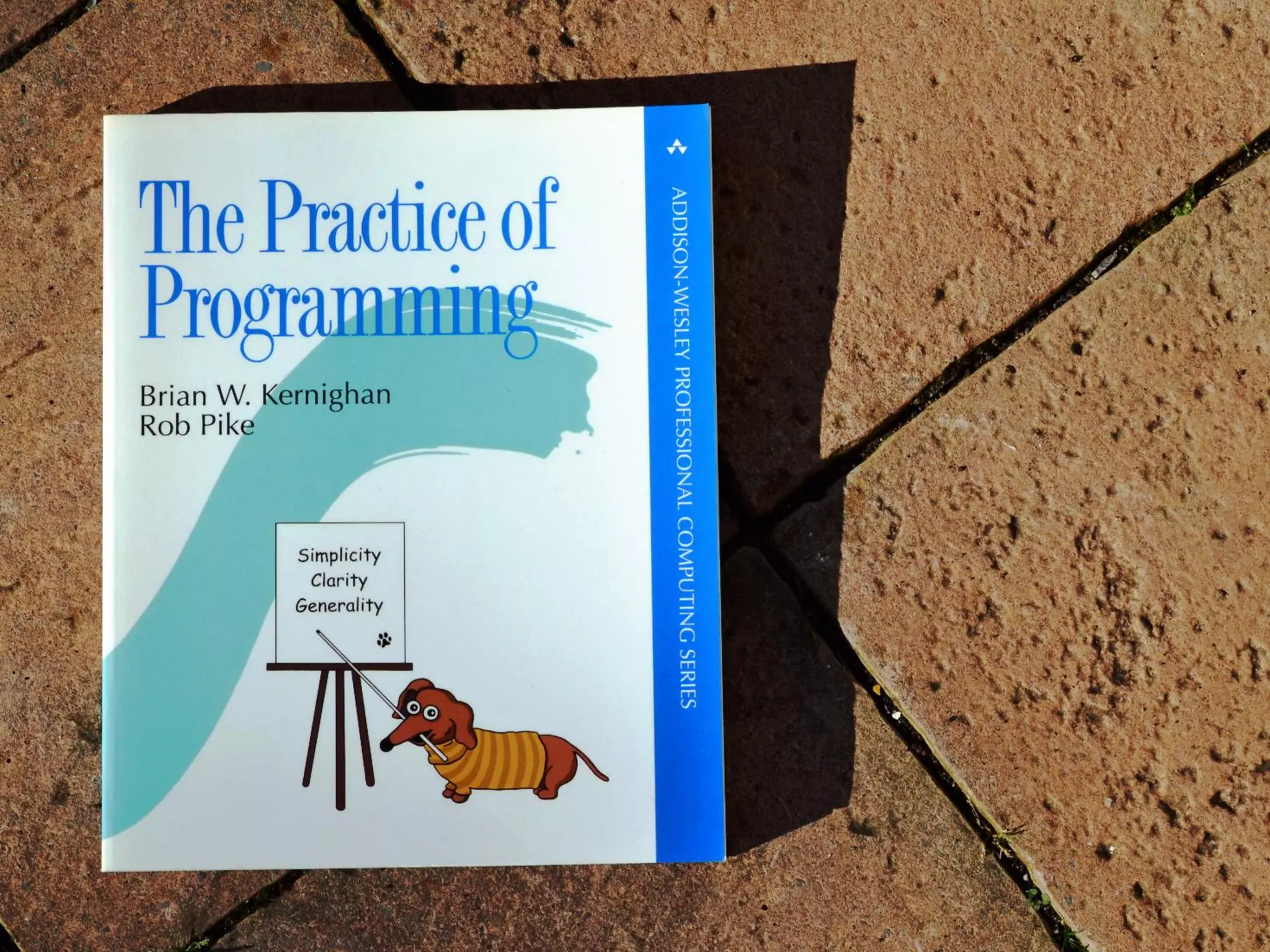
![/* grep: search for regexp in file */
int grep(char *regexp, FILE *f, char *name)
{
int n, nmatch;
char buf[BUFSIZ];
nmatch = 0;
while (fgets(buf, sizeof buf, f) != NULL) {
n = strlen(buf);
if (n > 0 && buf[n-1] == 'n')
buf[n-1] = '0';
if (match(regexp, buf)) {
nmatch++;
if (name != NULL)
printf("%s:", name);
printf("%sn", buf);
}
}
return nmatch;
}
/* matchhere: search for regexp at beginning of text */
int matchhere(char *regexp, char *text)
{
if (regexp[0] == '0')
return 1;
if (regexp[1] == '*')
return matchstar(regexp[0], regexp+2, text);
if (regexp[0] == '$' && regexp[1] == '0')
return *text == '0';
if (*text!='0' && (regexp[0]=='.' || regexp[0]==*text))
return matchhere(regexp+1, text+1);
return 0;
}
/* match: search for regexp anywhere in text */
int match(char *regexp, char *text)
{
if (regexp[0] == '^')
return matchhere(regexp+1, text);
do { /* must look even if string is empty */
if (matchhere(regexp, text))
return 1;
} while (*text++ != '0');
return 0;
}
/* matchstar: search for c*regexp at beginning of text */
int matchstar(int c, char *regexp, char *text)
{
do { /* a * matches zero or more instances */
if (matchhere(regexp, text))
return 1;
} while (*text != '0' && (*text++ == c || c == '.'));
return 0;
}](https://image.slidesharecdn.com/functionalprogrammingyoualreadyknow-140617111008-phpapp01/75/Functional-Programming-You-Already-Know-19-2048.jpg)
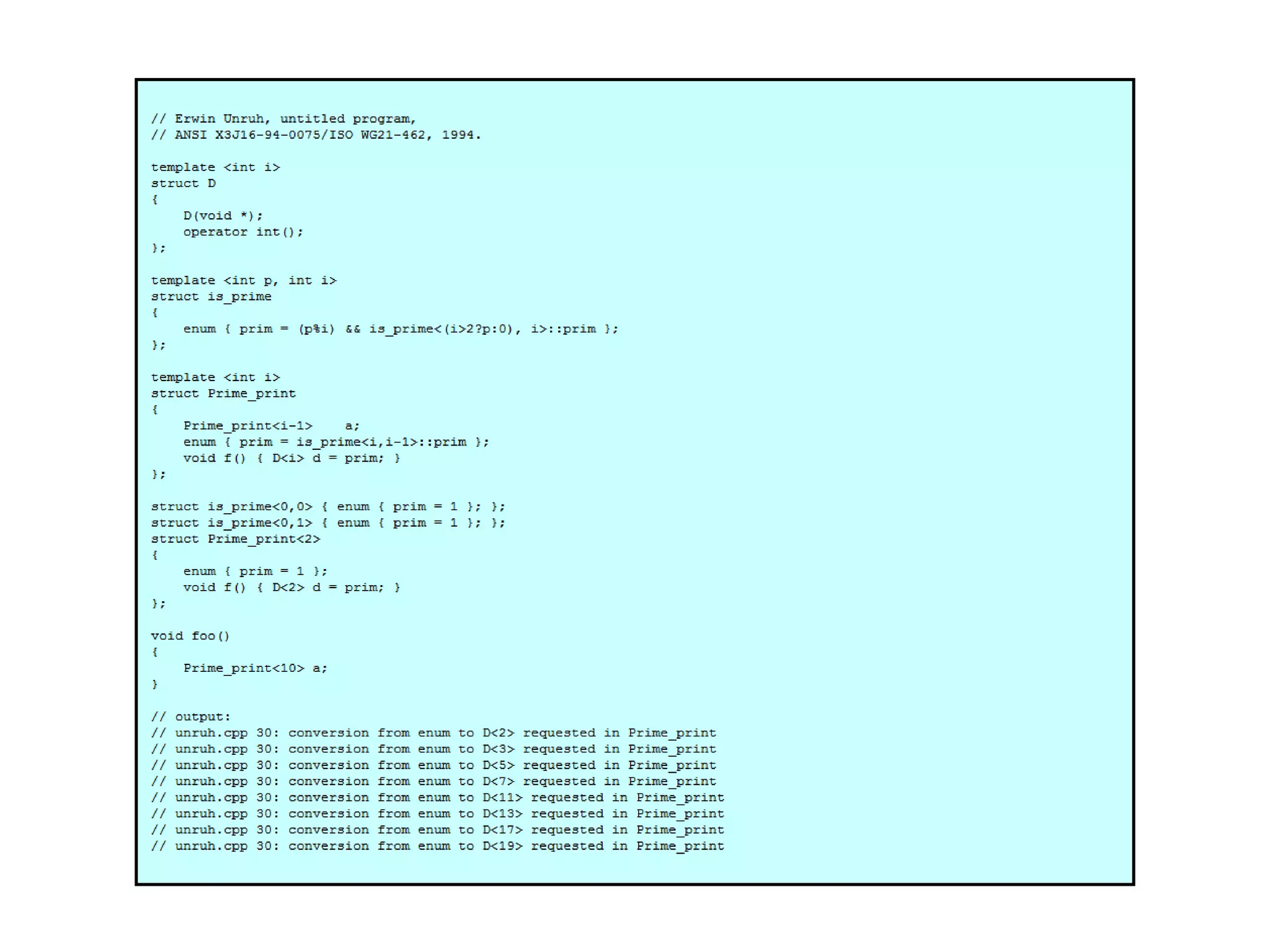
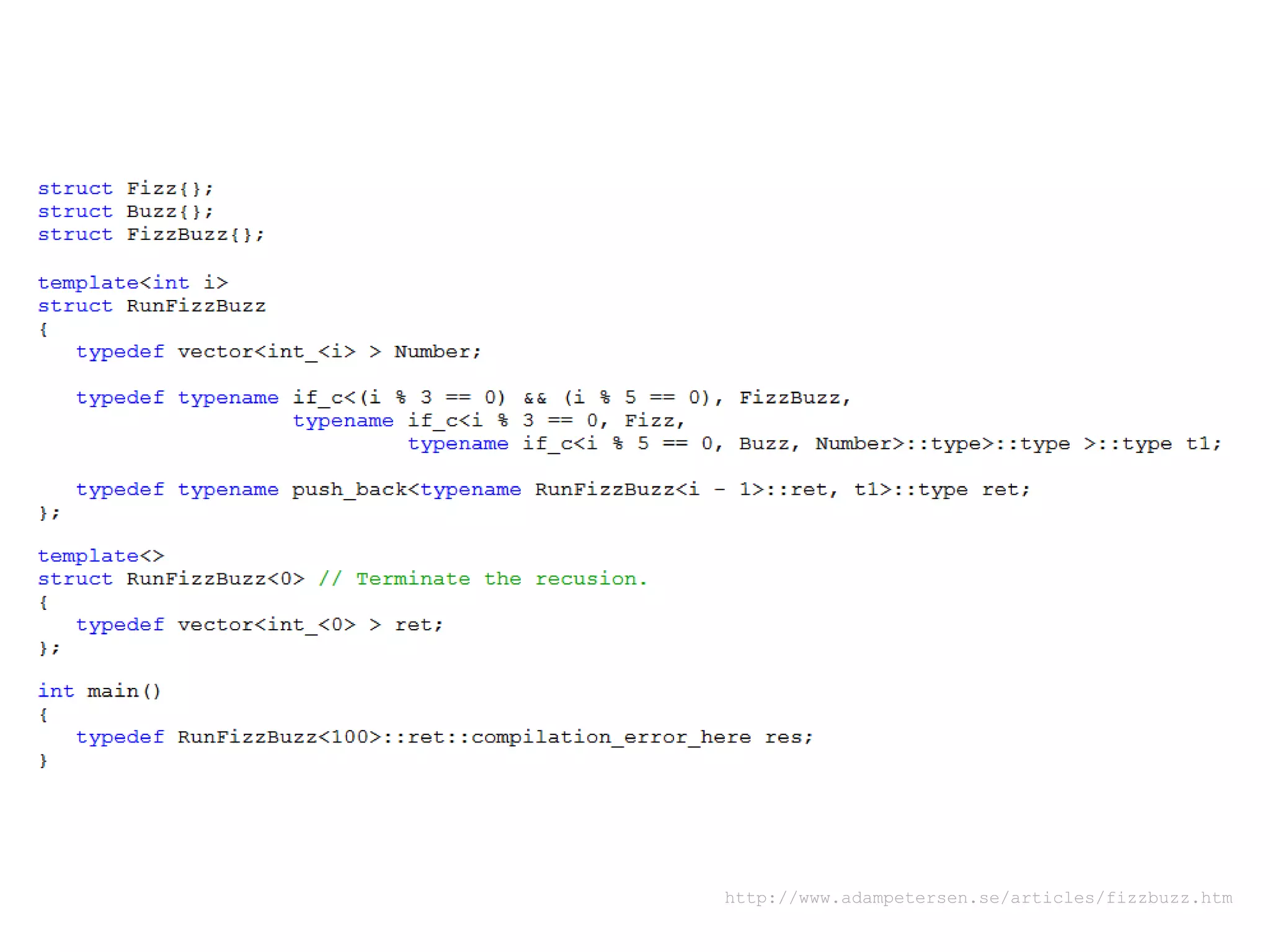
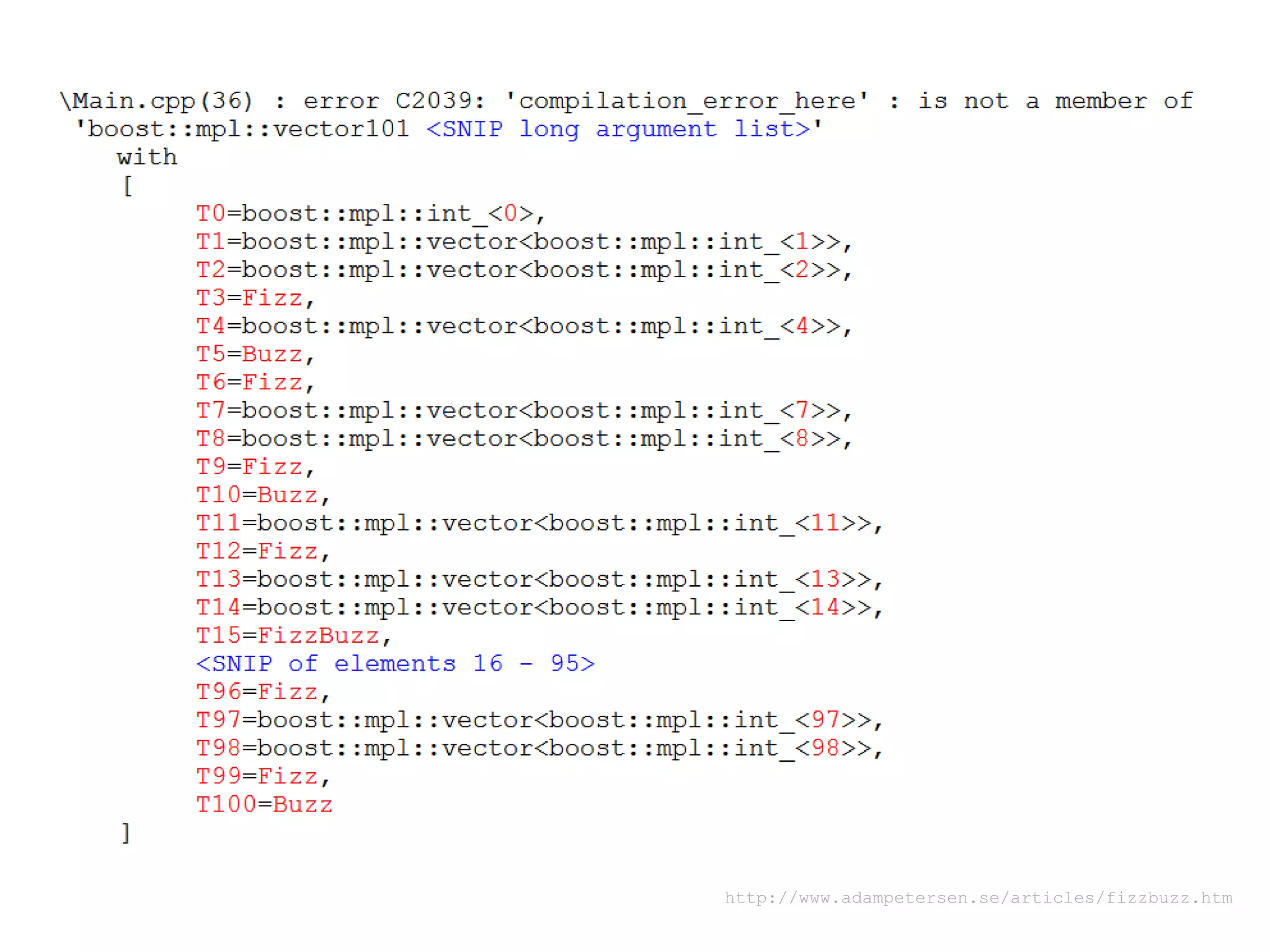
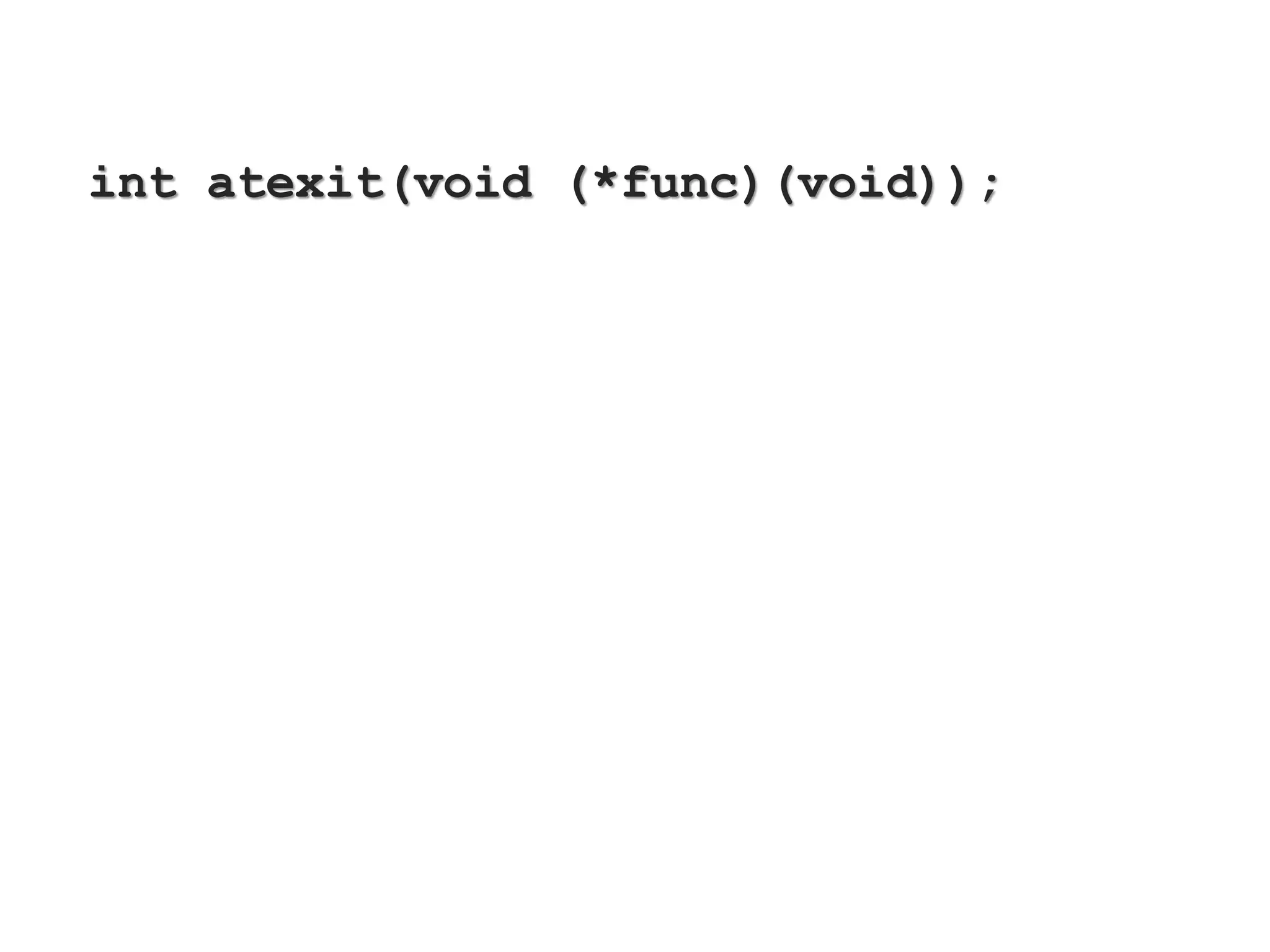
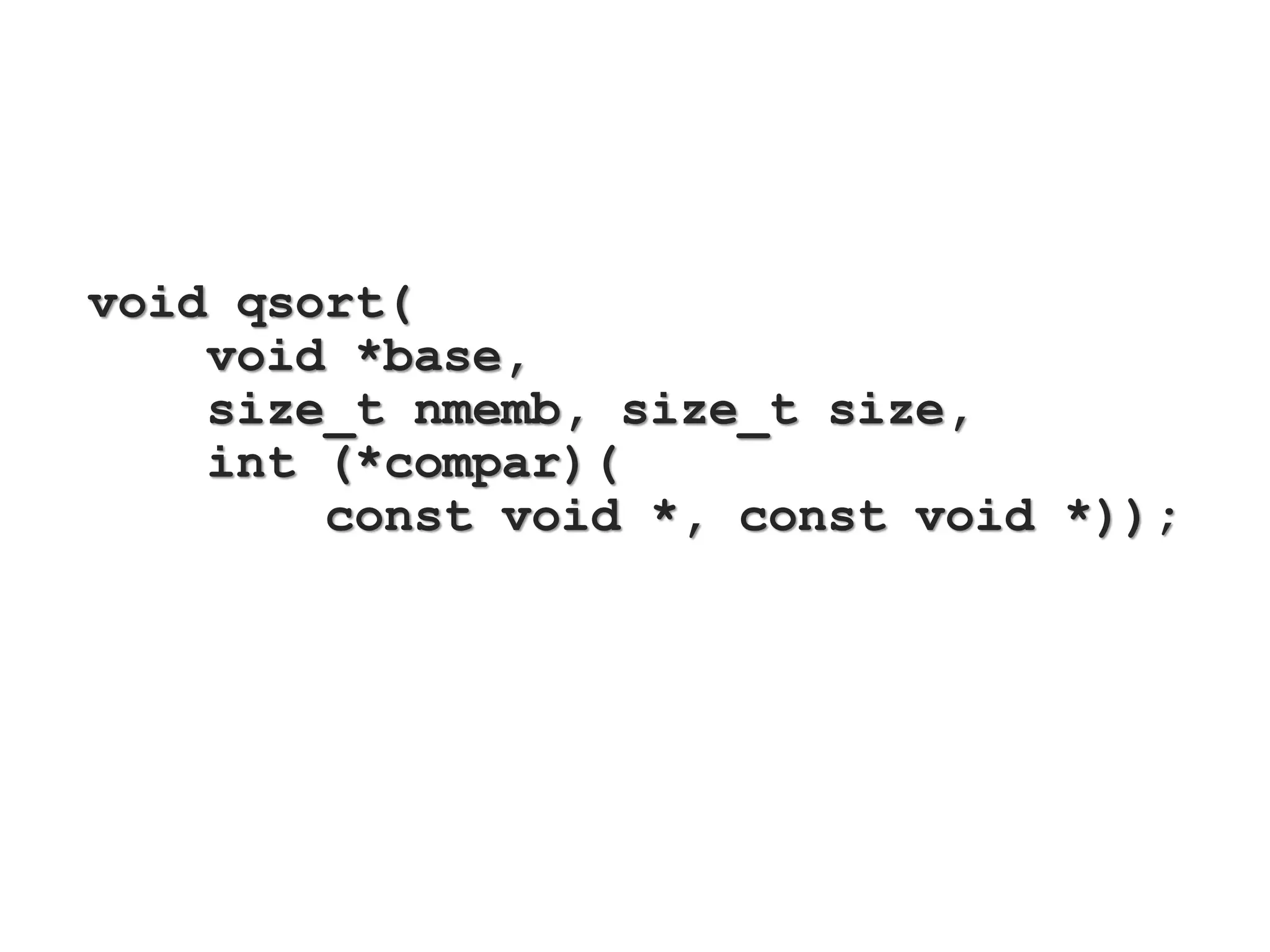
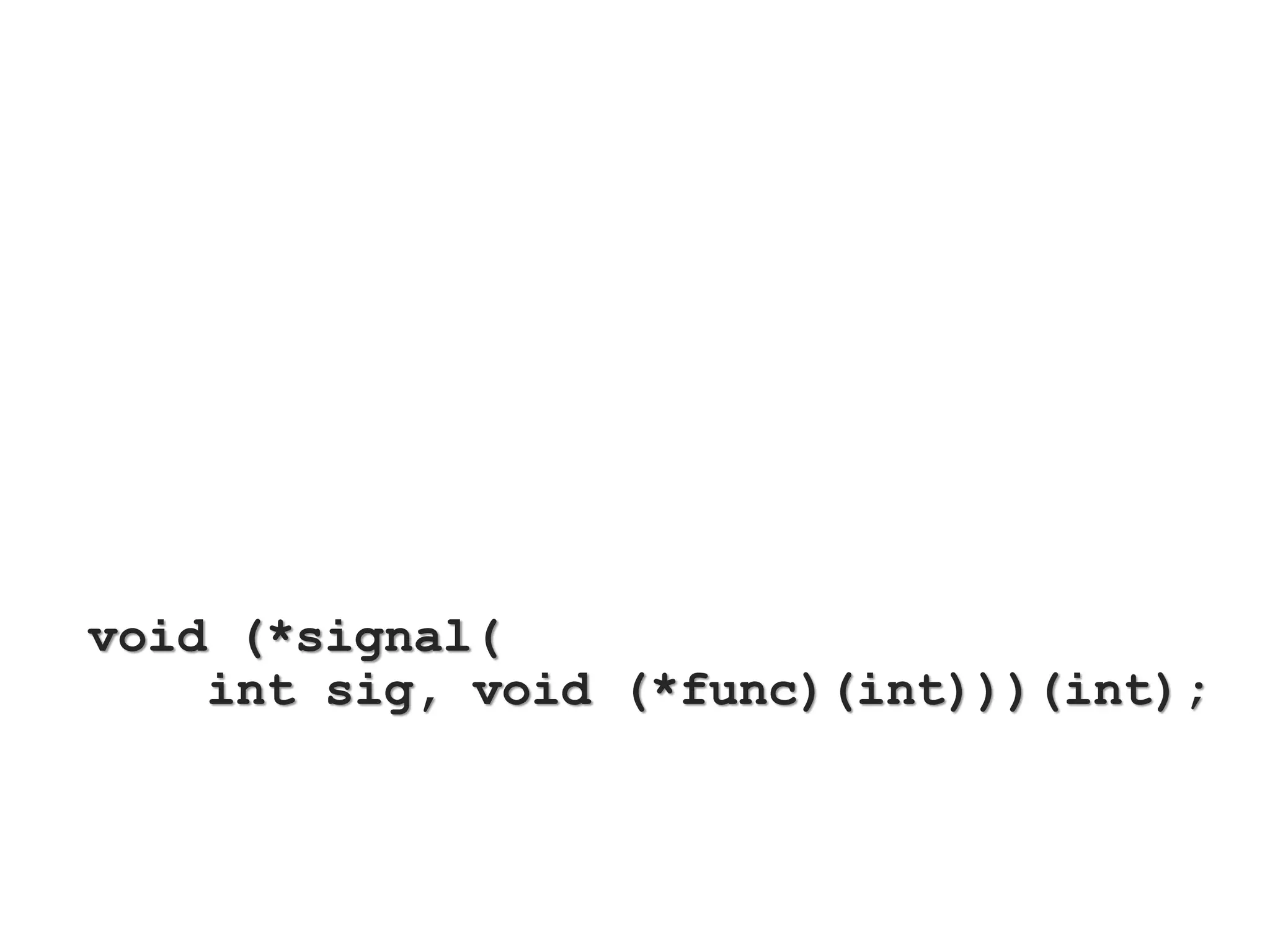
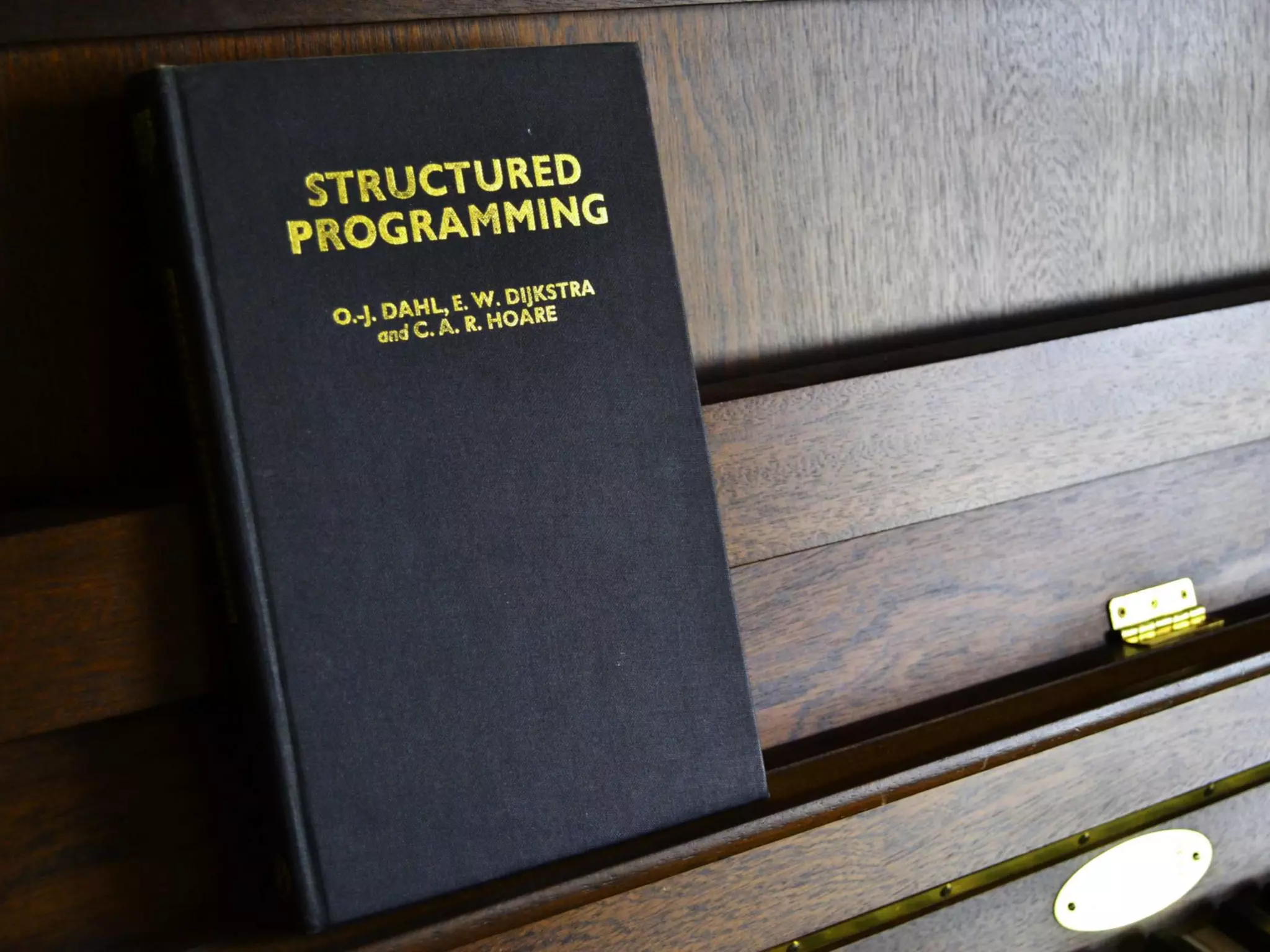
![One of the most powerful mechanisms
for program structuring [...] is the block
and procedure concept.
A procedure which is capable of giving
rise to block instances which survive its
call will be known as a class; and the
instances will be known as objects of
that class.
A call of a class generates a new object
of that class.
Ole-Johan Dahl and C A R Hoare
"Hierarchical Program Structures"](https://image.slidesharecdn.com/functionalprogrammingyoualreadyknow-140617111008-phpapp01/75/Functional-Programming-You-Already-Know-27-2048.jpg)
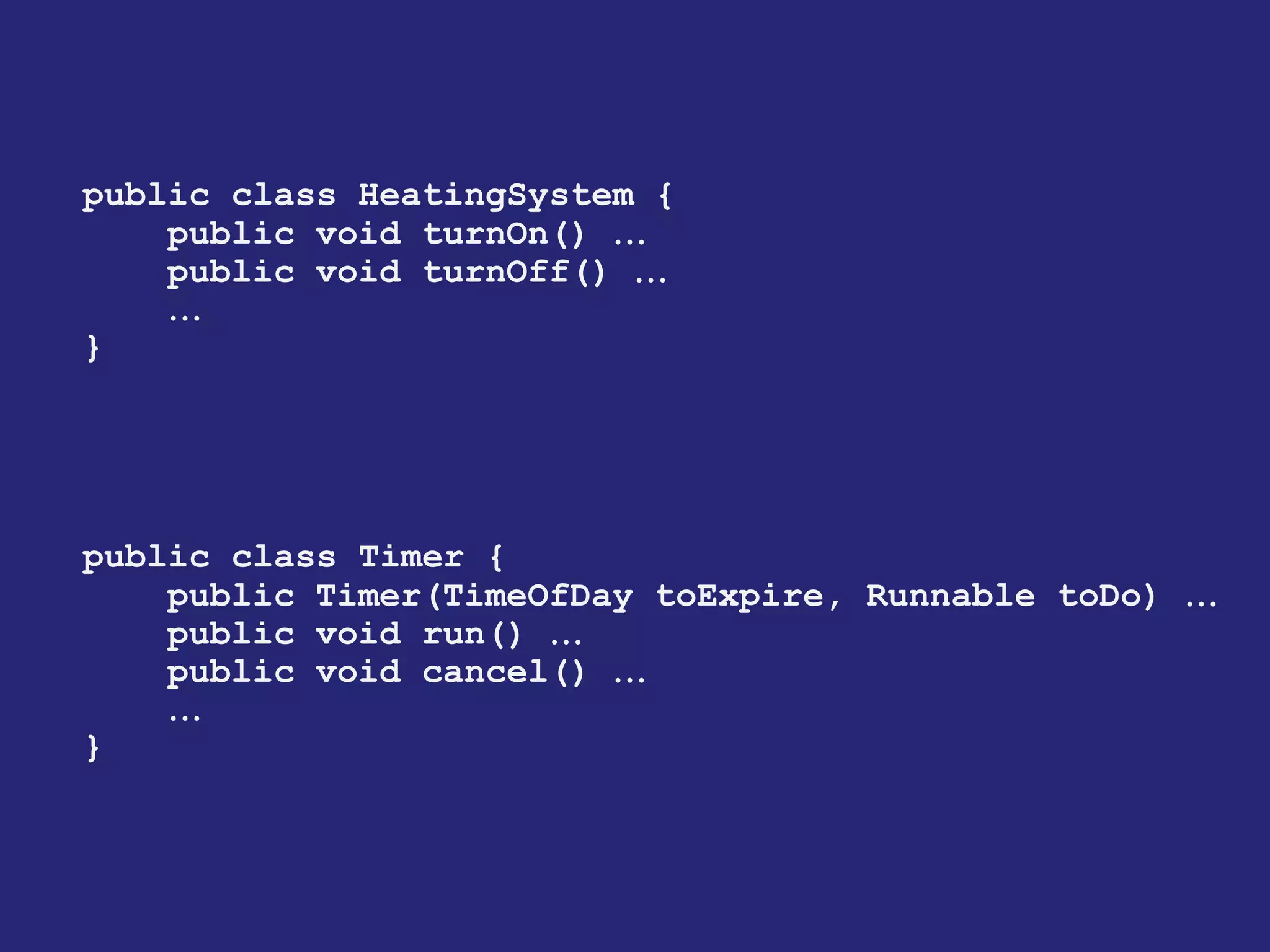
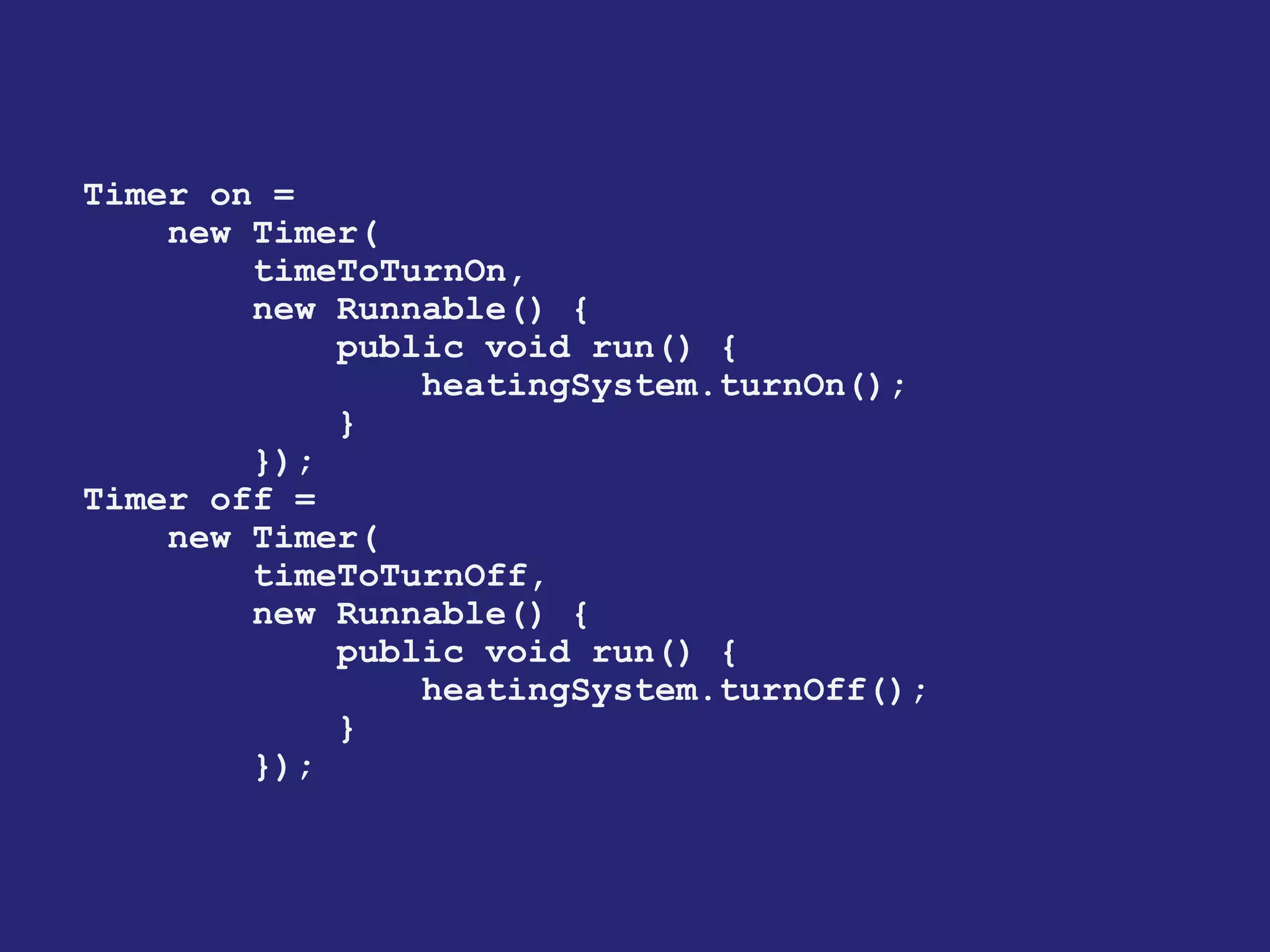
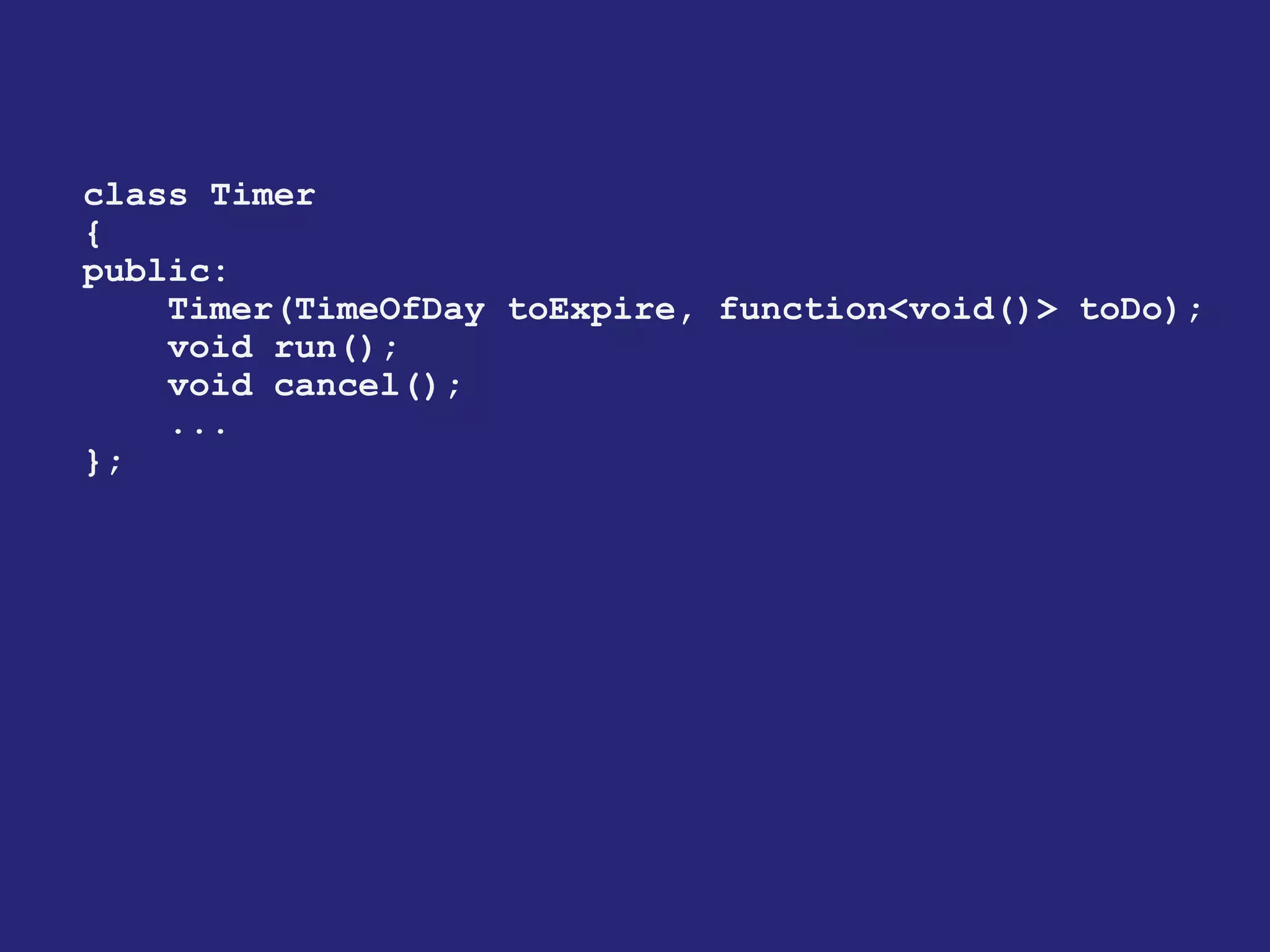
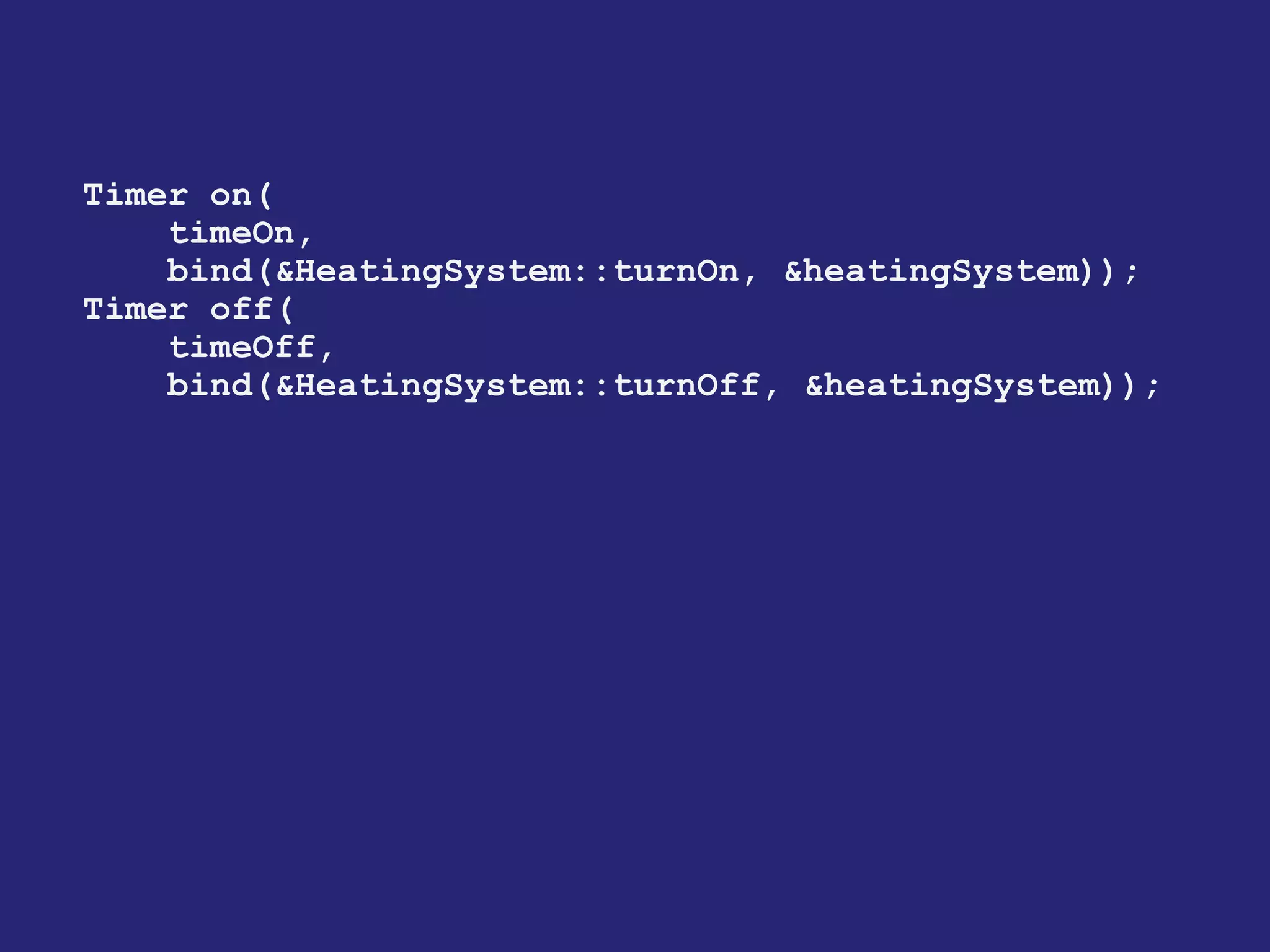
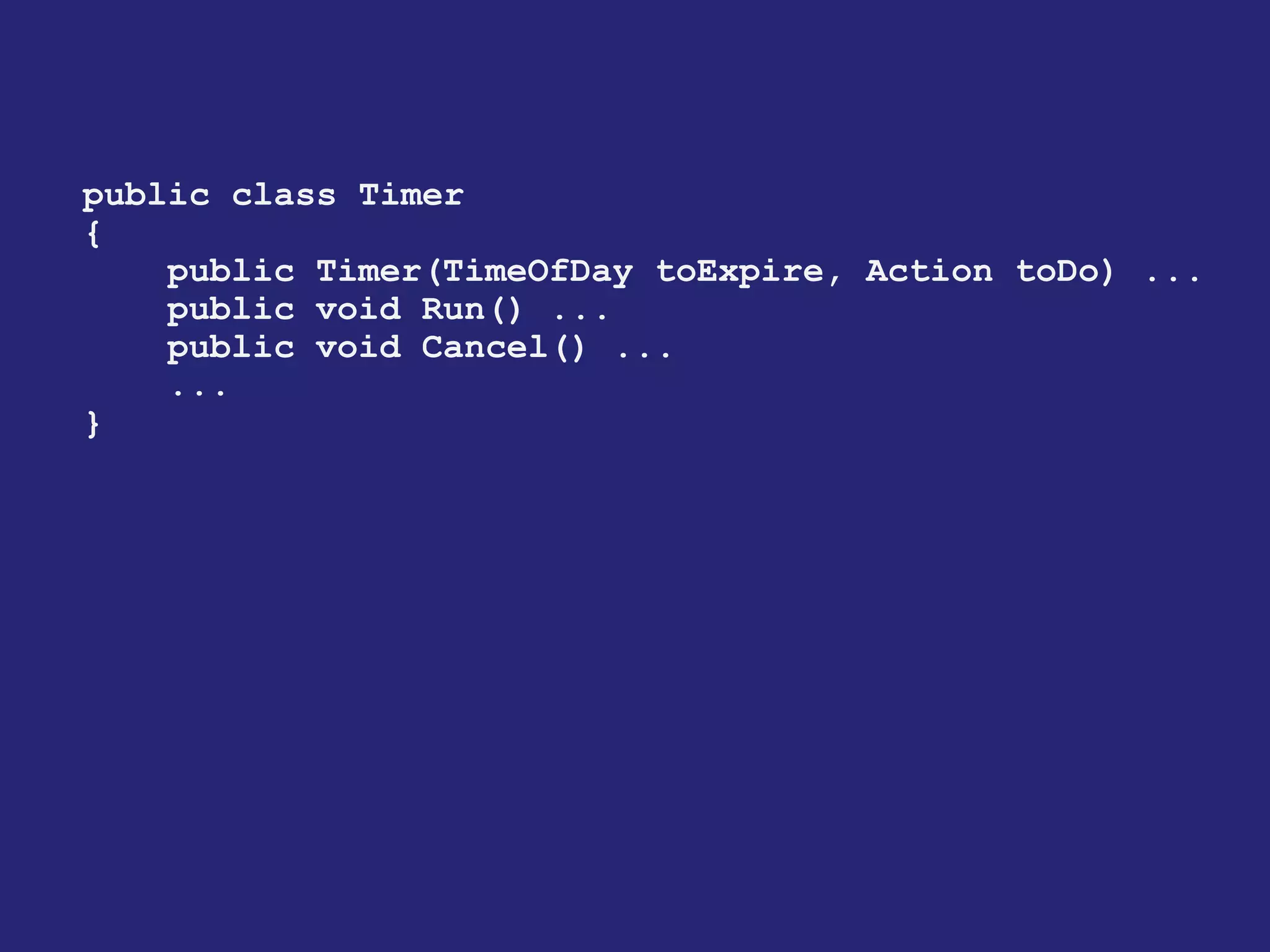
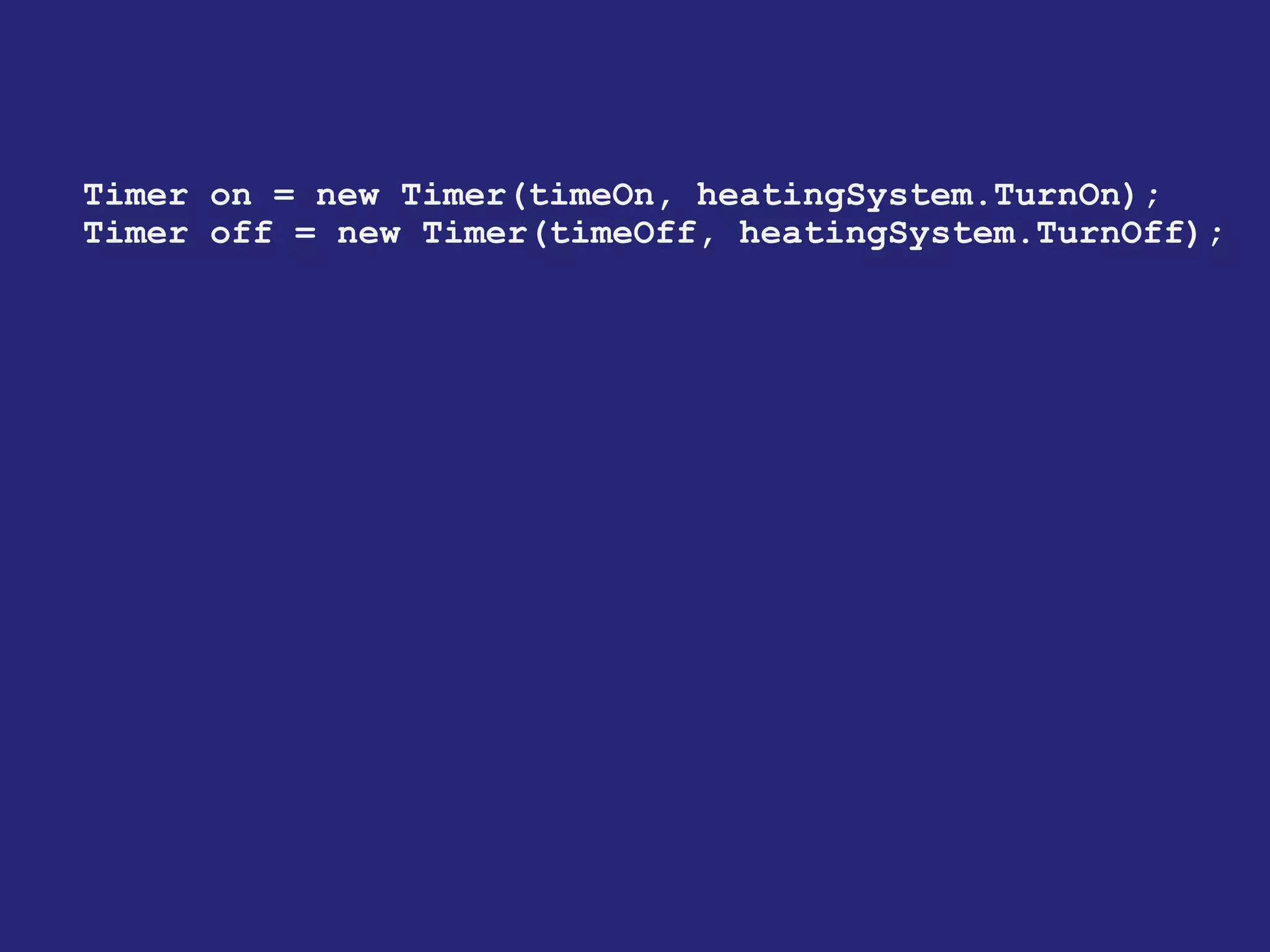
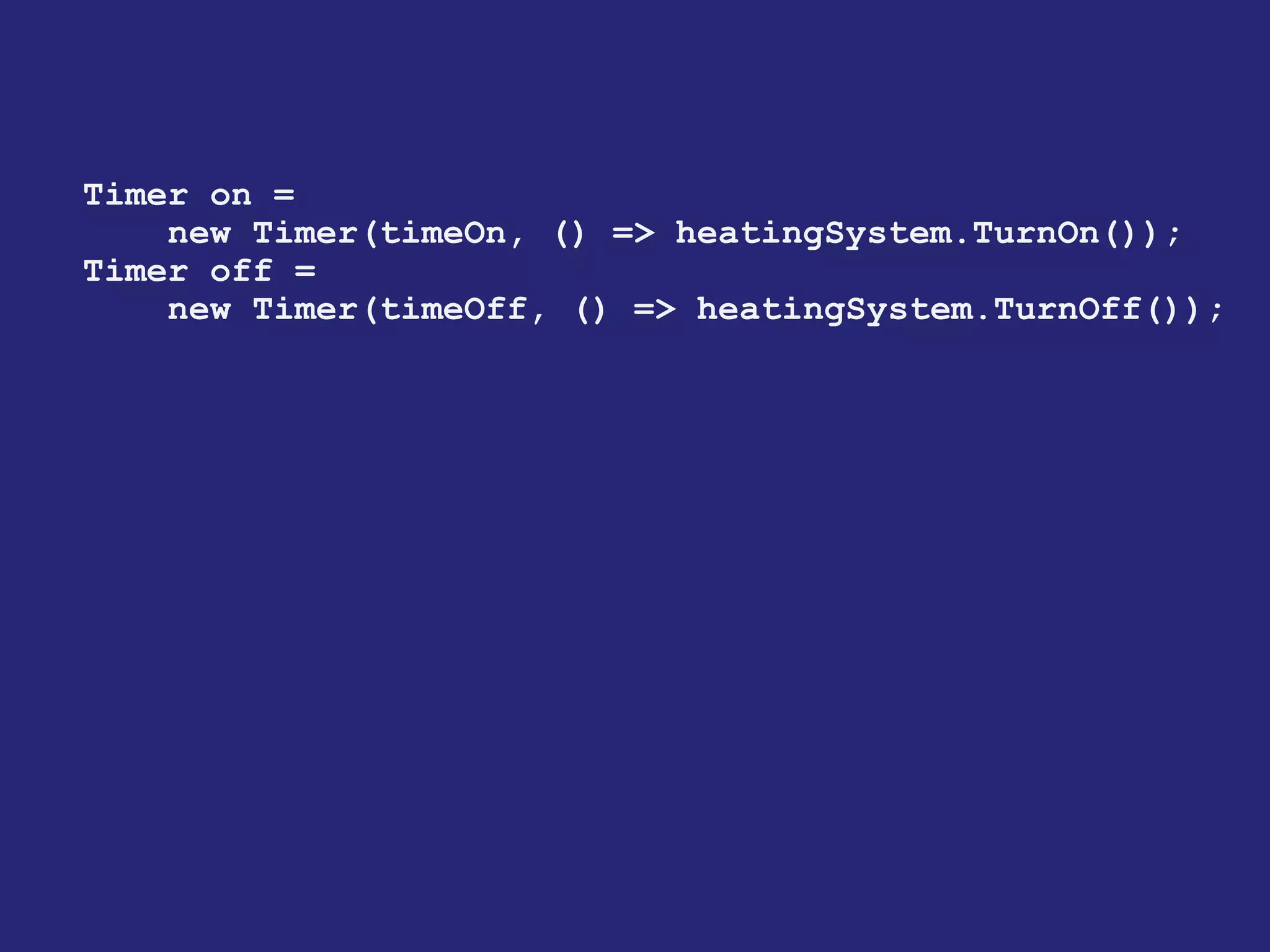
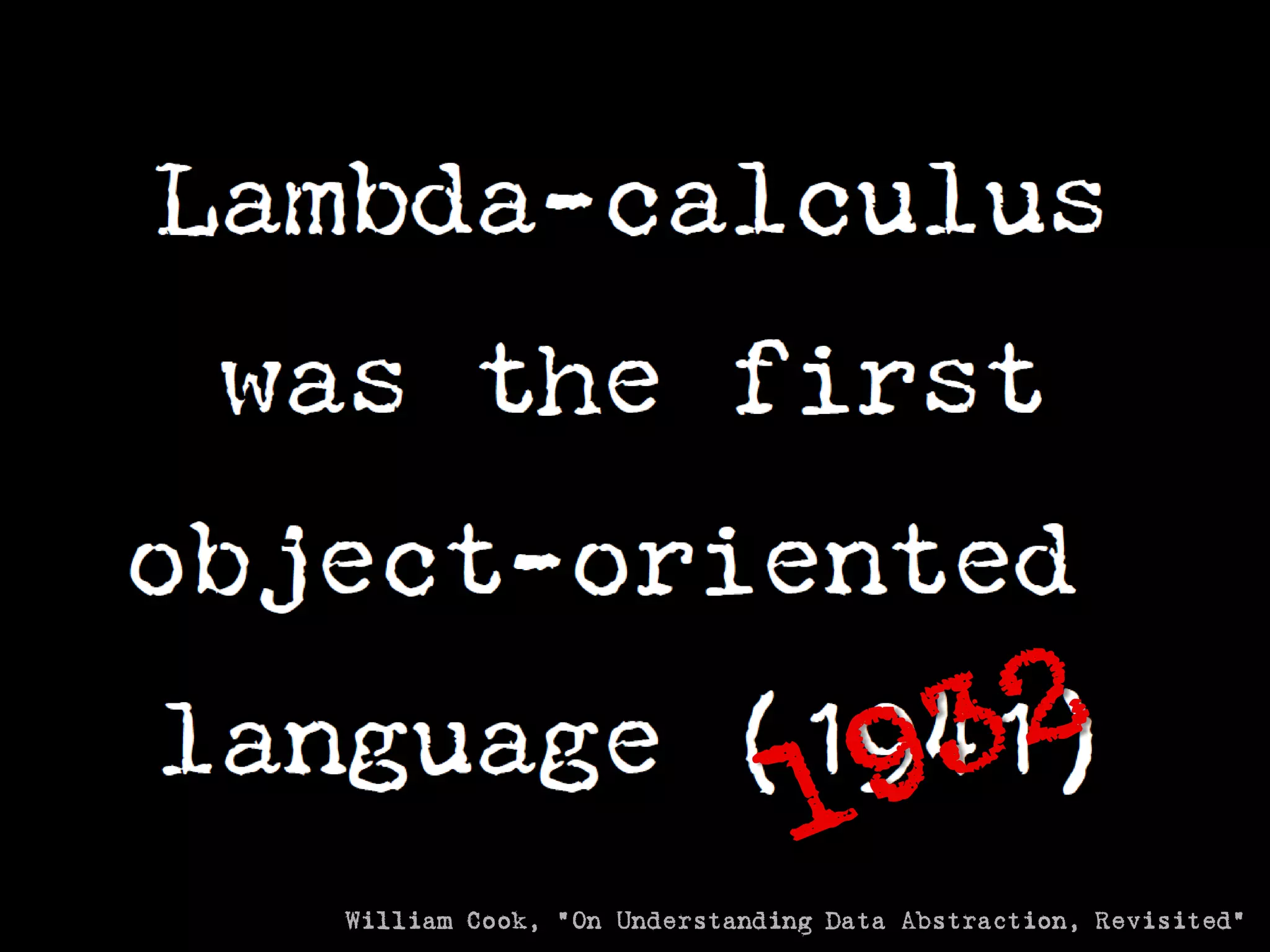
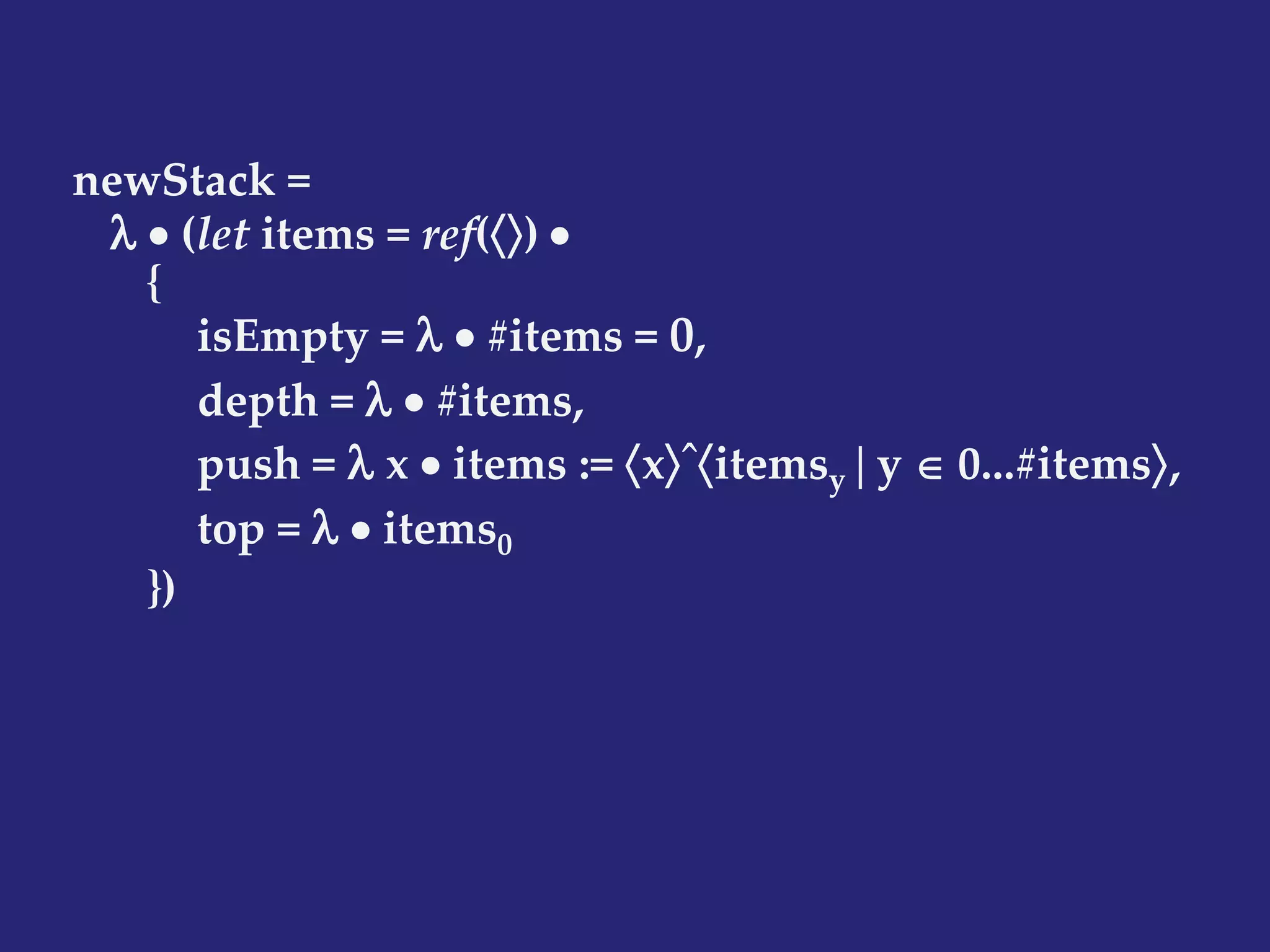
![var newStack = function() {
var items = []
return {
isEmpty: function() {
return items.length === 0
},
depth: function() {
return items.length
},
push: function(newTop) {
items = items.unshift(newTop)
},
top: function() {
return items[0]
}
}
}](https://image.slidesharecdn.com/functionalprogrammingyoualreadyknow-140617111008-phpapp01/75/Functional-Programming-You-Already-Know-37-2048.jpg)
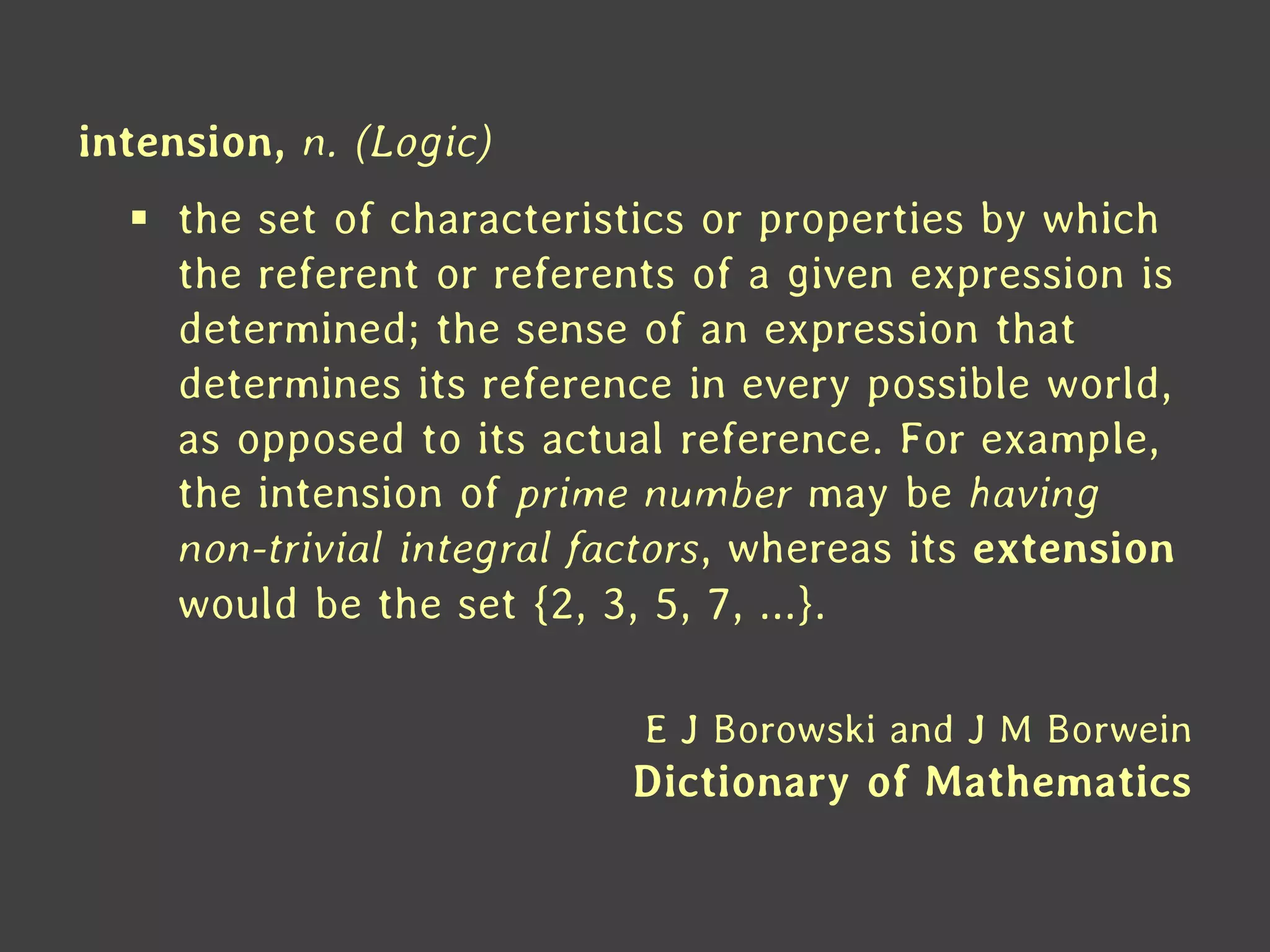
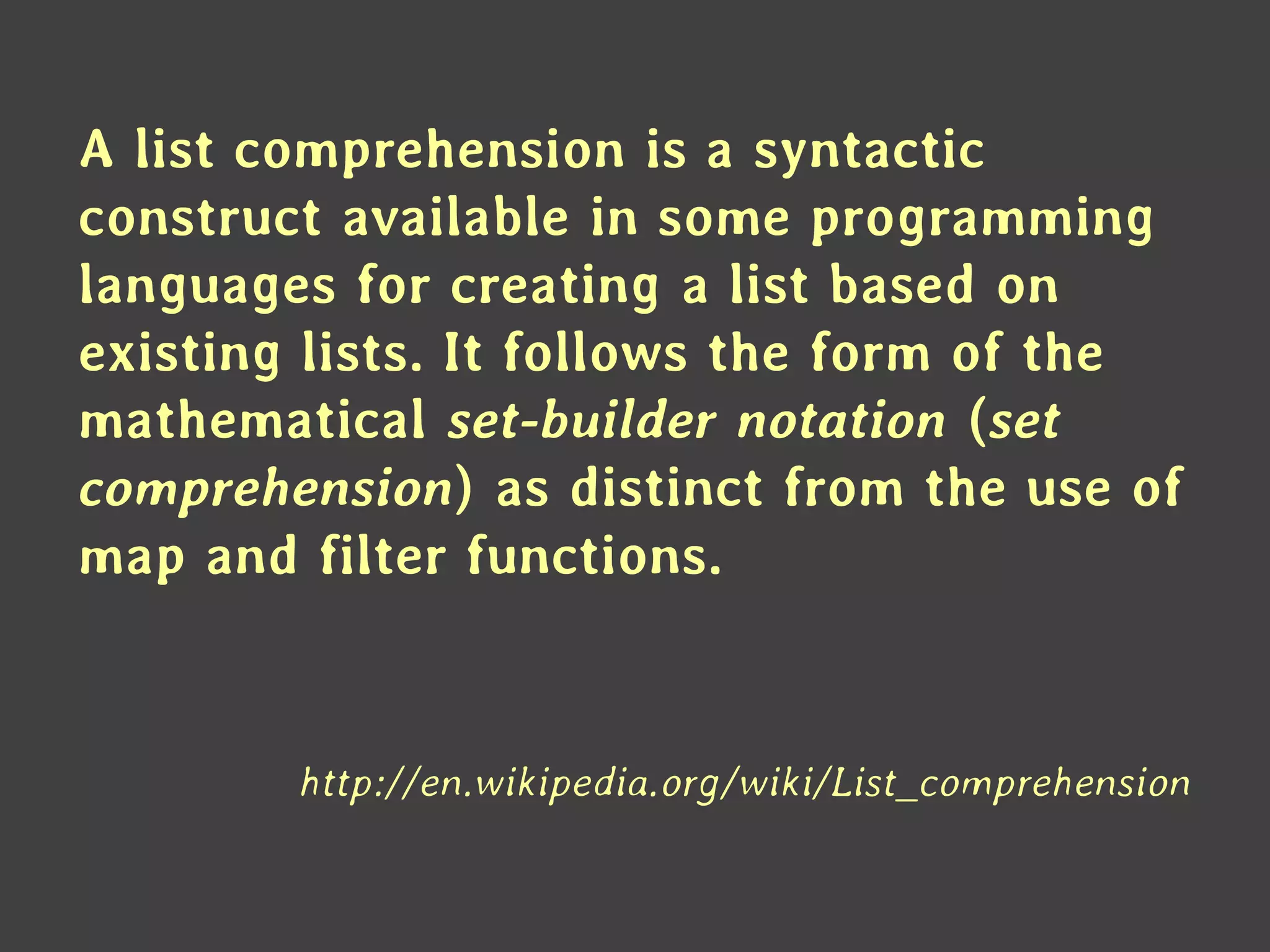
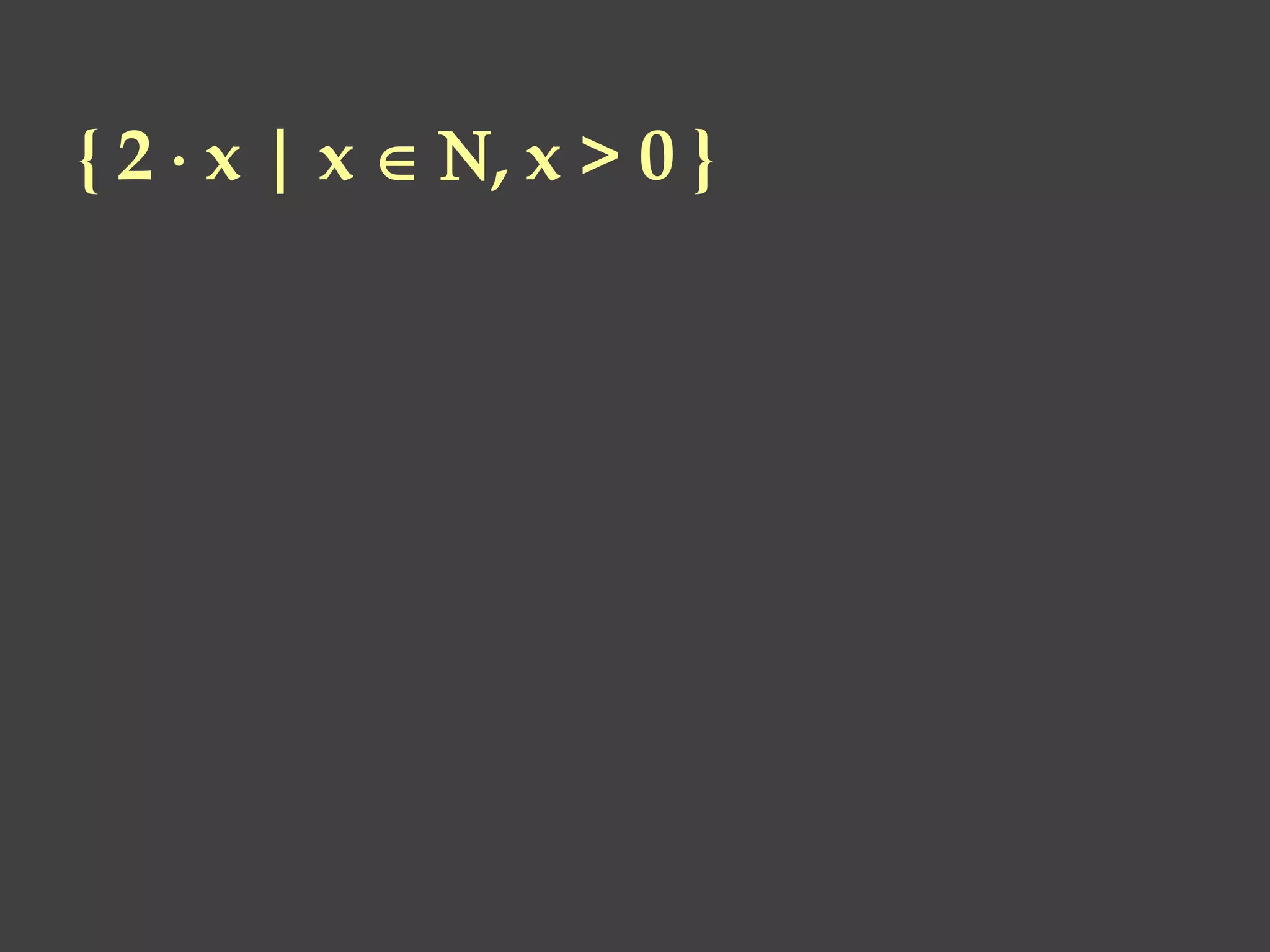
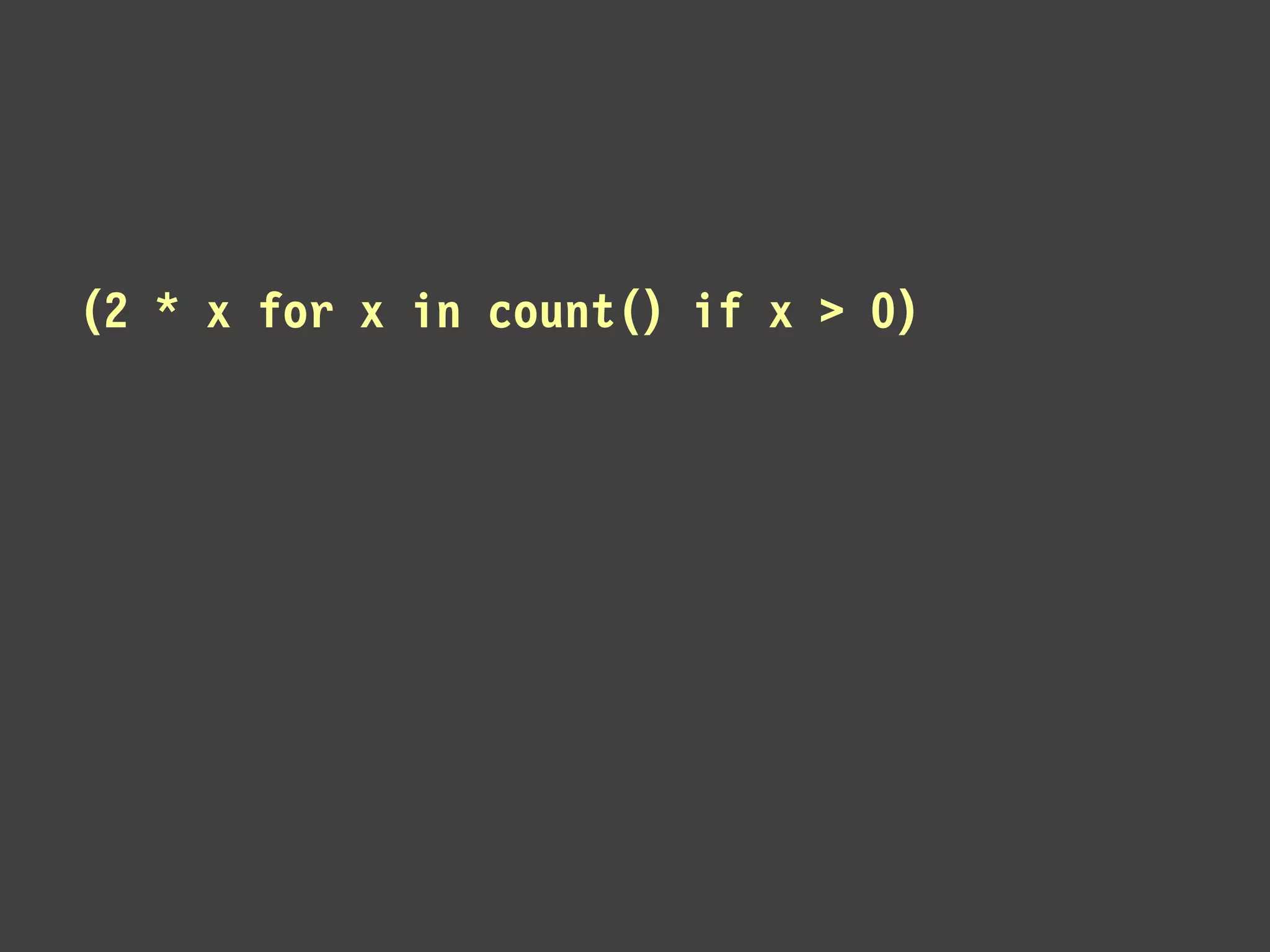
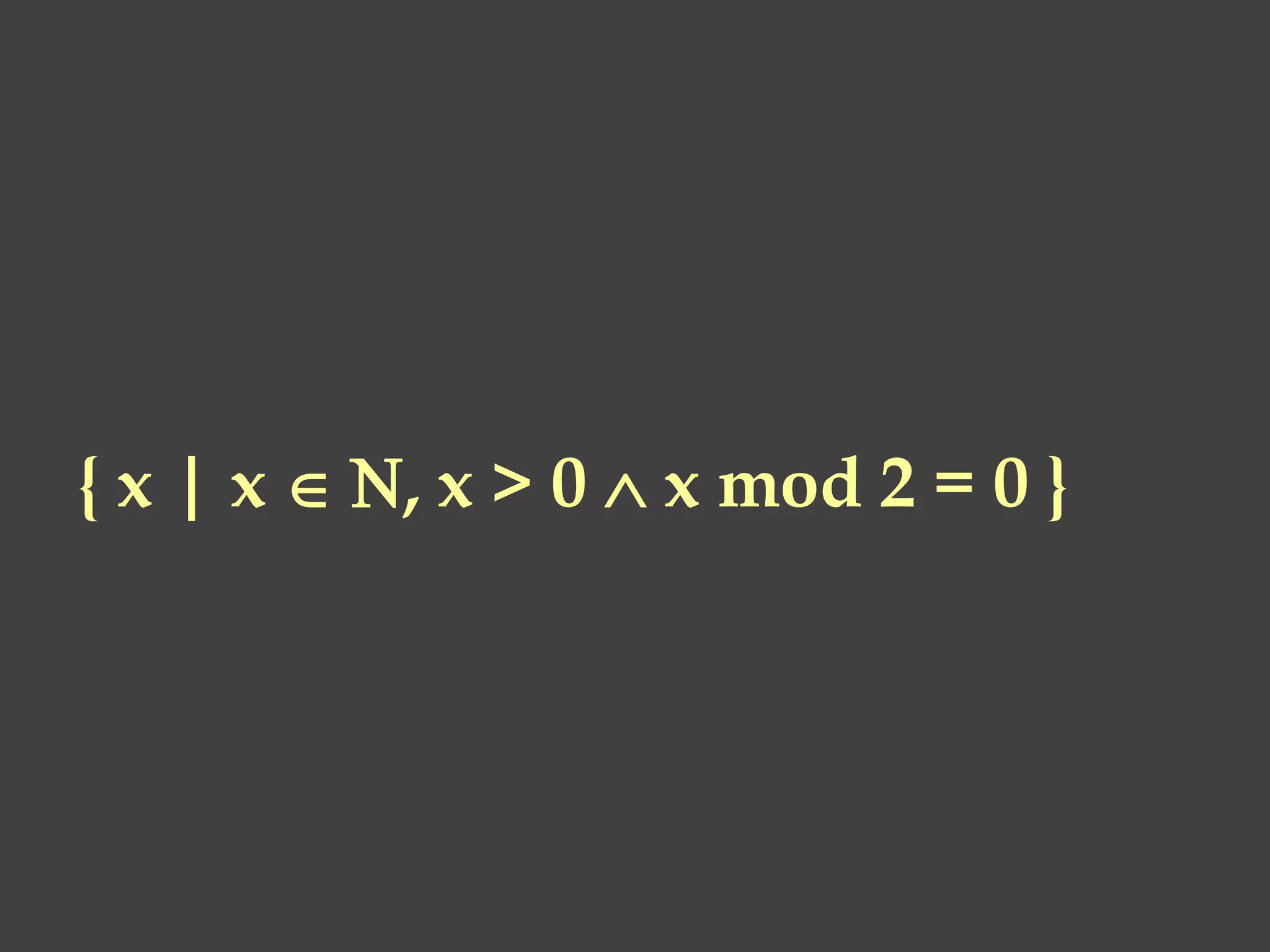
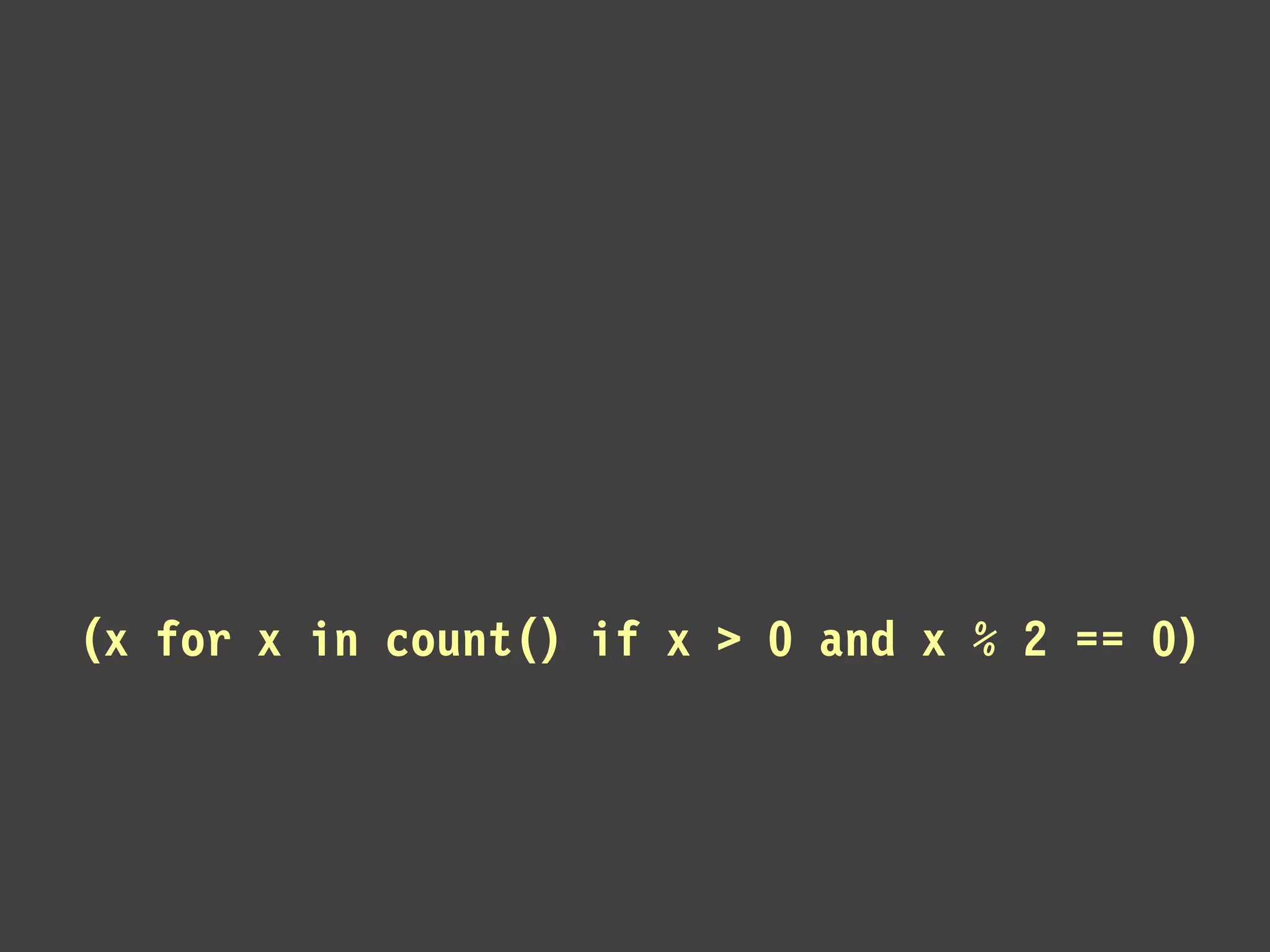
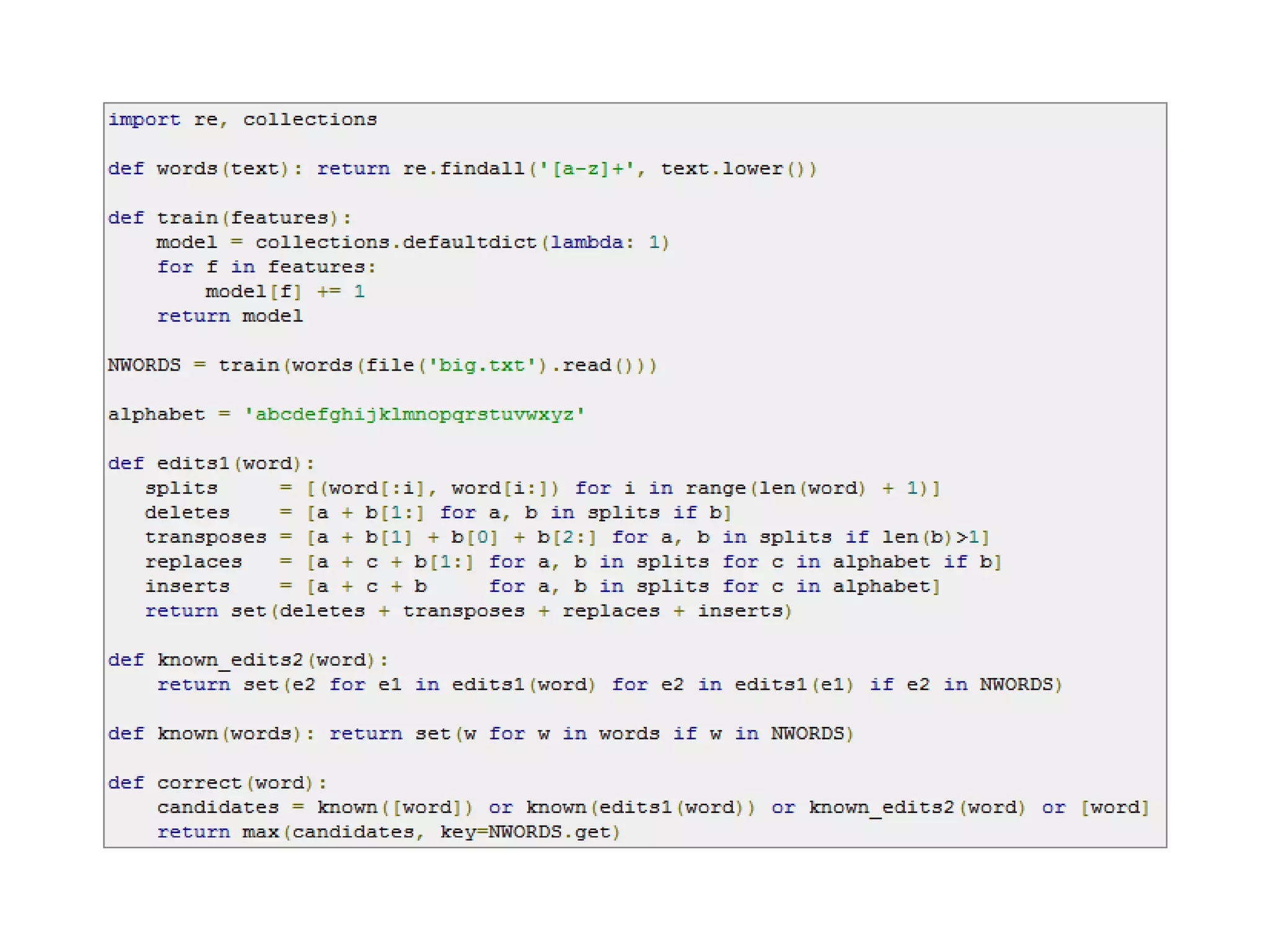
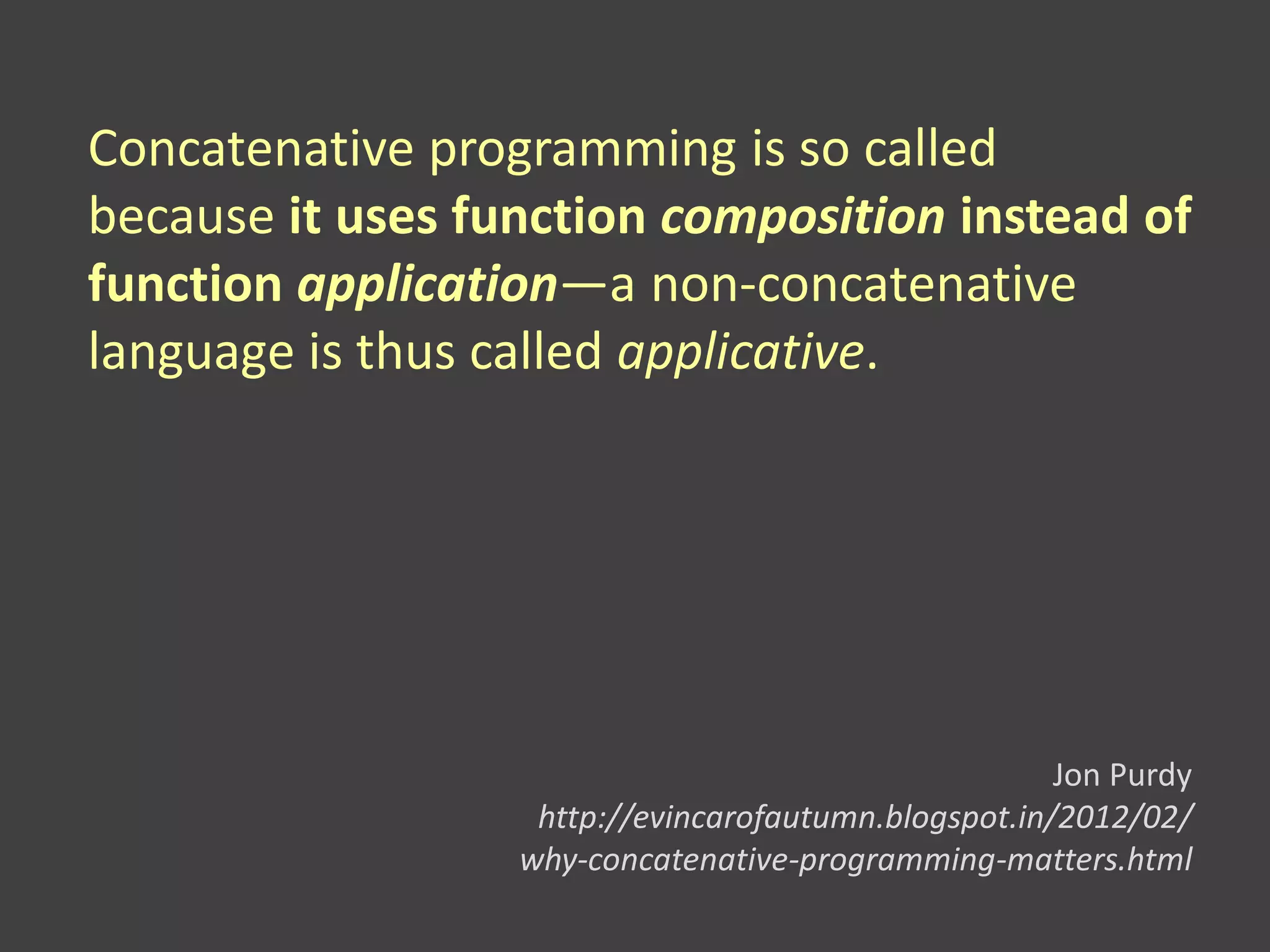
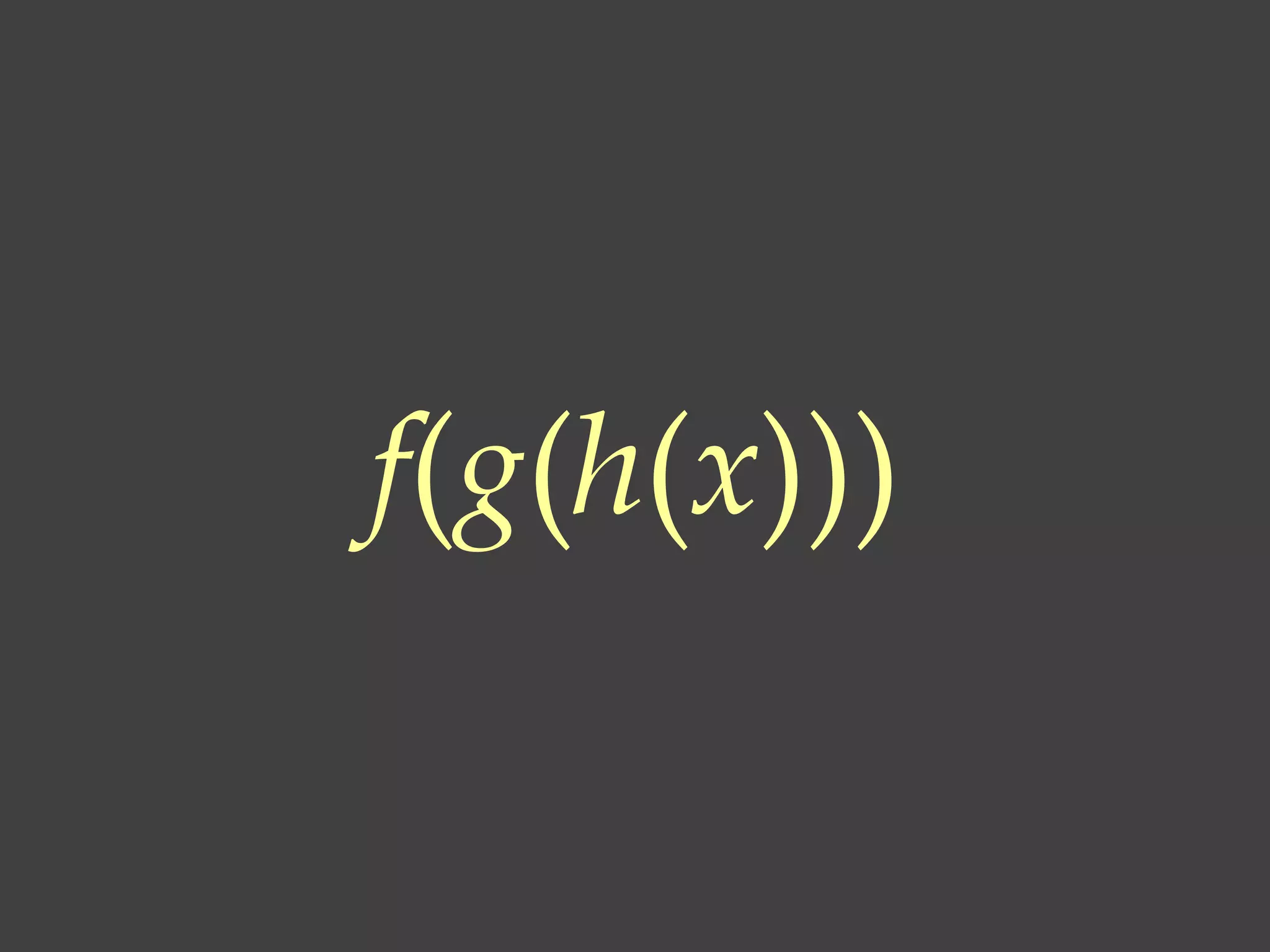
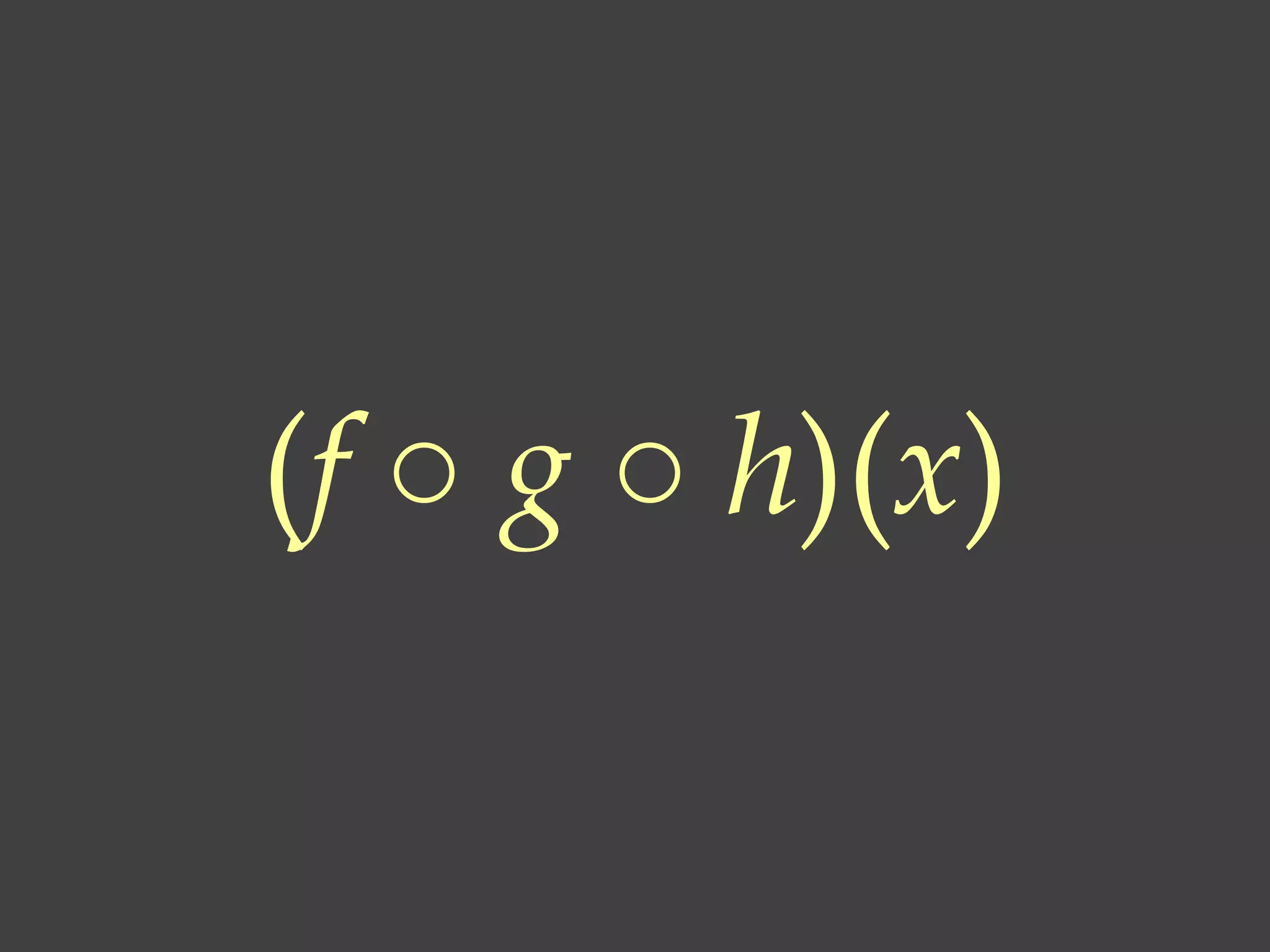


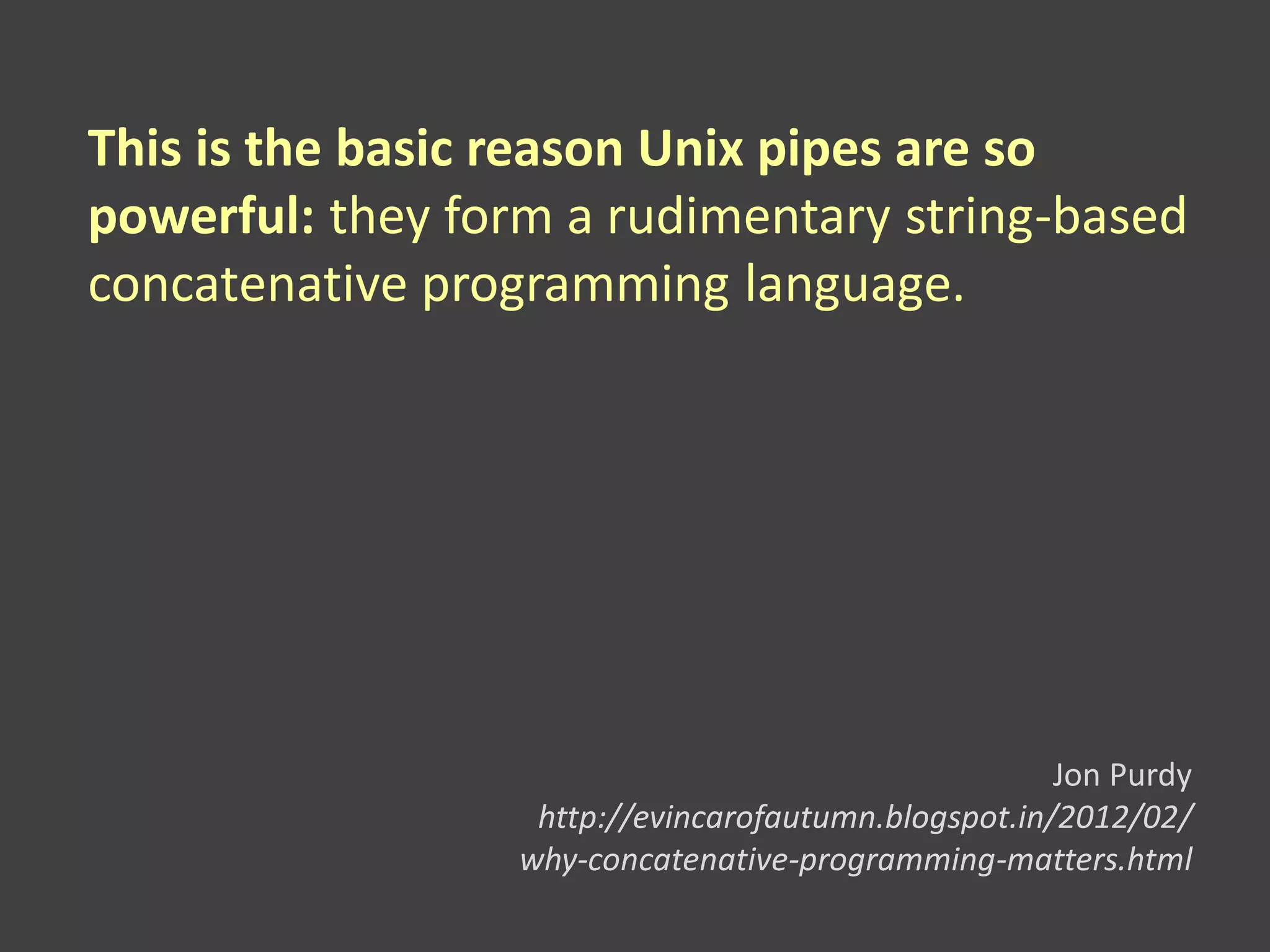

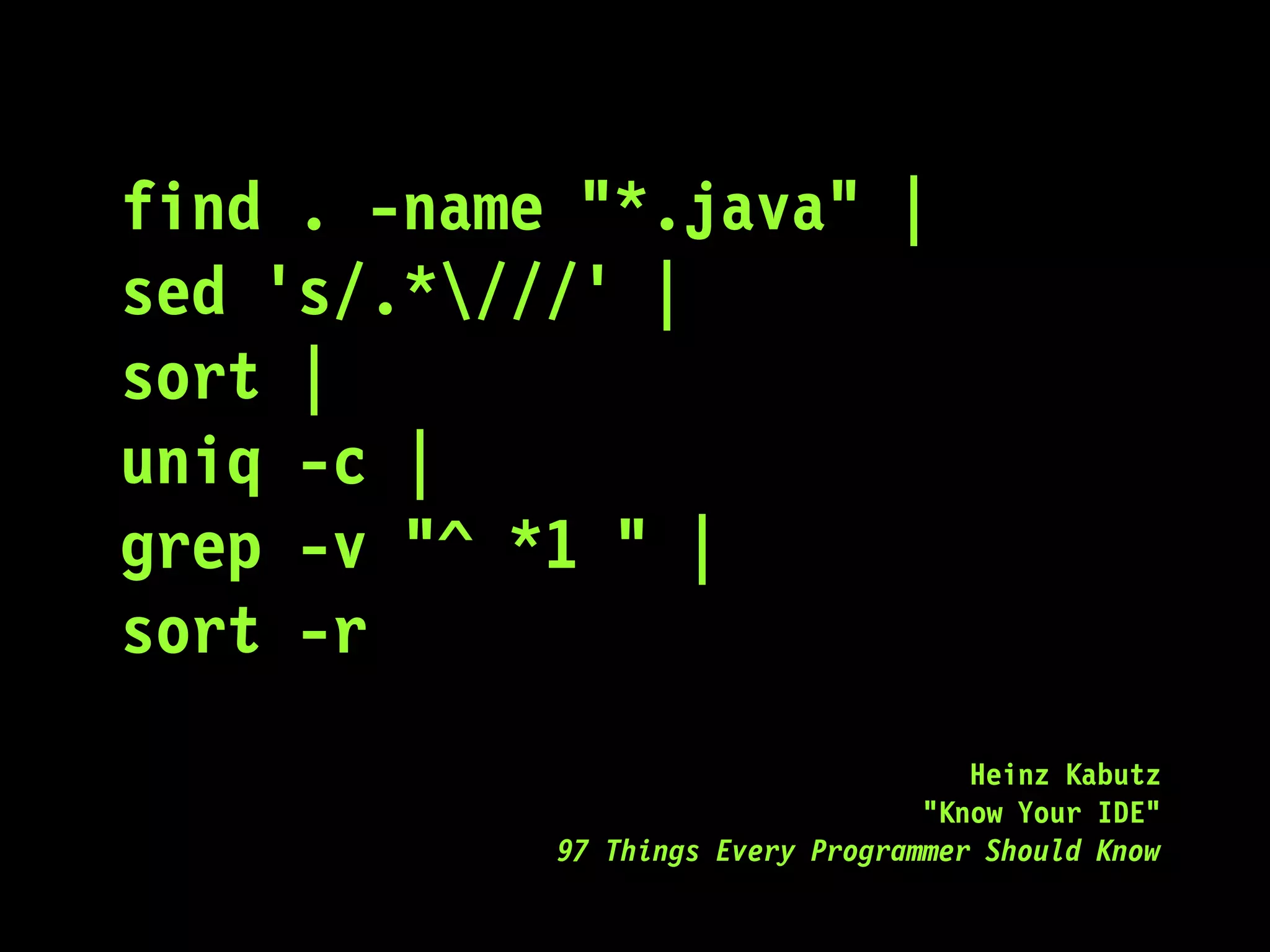



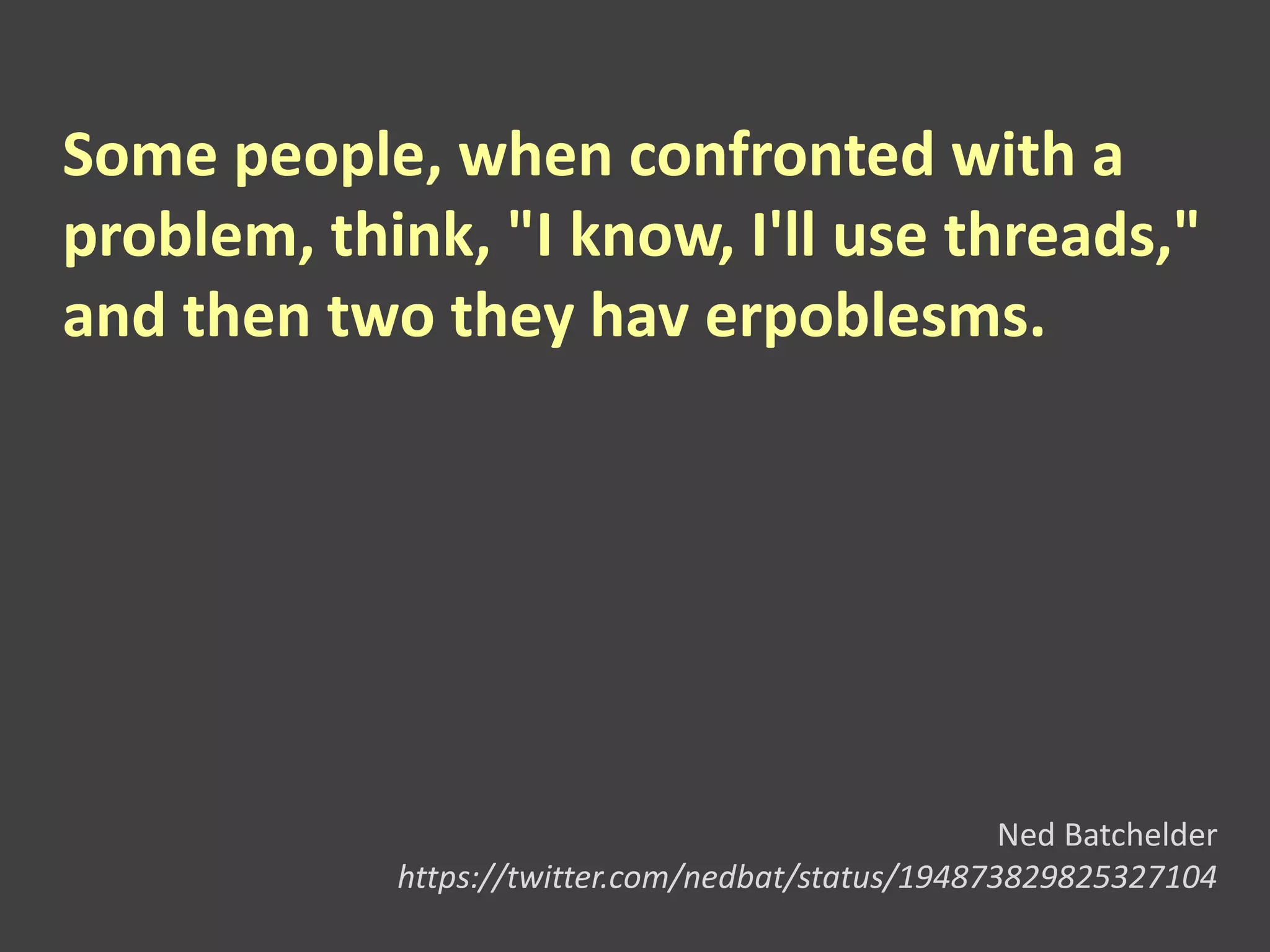
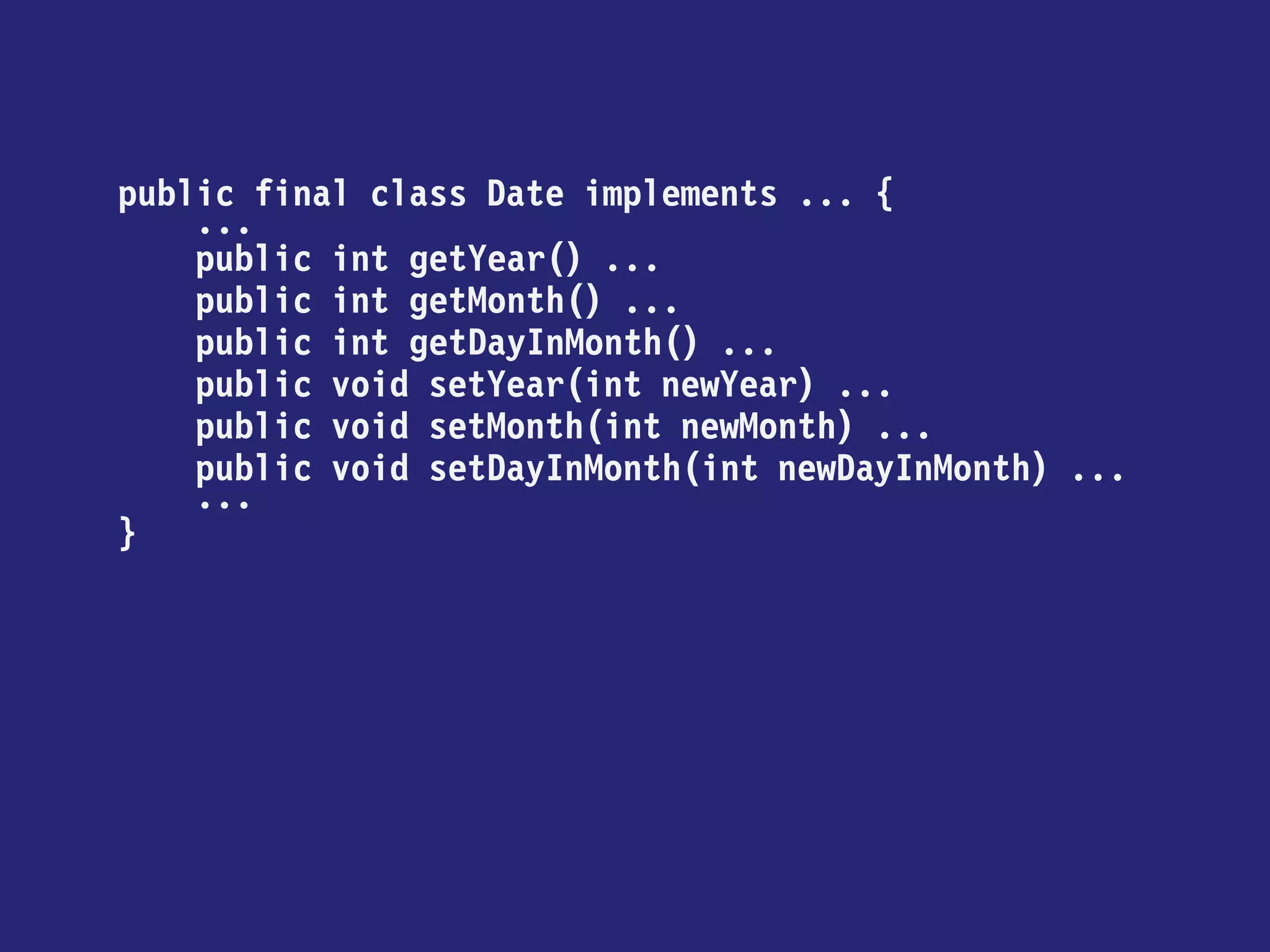
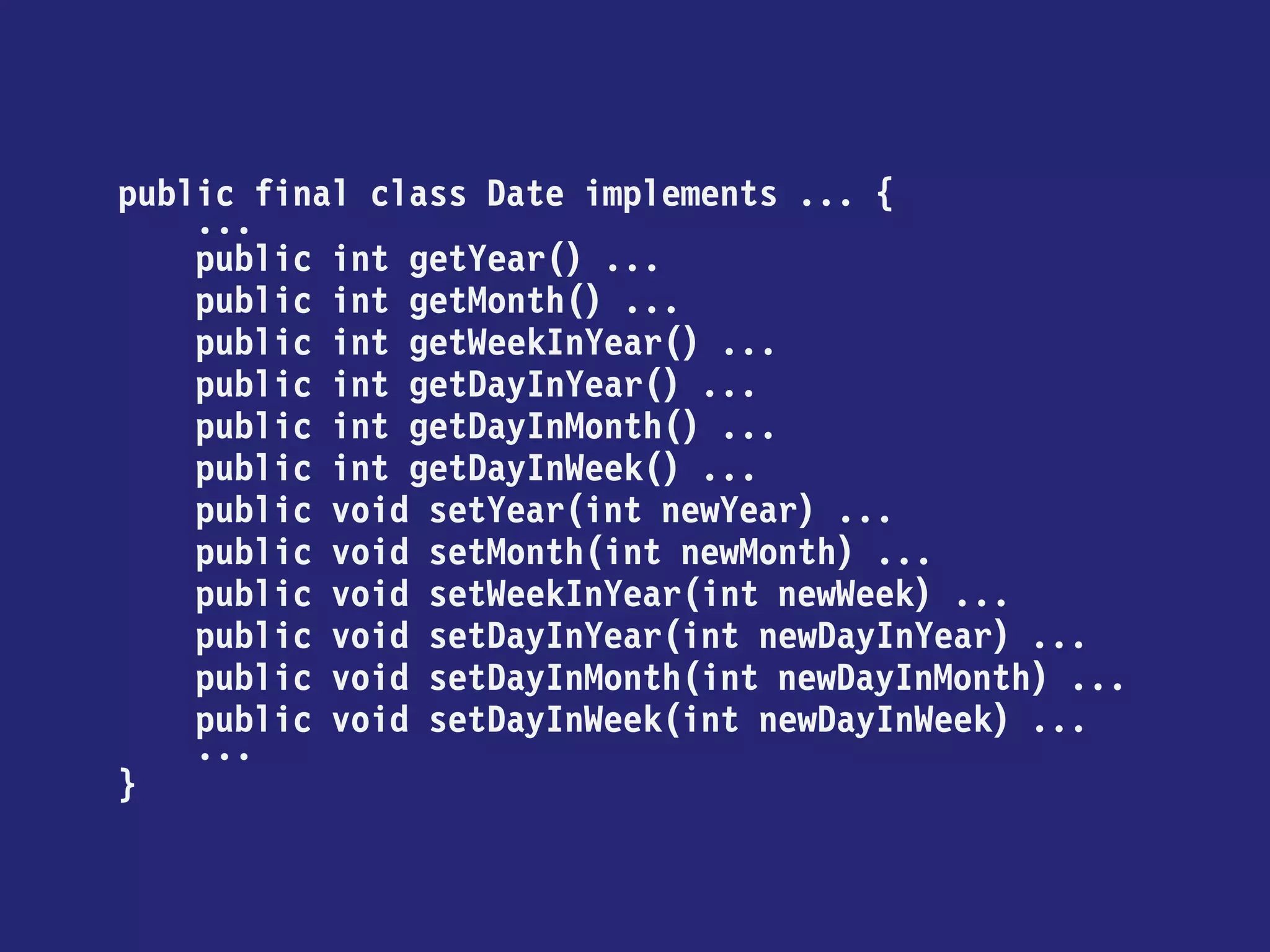
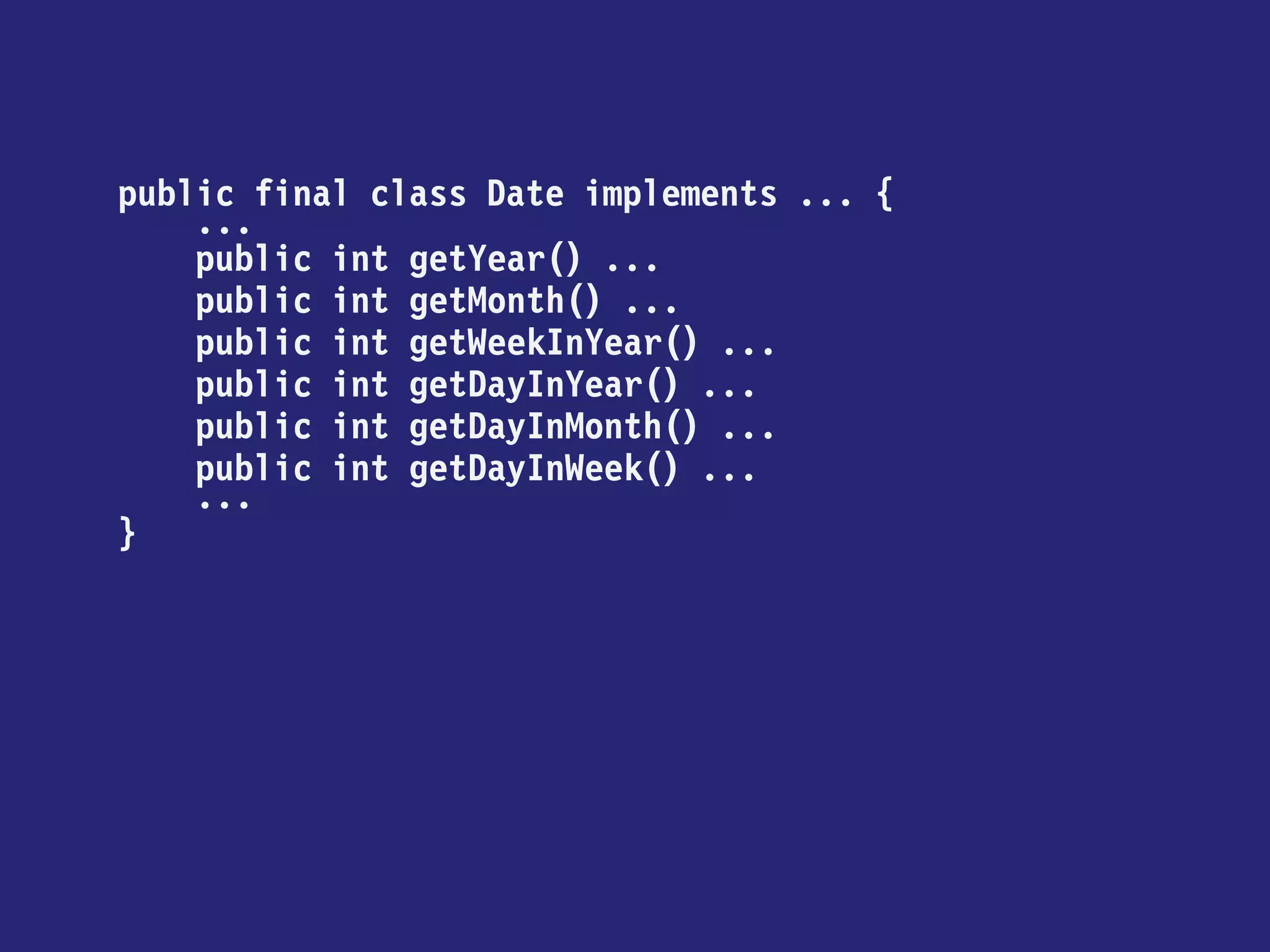

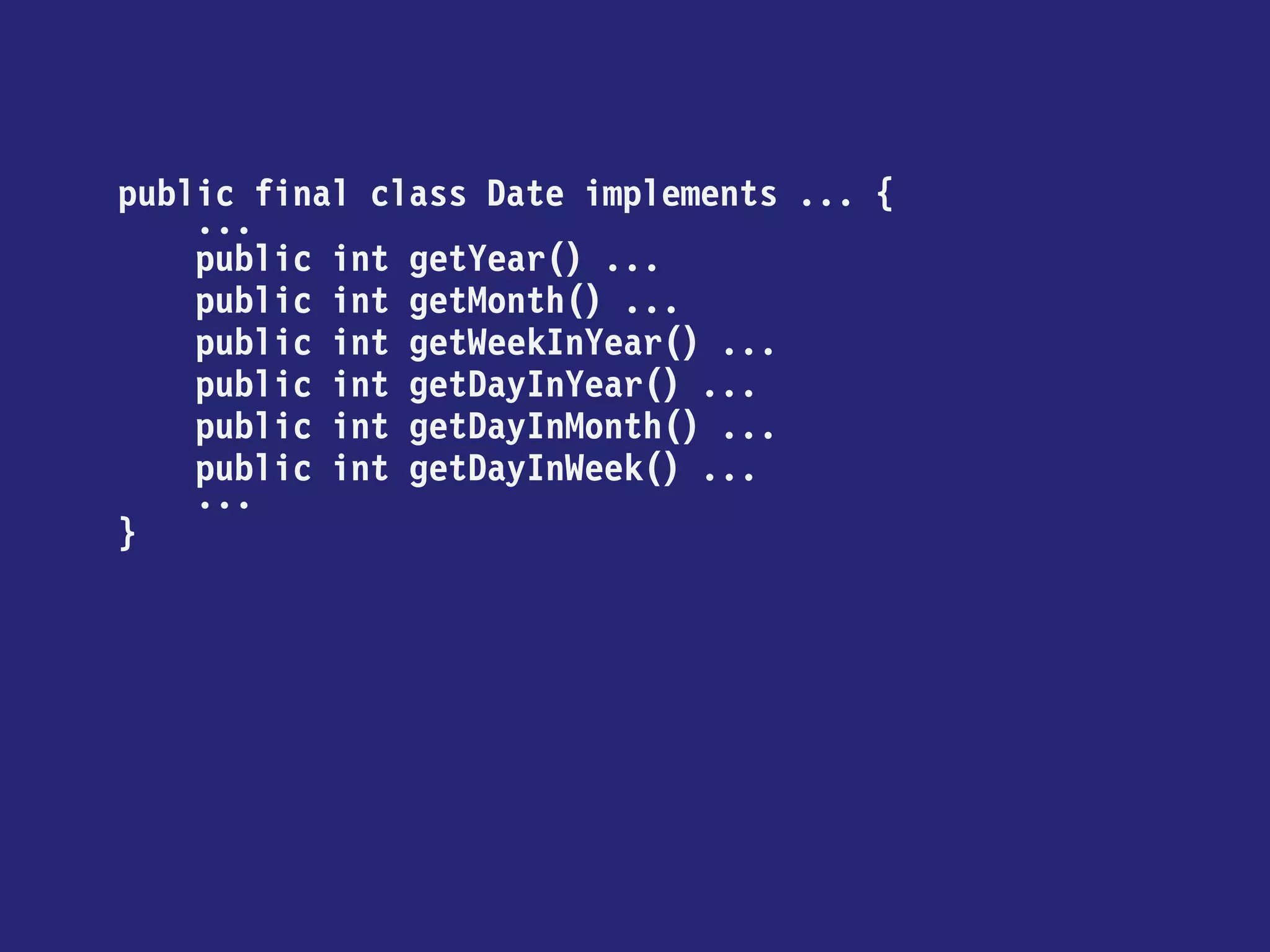
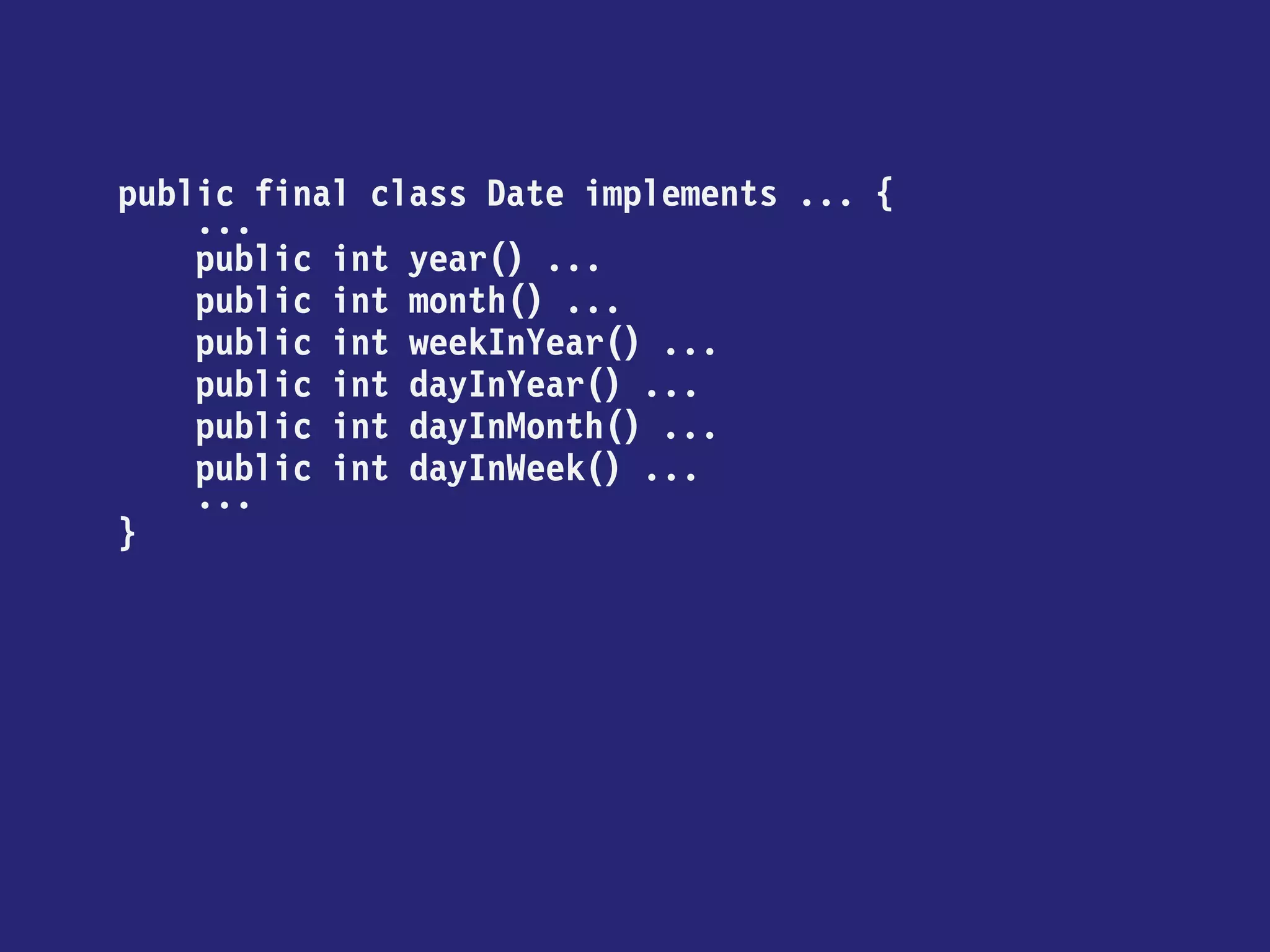
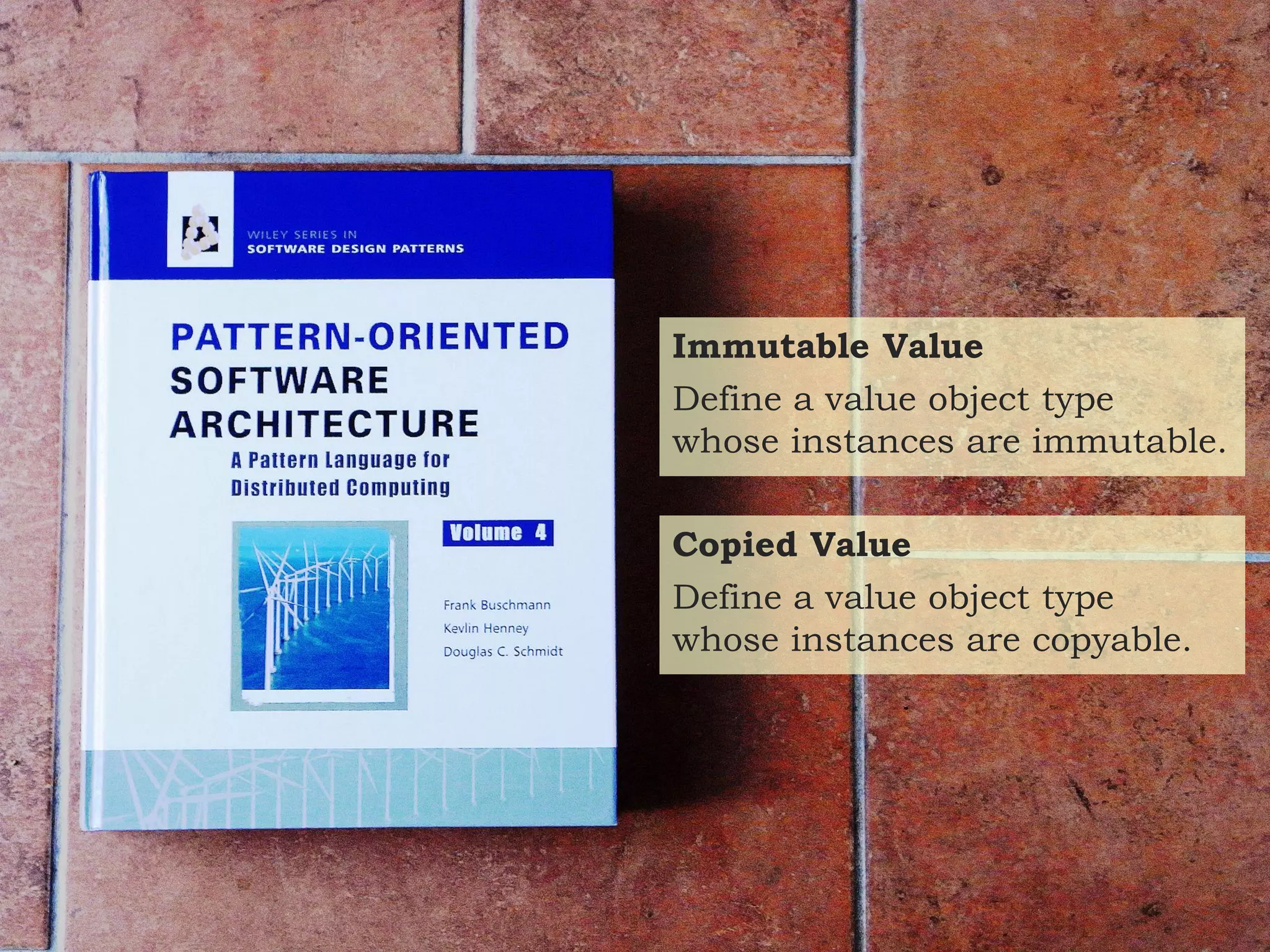

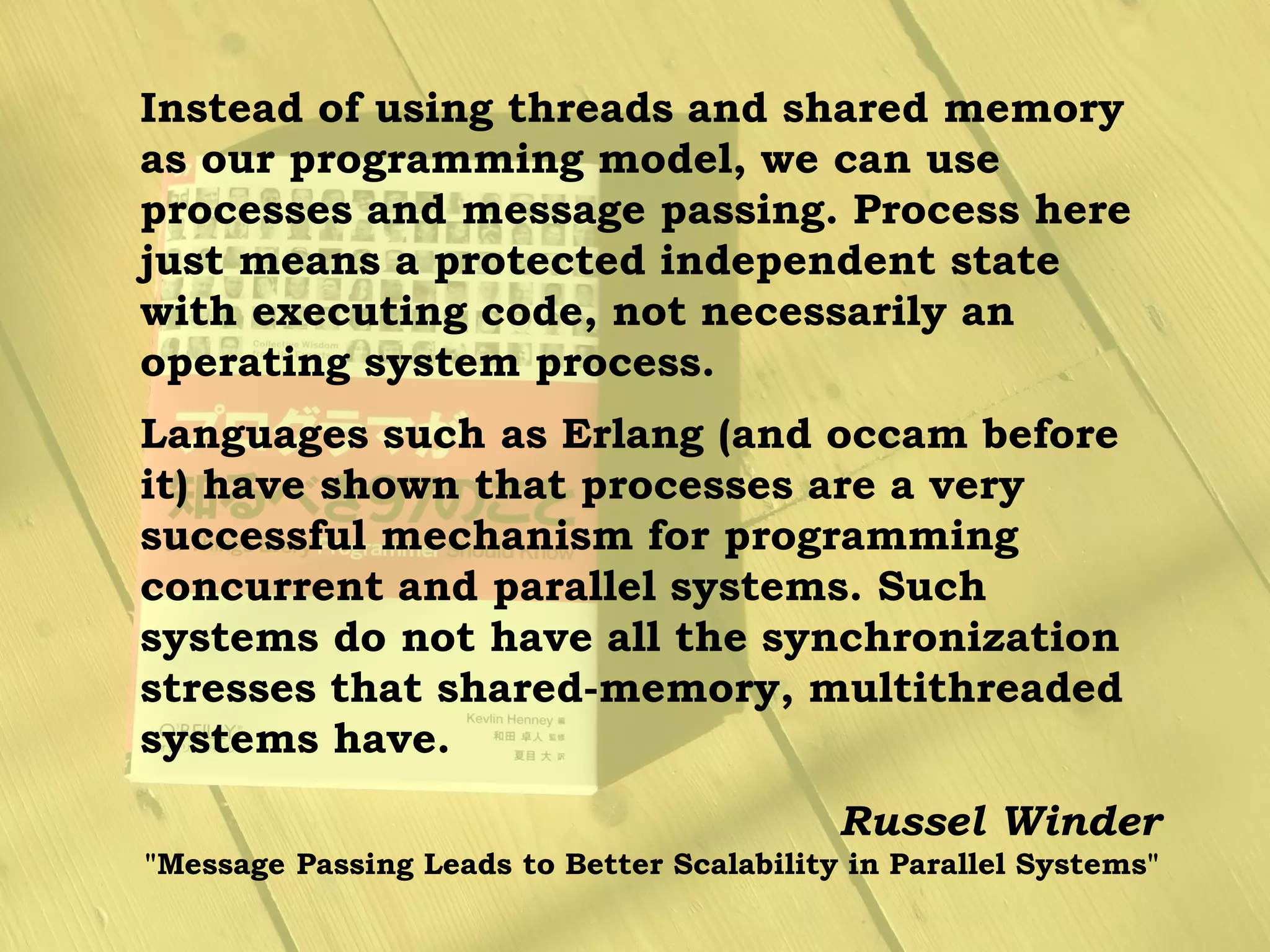
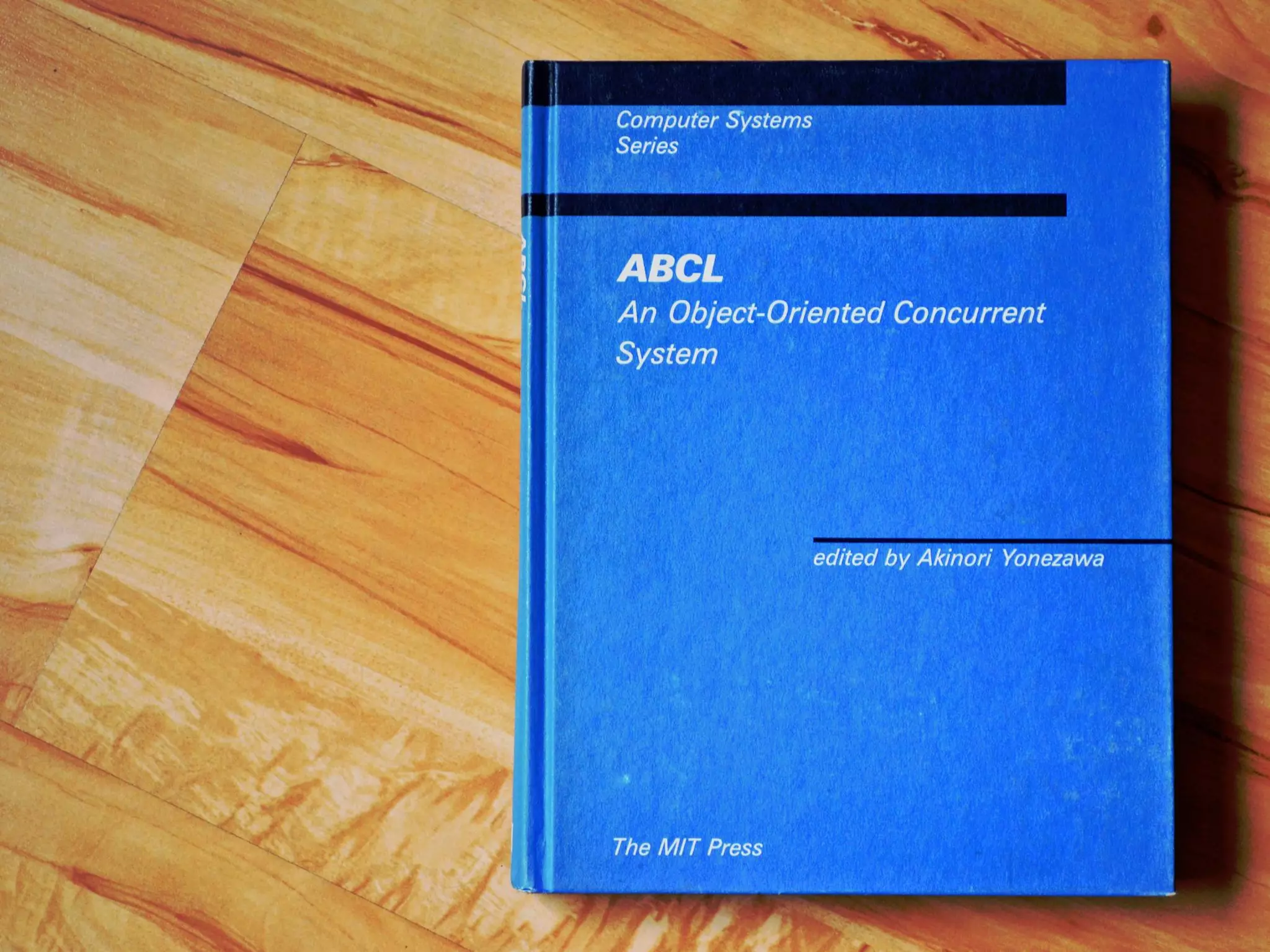
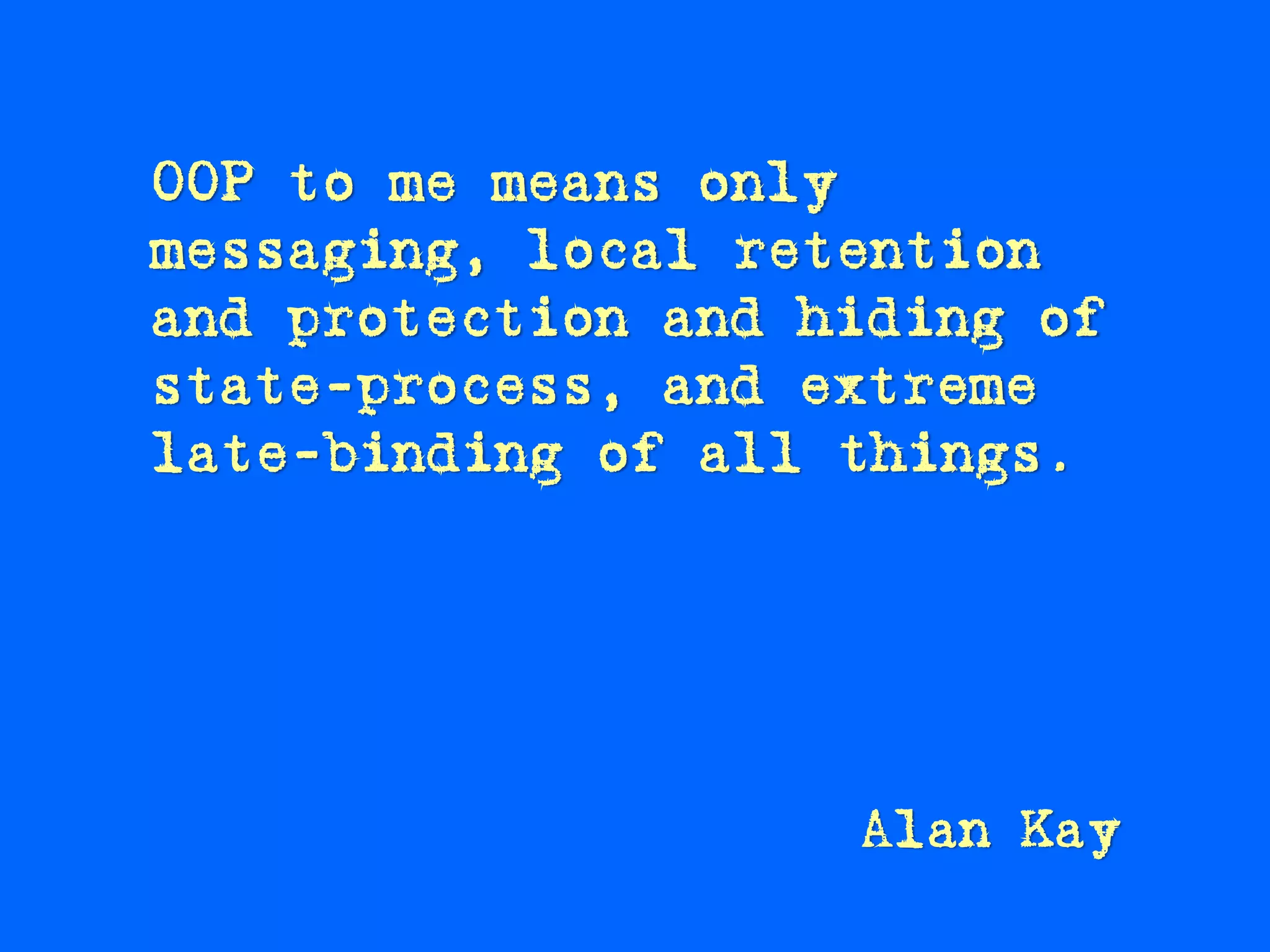
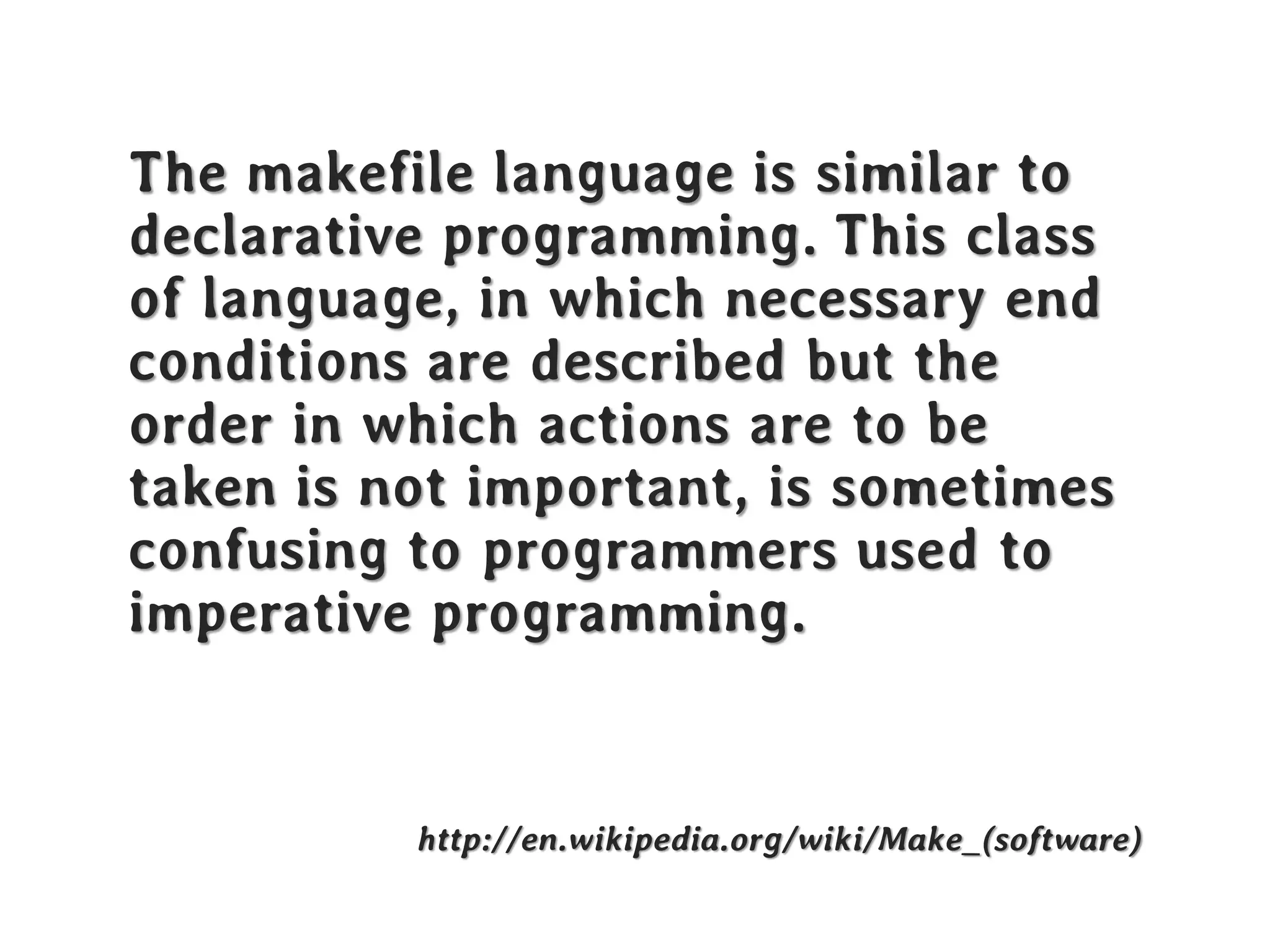
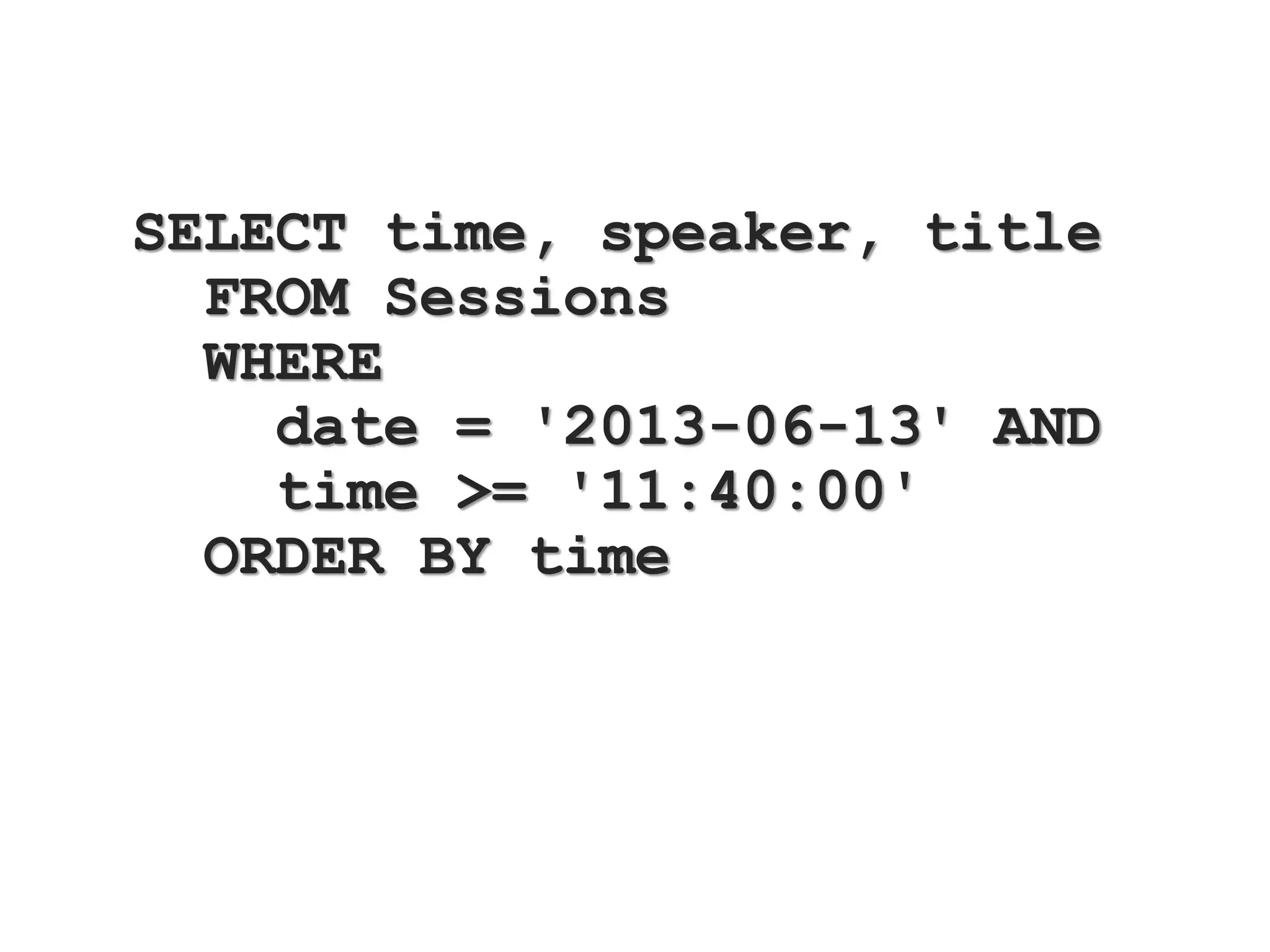
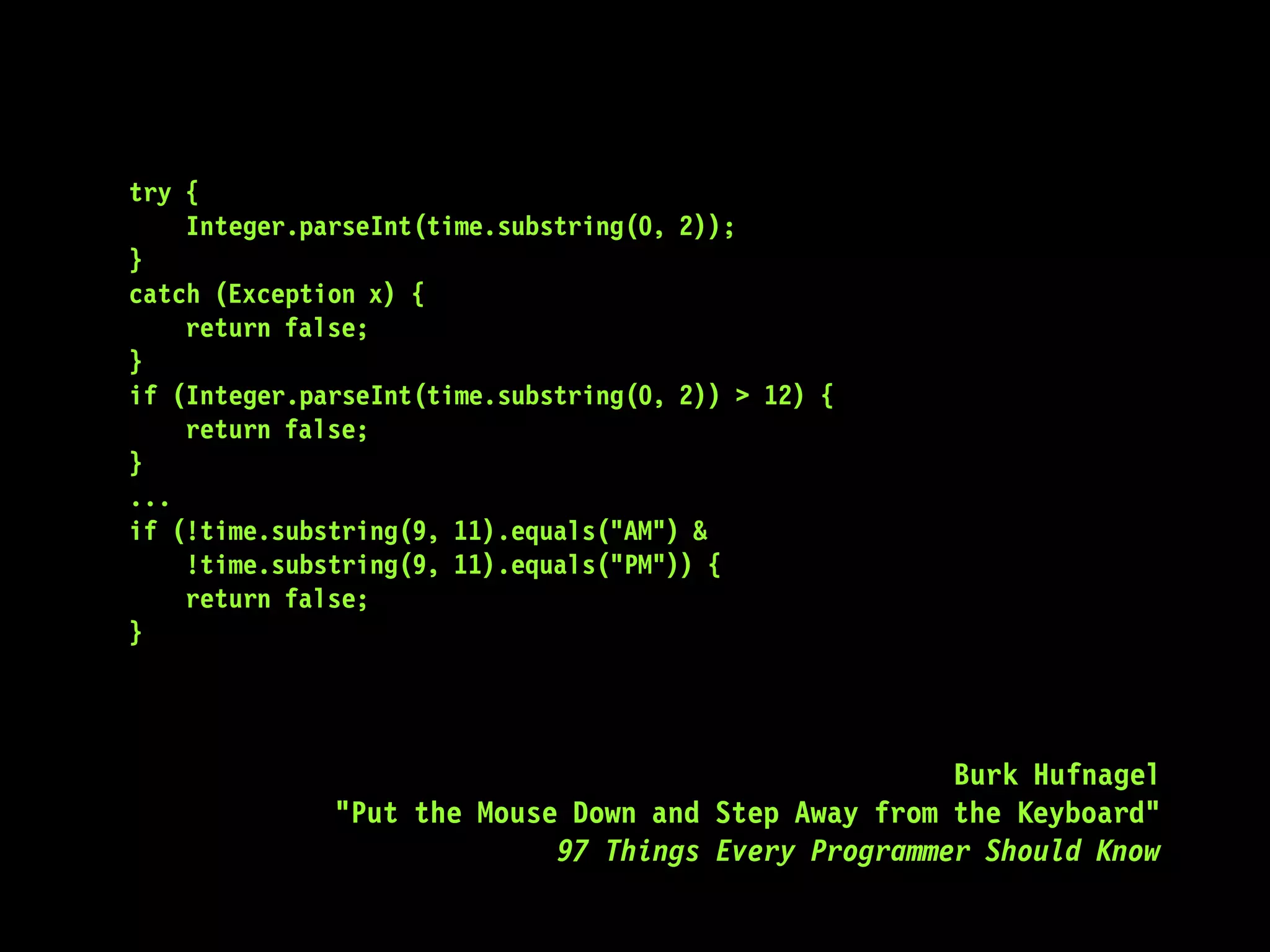
![public static boolean validateTime(String time) {
return time.matches("(0[1-9]|1[0-2]):[0-5][0-9]:[0-5][0-9] ([AP]M)");
}
Burk Hufnagel
"Put the Mouse Down and Step Away from the Keyboard"
97 Things Every Programmer Should Know](https://image.slidesharecdn.com/functionalprogrammingyoualreadyknow-140617111008-phpapp01/75/Functional-Programming-You-Already-Know-71-2048.jpg)
